Asset Sale to Chappal Revoked by
Emmanuel Addeh in Abuja
TotalEnergies’ sale of a minority stake in a Nigerian
onshore oil producer has failed, the Nigerian Upstream Petroleum Regulatory Commission (NUPRC) told Reuters
yesterday, a setback to the French oil major’s strategy to sell mature, polluting assets and pay down debt.
TotalEnergies had reached an agreement to offload its 10 per cent stake in the Shell Petroleum Development Com-
Chair, Zacch Adedeji Justifies External Borrowing
www.thisdaylive.com

The stake covered interests in several oil-producing licenses as well as gas as-
pany (SPDC) joint venture in Nigeria to Chappal Energies in a deal valued at about $860 million. Continued on page 9
Mayor of
Georgia, Andre Dickens; and Executive Director, South, Fidelity Bank Plc, Mrs. Pamela Shodipo at the 2025 Fidelity Nigeria International Trade and Creative Connect (FNITCC) held in Atlanta, Georgia over the weekend.
Monetary Easing Begins as CBN Cuts MPR to 27%, Cites GDP Growth, Falling Inflation
Cardoso: Our goal is to achieve single-digit inflation, declares 14 banks have fully met new capital thresholds
The Central Bank of Nigeria’s (CBN) Monetary Policy Committee (MPC), yesterday, kick-started monetary easing with a cut in the Monetary Policy Rate (MPR) by 50 basis points to 27 percent, from the 27.50 percent it was previously, citing sustained disinflation and stronger Gross Domestic Product (GDP) growth for the second quarter 2025, released onTheMonday. move the central bank signaled a shift towards supporting economic expansion.

WIKE’S SON’S CALL TO BAR CEREMONY...
R-L: Wife of the Federal Capital Territory Minister and Appeal Court Judge, Justice Eberechi
and








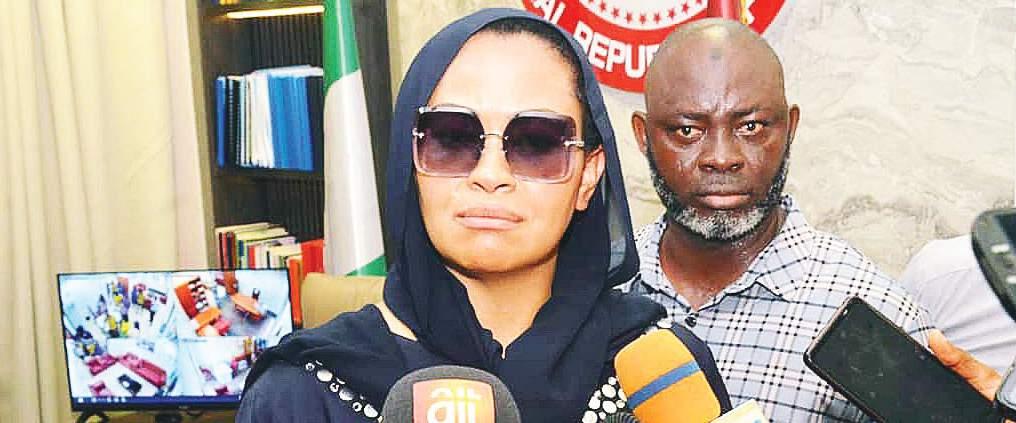
MAN Warns Proposed Stamp Tax Undermines Reforms, Adds Hidden Levies
Dike Onwuamaeze
The Manufacturers Association of Nigeria (MAN) has expressed concern that a possible introduction of a Tax Stamp System for excisable goods will contradict the federal government’s efforts to harmonise and modernise Nigeria tax administration and promote greater accountability.
MAN noted that while the intention to introduce the tax stamp system was understand- able, evidence around the world has shown that the Tax Stamp System often imposes heavy compliance costs, creates operational bottlenecks, and yields limited incremental revenue.
These views were expressed yesterday by the Director General of MAN, Mr. Segun Ajayi-Kadir, in a statement titled “MAN Cautions on The Possible Introduction of Tax Stamp System for Excisable Products.”
Ajayi-Kadir noted that, as
in 2018 when the Tax Stamp was initially suggested to the government and was roundly rejected, the fleeting proposition was typically the refrain of vendors who propose tax stamps as a measure against illicit trade, adding that findings indicated that tax stamps portend significant adverse implications without tangible benefits.
He said: “We are, therefore, disturbed about an imminent distraction from this positive narrative in the form of a
possible introduction of a Tax Stamp System for excisable goods.“MAN understands that this consideration is predicated on the supposed benefits of curbing smuggling and counterfeiting, enhancing transparency and traceability in the excise regime, and supporting revenue growth.
He added: “MAN strongly urges the federal government to exercise caution in introducing a Tax Stamp System in Nigeria.”
According to him, experi-
ences in the international environment have shown that tax stamps often hinder local industry, erode gains in tax simplification, and yield a limited revenue impact.
He said: “We, therefore, implore the government not to succumb to the proposal to introduce Tax Stamps, instead government should strengthen existing digital fiscal tools and border controls to achieve compliance without imposing undue burdens on industry.”
Ajayi-Kadir said that the
proposed stamp tax could contradict the Nigeria Tax Act 2025 that consolidated and rationalised taxes, providing businesses, especially Small, Medium Industries (SMIs) with relief from multiple levies.
He said: “The introduction of a tax stamp system risks clawing back these gains, effectively imposing a new ‘hidden tax’ on industries under the guise of compliance.
“Such a measure is tantamount to ‘giving with one hand and taking back with
the other,’ undermining the relief granted under the 2025 Tax Act.
“SMIs, in particular, would bear disproportionate burdens, weakening the federal government’s drive to promote local manufacturing and job creation.”
Ajayi-Kadir is also concerned that, “there is a tendency that the Nigerian market risks an upsurge in illicit trade, which will erode government revenue, harm legitimate businesses, and jeopardise consumer safety.”
FG, UAE Sign MoU for Advanced Cargo Information Systems
The federal government of Nigeria has signed a landmark memorandum of understanding (MoU) with DALIL UAE, on the deployment of Advanced Cargo Information (ACI) systems across Nigerian airports. The Minister of Aviation and
Aerospace Development, Festus Keyamo, who signed on behalf of Nigeria, described the agreement as a bold step towards repositioning the country as a leading aviation and logistics hub in Africa.
Keyamo, in a statement yesterday, in Abuja, by the Head, Press & Public Affairs of
Prosecution’s Absence Stalls Emefiele’s Trial on Alleged Procurement Fraud
alex enumah in Abuja
The trial of a former Governor of the Central Bank of Nigeria (CBN), Mr. Godwin Emefiele, on alleged procurement fraud was yesterday, stalled before a High Court of the Federal Capital Territory (FCT), Abuja. Justice Hamza Muazu had in June adjourned to Septem- ber 22 and 23, for continuation of the prosecution’s case after he held that the Economic and Financial Crimes Commission (EFCC) cannot call additional witnesses not listed in the case
againstWhenEmefiele. the matter was called, defendant’s lawyer, Mr. Mathew Burkaa, SAN, who noted that the matter was adjourned to yesterday, for continuation of trial, informed the court that he did not know why any of the prosecutors was not in court.
Responding, Justice Muazu drew his attention to a letter from the EFCC praying for an adjournment of the matter to a later date.
Displeased with the information, the senior lawyer,
who expressed pain that both he and the defendant went to the court all the way from Lagos, urged the court not to grant the adjournment because the letter did not give any cogent reason for theBesides,adjournment.Burkaa faulted the letter on the grounds that the charge against his client was filed by the office of the Attorney General of the Federation, and as such, the EFCC was not the proper person to write a letter for an adjournment of the case.
the Ministry, Odutayo Oluseyi, stated that the implementation of the MoU would commence with feasibility studies in October 2025, followed by a nationwide rollout in the third quarter of 2026.
He hinted that the adoption of ACI systems would be a game-changer for Nigeria’s aviation and cargo operations.
He added: “ACI will strengthen aviation security through early detection of high-risk cargo, reduce clear-
ance bottlenecks, streamline cargo processing, and improve efficiency, enhance government revenue assurance via real-time data capture, facilitate international trade, and boost Nigeria’s position as a regional logistics hub that aligns with global best practices and ensures compliance with ICAO and WCO standards.”
Keyamo, emphasised that the partnership with DALIL UAE, a globally-recognised provider of aviation security
and cargo solutions, goes beyond technology transfer, as it seeks to entrench resilience, efficiency, and competitiveness in Nigeria’s aviation value chain.
“This MoU is not just about technology transfer; it is about building resilience, efficiency, and competitiveness in Nigeria’s aviation sector. Nigeria is now set to leverage cutting-edge innovation to drive security, trade facilitation, and revenue growth,” he stated.
Nigeria Endorses China’s Global Governance Initiative
Michael Olugbode in Abuja
Nigeria has formally endorsed the Global Governance Initiative (GGI) launched by President Xi Jinping of the People’s Republic of China.
The endorsement was conveyed by the Director General of the Nigeria–China Strategic Partnership (NCSP), Mr. Joseph Tegbe, on behalf
of President Bola Tinubu, and the Government of Nigeria.
Speaking in Abuja, Tegbe described the Global Governance Initiative as a framework that speaks directly to the aspirations of nations seeking fairness, inclusivity, and shared progress in the international system.
He stressed that the vision
of the GGI aligns closely with Tinubu’s Renewed Hope Agenda, which is anchored on economic revitalisation, social inclusion, and global engagement. Tegbe, further noted that the GGI’s emphasis on sovereign equality, international rule of law, and multilateralism resonates strongly with Nigeria’s foreign policy priorities.
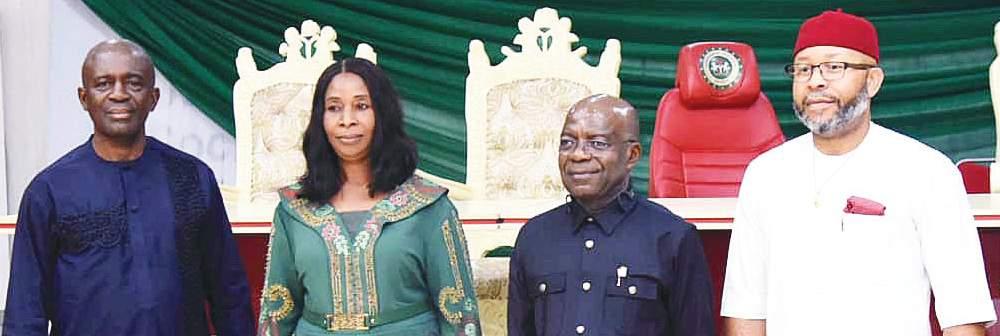
INJECTING NEW BLOOD INTO OTTI’S CABINET...
L-R: Commissioner for Housing, Arc Chiemela Uzoije; Commissioner for Trade and Commerce, Dr. Salome Obiukwu; Governor Alex Otti; and Special Adviser to the Governor on Agriculture, Prince Christian Enweremadu, after the swearing-in of the new cabinet members at Government House Umuahia, yesterday
At UNGA, Nigeria Urges Africa to Fund Its Minerals Sector, Control Global Supply
Woos investors
Deji Elumoye in Abuja
President Bola Tinubu yesterday, clamoured for a total rephras- ing of the global financial architecture of Africa’s mineral resources, stressing the need for the continent to begin to not only finance its mineral sector, but also assert its influence and power in the products’ global
supplyAccordingchains.to the President, this would be necessary if African nations’ sovereignty was to be protected, while also recommending collective action by development allies and partners, to bring Africa’s mineral economy to reality for the benefit of the continent.
Tinubu, represented by Vice
President Kashim Shettima, called for these decisive actions at the Second Africa Minerals Strategy Group (AMSG) High- Level Roundtable on Critical Minerals Development in Africa, held on the sidelines of the 80th Session of the United Nations General Assembly, New York City.“We must take the bull by
the horns in financing our future. Never again shall we wait for capital to trickle in. With sovereign funds, blended vehicles, and innovation tools like the Africa Mineral Token, Africa shall finance Africa. To safeguard this sovereignty, we must guard our cobalt, lithium, graphite, gold, and rare earths not as fragmented states but as
Energy Transition: NEITI Tasks NNPC, NUPRC, Others on Methane Emissions Reduction
Emmanuel Addeh in Abuja
The Nigeria Extractive Industries Transparency Initiative (NEITI) yesterday tasked Ministries, Departments and Agencies (MDAs) to commit to the energy transition process, specifically urging the ministry of petroleum and the Nigerian Upstream Petroleum Regula- tory Commission (NUPRC) to ensure strict implementation of gas flare and emissions reduction rules.
Executive Secretary of NEITI, Dr Ogbonnaya Orji, who spoke at a roundtable
in Abuja on the “Long-Term Impact of Energy Transition on Nigeria’s Economy” organised by NEITI, stated that while the global shift from fossil fuels to renewables is not optional, it is an inevitability that demands foresight, coordination, and deliberate action.
For a nation whose economy has long been tied to oil and gas, this transition, he said, is both a challenge and a unique opportunity, a state- ment issued by the NEITI Director of Communications & Stakeholder Management, Obiageli Onuorah, said.
“The Federal Ministry of Petroleum Resources and the NUPRC occupy a frontline position in this process. As custodians of upstream oil and gas regulation, their role is to ensure that petroleum opera- tions progressively align with decarbonisation objectives.
“This includes enforcing strict disclosure of emissions, compelling companies to adopt flare reduction technologies, and regulating divestments in line with the Petroleum Industry Act. By insisting on transparency in licensing and mandating that new petroleum
Airtel Africa Foundation Targets 100 Scholarships, Tech Hub in Nigeria
Emma Okonji
Airtel Africa Foundation, the philanthropic arm of Airtel Africa, which was established last year in July, has announced some of the benefits that Nigeria will derive from the foundation in 2026. The foundation with the mission to promote Education, Environmental Protection, Financial Inclusion, and Digital
Inclusion across Africa, has announced it will offer 100 scholarships to Nigerian undergraduate students, from among the 200 scholarships planned for students across Africa and would also establish two tech hubs in Africa, one in Nigeria and the other in Democratic Republic of Congo (DRC). Chairman, Airtel Africa Foundation, Dr. Segun Ogunsanya, who disclosed this at a press
conference organised jointly by Airtel Nigeria and Airtel Africa Foundation in Lagos yesterday, also disclosed the foundation, which is fully sponsored by Airtel Africa, would connect 2,500 public schools to the internet, renovate public schools, provide IT laboratories, smart classrooms, develop 100 digital communities and equip over 100,000 youth with IT skills across Africa in 2026.
projects incorporate renewable integration, these institutions can position Nigeria’s oil and gas sector on a more sustain- able“Thepath.Nigerian National Petroleum Company Lim- ited (NNPC) equally bears a transformative responsibility. No longer should the NNPC be seen as a traditional oil company, but as a diversified energy player capable of driv- ing Nigeria’s energy future.
one continental bloc, wielding collective power in global supply chains,” he submitted.
Pledging Nigeria’s com- mitment towards catalysing a mineral-led renaissance under the Renewed Hope Agenda, as exemplified back home, the President urged African leaders to end the “ignoble cycle” of importing finished goods through accelerated government- led mineral exploration.
To unlock Africa’s mineral economic future, Tinubu said the objective would materialise based on four imperatives.
First, the President urged African nations to climb the value chain, adding, “We must end the ignoble cycle of exporting rocks and importing finished goods.
From beneficiation to green manufacturing, Africa must build industries on African soil,” he Tinubuargued.continued, “Second, I am proud to announce that with the African Minerals and Energy Resource Classification (AMREC), and the Pan-African Resource Reporting Code (PARC), we will no longer
beg for geological knowledge of our own land. Africa’s data will be mapped, standardized, and owned by Africans.
“Third, data alone is not enough. We must accelerate government-led mineral explo- ration and national geological mapping.“Without exploration, there is no sovereignty. Without map- ping, there is no value. Every member state must prioritise country-wide surveys, strengthen geological agencies, and pool expertise through AMSG. For when Africa owns the map, Africa owns the future.”
Fourthly, the President urged African leaders to take the bull by the horns in financing Africa’s future.
“With sovereign funds, blended vehicles, and innovative tools like the Africa Mineral Token, Africa shall finance Africa,” he maintained.
Tinubu demanded a collective demonstration of leadership while calling upon sovereign wealth funds, private partners, and development allies to join Africa in rewriting the story of Africa’s mineral economy.
Olawale Ajimotokan in Abuja
Minister of Information and National Orientation, Mohammed Idris has proposed a synergy between the ministry and the National Board for Technical Education (NBTE) in the training and certification of media professionals to raise the standard broadcast content and strengthen media literacy. He sought the collaboration when the Executive Secretary of NBTE, Prof. Idris Bugaje, and members of the newly inaugurated Creative Media
Sector Skills Council, paid a courtesy visit his office in Abuja yesterday.
Idris said the work of NBTE directly supported the mandate of the ministry to ensure the dissemination of credible, ethical and professional information in addition to projecting Nigeria’s image positively both at home and abroad.
He assured the NBTE and the Creative Media Sector Skills Council of the Ministry’s readiness to work closely with them by designing pathways that integrate occupational
standards for digital services, creative media, photography, cinematography, and more, into the mainstream of broadcast and information practice.
“I warmly welcome you to the Ministry of Information and National Orientation. I also wish to commend the National Board for Technical Education for its tireless efforts in advancing Technical and Vocational Education and Training (TVET) in Nigeria, particularly through the Nigerian Skills Qualifications Framework.


BRIEFING BY THE MONETARY POLICY COMMITTEE...
L-R: The Central Bank Governor of Nigeria, Mr.
to Complete Abandoned National Library Project
Says project fund devoid of political undertone, but based on her love for education
Wife of the president, Senator Oluremi Tinubu, on Tuesday disclosed that she had raised N20.7 billion out of N200 billion required to complete the abandoned 11-storey National Library building in Abuja.
Speaking over lunch at a news briefing at Banquet Hall of State House, Abuja, Mrs. Tinubu, accompanied by the wife of the vice president, Mrs. Nana Shettima, and wives of service chiefs, announced that her 65th birthday fundraiser towards the completion of the National Library realised N20.7 billion.
The first lady added that as at 2pm on Tuesday, September 23, the fund had realised N20.7 billion and was still counting, stating that the account will remain open till December before being shut down.
According to her, “I have played my part in this project, and believe Nigerians can raise the funds needed to complete
the library. This is not just a project but a national treasure that will serve generations to come.”
Mrs. Tinubu said the signatories to the account were Minister of Education and Chief Librarian of the Federation, and said her task was only to help drive the funds.
The first lady, while justify- ing her fund raising for the National Library project, referenced an old Lebanese poet and writer saying, “In his 1925 Essay, ‘The New Frontier,’ Gebran Kalil Gebran, a Lebanese writer, poet, philosopher and artist, wrote, I quote: ‘Are you a politician, asking what your country can do for you or a zealous one, asking what you can do for your country? If you are the first, then you are a parasite, if the second, then you are an oasis in a desert.’
“That is why if we take our baby steps well doing, before long, things will begin
to shape up for our country.
“We all have to rise up, play our parts in the building process. A grain of sand and a drop of water makes a mighty ocean.”
The first lady also debunked claims that her 65th birthday anniversary fundraiser was politically motivated, and stressed that it was based
on her love for education. She pointed out that as a teacher, and considering the impact library had on her life while growing up, she was motivated to call for the donations towards the building of the national library.
Mrs. Tinubu stated, “What is wrong in doing well or
trying to build our country - if I could assist the post-war building process in Liberia by donating the Oluremi Tinubu Elementary and Junior Secondary School in Monte Serrado County in Liberia, what is wrong in drawing attention to some of the areas of need in our beloved nation.
“This is not the first time I
have raised funds for causes close to my heart. For my 45th birthday, I raised N50 million to complete the National Sickle Cell Foundation Centre, which has since become fully operational. For my 50th birthday, I raised N200 million for the New Era Foundation and other charities.”
Asham Rail Crash: NRC Completes Recovery of Coaches, Locomotives, Track Repair Near Completion
The Nigerian Railway Corporation (NRC) has announced substantial progress in its recovery, repair, and safety efforts following the derailment of the Abuja–Kaduna train on August 26, 2025, at Asham.
The corporation confirmed that its team of engineers has successfully re-railed and recovered all coaches and
Says six months enough to disclose recoveries from Kyari
locomotives involved in the incident.
According to the NRC Managing Director, Dr. Kayode Opeifa, in a statement made available to journalists yesterday, “These assets have since been moved to designated workshops for comprehensive assessment and further technical work.
Our team of engineers has successfully repaired the main line to a level that allows us to resume operations safely. While train services will recommence, work on the secondary track will continue simultaneously. During this period, the second line will remain out of use until
Ekiti Guber:
all necessary repairs are fully completed.”
He added that the engineers have now commenced a comprehensive safety and infrastructure assessment to ensure that all aspects of the corridor meet the highest standards of safety, durability, and reliability before operations resume.
“This phase includes a thorough evaluation of the repaired section and other critical infrastructure along the route,” he said.
NRC emphasized that resumption of operations would only occur after all necessary technical inspections, tests,
and certifications have been completed.
“Safety remains our top priority,” the corporation stated, reaffirming its determination to restore public confidence in rail services.
On passenger welfare, Opeifa said: “We have confirmed that out of the 618 passengers on board the affected train, 22 sustained injuries and are at various stages of recovery. We have successfully contacted 512 passengers, while 71 are yet to be reached due to vari- ous reasons ranging from not responding, wrong numbers, and unavailability.
Oyebanji Urges APC
to
for All CSO Writes EFCC Chairman, Demands Open Status Report on $4bn Refinery Fraud Probe
The Concerned Nigerians for Transparency and Justice (CNTJ), a civil society coalition, has pressed on the Economic and Financial Crimes Commission (EFCC), to release a public interim report on the investigation into the alleged $4 billion fraud linked to the failed rehabilitation of Nigeria’s Port Harcourt, Warri, and Kaduna refineries under former NNPCL Group Chief Executive Officer, Mele Kyari.
The group argues that six months is sufficient for Nige- rians to be informed about the progress of the probe and any funds recovered.
In an open letter to the EFCC chairman, signed by Comr. Obinna Francis and Adamu Musa, the group underscored the urgency of transparency amid Nigeria’s economic challenges.
The open letter highlights public outrage over the refineries’ failure to produce fuel despite Kyari’s high-profile
commissioning ceremonies, which promised an end to fuel imports.
CNTJ points to the severe economic implications of the alleged mismanagement, noting that the $4 billion—equivalent to trillions of naira—could have funded critical sectors like healthcare, education, and infrastructure.
The coalition’s demand for clarity comes as Nigerians grapple with soaring fuel prices and inflation, exacerbated by the refineries’ continued dormancy.
Provide Level Playing Ground
Says
he’s
confident in his party
Adedayo Akinwale in Abuja and Gbenga Sodeinde in Ado Ekiti
Ahead of the October 27 All Progressives Congress (APC) governorship primary election, the Ekiti State Governor, Biodun Oyebanji, has urged the party leadership to provide a level playing field for all the aspirants.
This, he said, would help all the aspirants that have indicated interests and scaled through the screening process to enable them sell their manifestos to party members. Oyebanji made the call while speaking with newsmen shortly after he appeared before the APC Screening committee headed by Hon Tunji Olawuyi in
Abuja. The governor, who was the first to participate in the screening exercise, arrived at the venue at about 10.00am and was ushered into the conference room, where his credentials were screened by members of the panel. The screening session lasted about 15 minutes behind closed doors.
FIRS Chair, Zacch Adedeji, Justifies External Borrowing Amid N3.64tn Revenue Boost
Says debt now
channelled into infrastructure financing, productive investment, not payment of salaries, subsidies Declares borrowing to fund budget legitimate
Deji Elumoye in Abuja
Chairman, Federal Inland Revenue Service (FIRS), Dr. Zacch Adedeji, yesterday, justified the country’s continued borrowing from external sources, even as revenues surged 411 per cent to N3.64 trillion in September.
Speaking at a news briefing at State House, Abuja, Adedeji stated that the federal govern- ment’s borrowing was currently focused strictly on funding growth and infrastructure, rather than recurrent expenses.
He said there had been a paradigm shift in government’s borrowing attitude, adding that it is no longer deployed to pay- ment of salaries or subsidies, but directed at financing infrastructure and productive investment to spur long-term economic growth.
Adedeji also revealed plans for future projects, including reforms aimed at enhancing fiscal ef- ficiency and competitiveness.
Others included efforts to harmonise subnational levies to reduce multiple taxation,
m one TARY eASI ng b eg I n S AS
Addressing journalists at the end of the two-day meeting of the MPC in Abuja, CBN Gover- nor, Mr. Olayemi Cardoso, said the “committee’s decision to lower the monetary policy rate was predicated on the sustained disinflation recorded in the past five months.
The Director-General of the Nigeria Employers’ Consulta- tive Association (NECA), Mr. Adewale-Smatt Oyerinde, as well as the Chief Executive Officer, Centre for the Promotion of Private Enterprise (CPPE), Dr. Muda Yusuf, commended the CBN and its MPC for their decision to ease credit conditions in the Nigerian economy.
In addition, the MPC also adjusted the standing facilities
corridor around the MPR to +250/-250 basis points from +500/-100 basis points to boost interbank market transactions and enhance the stability of the market.
The committee further reviewed the Cash Reserve Requirement (CRR) for com- mercial banks to 45 per cent from 50 per cent, while retaining that of merchant banks at 16 perAlso,cent.the MPC introduced a 75 per cent CRR on non-TSA public sector deposits, and retained the Liquidity Ratio (LR) at 30 per cent.
The slash in the benchmark interest rate came amid relative stability in foreign exchange (FX) and the sustained disinfla-
introduce a presumptive tax system for informal sectors, and progressive lowering of corporate tax rates to attract investment.
The FIRS boss further hinted at constitutional reforms to clarify revenue allocation between federal and state governments under strengthened fiscal federalism.
He said, “Borrowing is not a problem, banks are part of our economy eco-system; there is no country or an individual in the world that survive based
tion recorded in five consecutive months.
Furthermore, Cardoso said the rate cut was also linked to projections of declining prices for the rest of the year as well as the need to support economic recovery efforts.
He expressed satisfaction with the prevailing macroeco- nomic stability, evidenced by the improvements in several indica- tors, including the sustained disinflation, improved output growth, stable exchange rate and robust external reserves.
The CBN Governor, par- ticularly noted the increased momentum of disinflation in August 2025, being the highest in the past five months.
He said the deceleration,
on its own income.
“When government borrows from bank we pay interest, it is from that interest they pay salary, it is from the salary that they pay taxes to state government, and it is from the profit difference between profit and lending that I collect taxes from.
“So, when you say you go for lending...it means you go for sustainability, you borrow to beat higher cost for the future, you borrow because of matching concept to sustain continuity.
“When you borrow to do road
underpinned by monetary policy tightening, exchange rate stability, increased capital inflows, and surplus current account balance, had helped to broadly anchor inflation expectations.
Cardoso further pointed out that the continued moderation in the price of Premium Motor Spirit (PMS) and the notable increase in crude oil production also contributed to inflation deceleration.
He said in the view of the committee, the stability in the macroeconomic environment offered some headroom for monetary policy to support economicHowever,recovery. Cardoso, who read the committee’s communique,
Signalling Her Resumption, Senate Unseals Natasha Akpoti-Uduaghan’s Office
Postpones resumption without explanation Embattled senator doubles down on apology HURIWA seeks end to her trial
In a major development, the senate, yesterday, officially unsealed the office of Senator Natasha Akpoti-Uduaghan, who had been on suspension for about six months. The development indicated her imminent return to legislative duties.
The unsealing was supervised by Deputy Director in the Office of the Serjeant-at-Arms, Mr. Alabi Adedeji, accompanied by a team comprising National Assembly security operatives and other federal law enforcementThepersonnel. office, Suite 205, located within the Senate Wing of the National Assembly Complex, had been locked since the senator’s suspension earlier this year.
Akpoti-Uduaghan, who represents Kogi Central Senatorial District on the platform of Peoples Democratic Party (PDP), was suspended for six months by the senate over alleged breaches of its standing
rules, a decision that drew sharp criticism from rights groups, political observers, and civil society organisations.
The senate leadership at the
sets. For Total, the move was part of a strategy to step back from onshore oil operations, which have been plagued by theft, vandalism and community disputes, and instead concentrate on offshore and gas projects, particularly those tied to Nigeria LNG. In the same vein, Mauritiusbased Chappal Energies was expected to take on both the rights and obligations of Total in the licenses, signaling its entry into a bigger role in Nigeria’s upstream sector. However, the deal has run into regulatory headwinds, it was learnt.
Although the NUPRC initially granted its approval in July, it has now withdrawn it, citing the failure of the parties to meet certain financial and regulatory requirements within
time claimed she was guilty of “unparliamentary conduct,” though it failed to provide comprehensive details in the public domain, other than the
the stipulated timeframe. Thape revocation has thrown the transaction into uncertainty, leaving both Chappal and TotalEnergies waiting on what next steps might follow in one of the country’s most closely watched divestment cases.
According to the Reuters report, regulatory approval for the sale granted last October has been withdrawn because the two sides have not met financial commitments required to complete the deal, quoting Eniola Akinkuotu, spokesperson for the NUPRC.
“The ministerial consent was accompanied by certain financial obligations to the Nigerian people with strict deadlines. However, both parties failed to meet their financial commitments after repeated extensions, forcing
accusation that she spoke from a seat not allocated to her. Critics had long contended that her suspension was po-
Continued on page 34
the commission to cancel the deal,” Akinkuotu said. Chappal Energies and TotalEnergies declined to comment.
One source familiar with the negotiations said Chappal failed to raise the $860 million, and as a result Total did not fulfil its requirement to pay regulatory fees and cover funds for environmental rehabilitation and future liabilities.
The failed deal, Reuters said, leaves Total saddled with its stake in a business which has struggled with hundreds of oil spills as a result of theft, sabotage and operational issues that led to costly repairs.
In March, Shell sold its 30 per cent stake in SPDC to a consortium of five mostly local companies for up to $2.4 billion. U.S. major Exxon Mobil, Italy’s Eni and
infrastructure and you collect in the future taxes from anybody using that road to pay their fair share.”
Adedeji insisted that there was nothing unusual with borrowing, as it remained part of the annual budget, adding that it is legitimate.
He said, “Borrowing is part of economic plan and any country that will grow has to borrow because it is part of eco-system of a viable nation.
“So, when Mr. President said we have met our target or we
said that, notwithstanding the consistent deceleration in inflation, the committee observed the persistent build-up of excess liquidity in the banking system.
This, he said, resulted largely from fiscal releases emerging from improved revenues.
He said, “Being mindful of the need to preserve the prevailing macroeconomic stability, the MPC noted the risk posed by excess liquidity in the banking system.
“Members noted that effective functioning of the interbank market remains critical to enhanced transmission of monetary policy.
“This, therefore, informed the decision to adjust the width of the standing facilities corridor to boost interbank market transactions and enhance the stability of the market.”
The committee further acknowledged the contin- ued stability of the foreign exchange market and its critical importance in achieving rapid disinflation, and therefore, called on the CBN to continue the implementation of policies that would further boost capital inflows and deepen foreign exchange liquidity.
On the financial sector, the MPC noted the continued
Norway’s Equinor have also sold Nigerian assets in recent years to focus on newer, more profitable operations elsewhere.
Chappal Energies, which specialises in producing oil and gas from mature and distressed upstream assets in the Niger Delta, last year successfully closed the purchase of Nigerian assets from Equinor for $1.2 billion, with financial backing from Mauritius Commercial Bank and commodities trader Trafigura.
Chappal has not disclosed its financial backers for the proposed purchase from TotalEnergies, the Reuters reportOtheradded.SPDC shareholders include the Nigerian National Petroleum Corporation (55 per cent) and Eni (5 per cent). Total’s unsuccessful exit is a
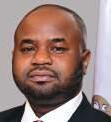
are doing well in revenue, and they say why are we borrowing, is borrowing not part of the budget we submitted to National Assembly? Are we borrowing outside what is approved?”
resilience of the banking system, with most of the financial soundness indicators remaining within their respec- tive prudential benchmarks.
The CBN Governor said the committee also acknowledged the significant progress in the ongoing bank recapitalisation exercise, as 14 banks have fully met the new capital requirement.
The committee urged the Bank to continue the imple- mentation of policies and initiatives that would ensure the successful completion of the ongoing recapitalisation exercise.
The MPC further noted the successful termination of forbearance measures and waivers on single obligors, which had helped to promote transparency, risk management and long-term financial stability in the banking system.
The MPC reassured the public that the impact of the removal of forbearance was transitory and does not pose any threat to the soundness and stability of the banking system.Cardoso said gross external reserves remained robust at $43.05 billion on September
Continued on page 35
setback to its goal to offload more high cost, polluting assets and pay down some of its debt, which leapt 89 per cent to $25.9 billion in the year to July.
Chief Executive, Patrick Pouyanne told investors in July the Nigerian sale was one of three deals that would bring in $3.5 billion before year-end and lower the company’s debt-to-equity ratio, which hit 28 per cent including leases and hybrid debt at mid-year. The failed sale also leaves Total with interests in 15 licences in mostly oil-producing fields that netted the company about 14,000 barrels of oilequivalent per day in 2023, as well as three licences in gas fields that account for 40 per cent of its Nigeria LNG gas supply, the Reuters report said.

funeral of Bishop emeritus of nsukka Diocese...
Governor of Enugu State, Dr. Peter Mbah, performs the dust-to-dust rite, alongside other dignitaries and Catholic Bishops, during the funeral of Bishop Emeritus of
Diocese, the late Most Reverend Emmanuel Okobo, at St. Theresa’s Cathedral, Nsukka... yesterday
History as Enugu Transitions to Smart Green Schools
Mbah: Africa’s sovereignty, relevance begin in classrooms Justifies 33% budgetary allocation to education
Gideon arinze in Enugu Enugu State, on Monday, ushered in a new epoch in its history and the life of children, as it officially began the transi- tion from existing primary and junior secondary schools to Smart Green Schools, Governor Peter Mbah’s signature initiative in the South-east state.
New model equips children for evolving workplace Acknowledges teething challenges, but resolved to deliver they inherit tomorrow; when they own it; they will shape it and defend it. If we fail them, no number of slogans will save us.”
In a broadcast to usher in the new era Monday morning, Mbah said the shift from old school structures and learning by rote to world-class infrastructure and experiential learning had become imperative to equip Enugu children with knowledge and skills to compete in the global economy. He stressed, “We are no
longer a state waiting to be saved – we are a state shaping the future on our own terms.”
The governor stated, “Africa today is the youngest continent in the world. More than 60 per cent of our people are under the age of 25. By 2050, our population will reach 2.5 billion, and one in every three young people on earth will
be an African. This is a stark reminder that our future will be built by young hands.
“This is not just a statistic; it is a summons. It means that the destiny of African nations rests on what we nurture in the minds and hearts of our children.
“If we raise them well and leave them opportunity, when
UNIOSUN College of Education Inducts 147 New Teachers, Champions AI as the Future of the Profession
The Osun State University College of Education, IpetuIjesa Campus, has formerly inducted its latest cohort of educators into the Teachers Registration Council of Nigeria (TRCN) in a ceremony held at the Multipurpose Hall of the University’s Main Campus in Osogbo.
This year’s event, themed ‘Transforming Teaching into Enterprise: The Role of Generative AI,’ served as a powerful call to action for the new graduates,
urging them to embrace technological innovation to elevate their practice and impact.
Speaking at the event, the Provost of the College of Education, Professor Florence Adeoti Yusuf, reframed the teaching profession for the modern age. She remarked that the induction not just an academic culmination, but ‘the beautiful beginning of the most important one: the journey to shape minds, ignite curiosity and build the future.
Professor Yusuf positioned Generative AI not as a threat, but as a ‘tireless assistant and creative partner’ that can transform teaching from an ‘artisan craft’ into a dynamic enterprise.
However, Vice-Chancellor of Osun State University, Professor Clement Odunayo Adebooye, represented by the Deputy ViceChancellor (Academic, Research, Innovation and Partnership), highlighted the recent achievements of the university, underscoring its commitment to academic
Gov Yahaya Partners Michigan State University to Establish Top-tier Agric Faculty at Gombe State Varsity
segun awofadeji in Gombe
Governor Muhammadu Inuwa Yahaya of Gombe State has formalized a strategic part- nership with Michigan State University (MSU), USA, by signing a Letter of Intent (LoI) paving the way for establish- ment of world-class Faculty of Agriculture at Gombe State University (GSU).
The governor led a del-
egation to MSU as part of a working visit yesterday, aimed at deepening international partnership in agricultural development, research and capacity building.
The Letter of Intent was signed during a ceremony attended by senior MSU of- ficials, including the Chair of the Department of Biosystems and Agricultural Engineering, Professor Bradley Marks,
Assistant Dean, Professor Karim Maredia, and Director of International Programmes.
The partnership outlines several key areas of col- laboration, including joint research initiatives, curriculum co-development, faculty and student exchanges and joint projects focusing on sustainable agriculture, water management, landscape restoration and renewable energy applications.
excellence and innovation in higher education.
The event featured the formal presentation of TRCN certificates to the inductees by the Council’s representative, Mrs. Mary Anekwe, just as congratulatory messages poured in from principals and head teachers of schools across Osun State, who welcomed the new professionals into the fold.
Mbah said his administration’s slogan, “Tomorrow is here,” was not just a catchphrase for Enugu, but “a covenant with that future,” adding that Africa’s sovereignty rests on the quality of its human capital.
He stated, “It is the recogni- tion that the sovereignty of our state, of Nigeria, and indeed of Africa, will be determined by the strength of our young people – their ability to think critically, to innovate, and to act with integrity.
“Our sovereignty begins in the classroom. It begins with how we choose to welcome the child into the world. And this takes time, care – and investment.”
Citing his personal experience, when he had to journey from “the slums of Port Harcourt, where every day was a struggle and nothing was guaranteed,” Mbah said education and
resilience were his “passport to a life of possibility”.
He maintained that Enugu children did not have to go through such ordeals on account of economic circumstances, insisting that education must be treated as a public right.
Mbah said, “At home and at school, when a community receives and educates each child as a whole human being, it is akin to public service at the deepest level.
“The habits a child rehearses – attention, curiosity, patience, empathy, self-belief – become the civic habits of our culture. A school day shaped by rhythm, responsibility, and care quietly trains the nervous system for self-regulation and the social muscle for cooperation.
“Those capacities later show up as lower violence, stronger communities, and a public square that can tolerate disagreement without tearing itself
“Theapart.school, then, is not just a service; it is a commons where the human village renews itself.”
Katsina, UNICEF to Vaccinate 7.1m Children Against Rubella Measles, Polio
Katsina State Government, in collaboration with the United Nations Children’s Fund (UNICEF), has announced plans to vac- cinate 7.1 million children across the state against polio and rubella measles from October 6 to 13. Chief of UNICEF Field Office, Kano, Mr. Rahama Farah, disclosed this at a one-day media
dialogue on integrated October polio vaccination campaign held in Katsina onFarahTuesday.said the Katsina State government will implement the polio campaign integrated with measles rubella with 3,698,500 doses of novel oral polio vaccines, targeting 2.3 million children under five years of age. He explained that 2.3 million will be vaccinated through directly observed
oral polio vaccination, while 4.8 million children between nine months and 14 years will be vaccinated against rubella measles, totalling 7.1 million children.
Farah said, “Katsina has been provided with 3,698,500 doses of Novel Oral Polio Vaccines (nOPV2), targeting 2.3 million children under five years of age, who will be vaccinated through Directly Observed Oral Polio Vaccination (DOOPV).
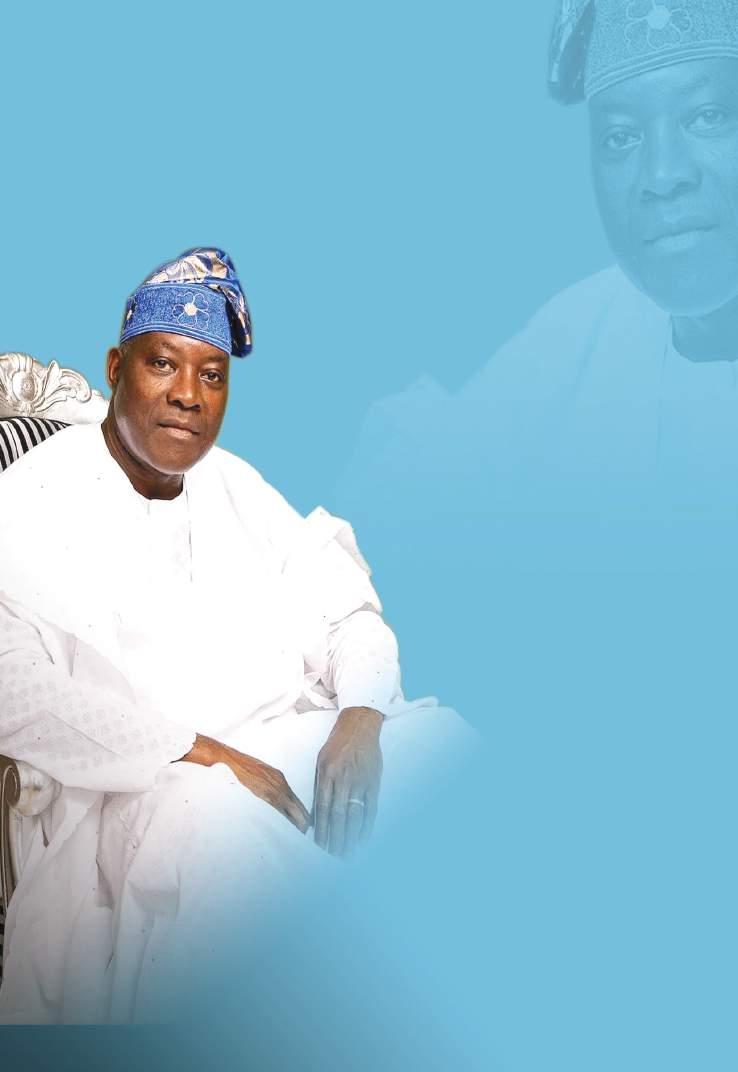
On this auspicious milestone, we felicitate a dearly beloved friend, an industrialist extraordinaire, a boardroom guru, and a consummate entrepreneur,
as you join the constellation of septuagenarians.
We salute your extraordinar y skills, unrivalled acumen, remarkable dexterity,
prowess and landmark contributions to the Nigerian economy in diverse ways.
As a foremost corporate executive, your style, carriage, demeanour, bearing, commitment to excellence, dedication to hard work, respect for ethics and quest for lofty ideals, amongst many other credible virtues of yours, have placed you among the best and doyens of our corporate world.
We appreciate our shared relationship over the years and wish you many more years ahead in good health, sound spirit and abundance of God's blessings.
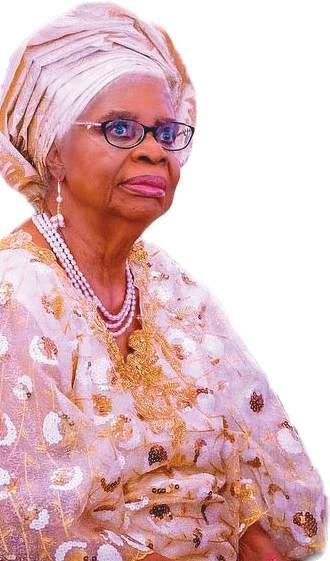


FEDERAL REPUBLIC OF NIGERIA
Federal Ministr y of Works (FMW)
In compliance with Infrastructure Concession Regulatory Commission (ICRC) Act 2005 & National Policy on Public-Private Partnership (PPP)
1. NOTICE TO FEDERAL HIGHWAY CONCESSIONAIRES/PROPONENTS th nd
Pursuant to the Honourable Minister's two-day meeting held on Friday, 16 July and Tuesday, 22 July, 2025 respectively with the Concessionaires and relevant MDAs aimed at reviewing the Concession Agreements and Addenda to the Concession Agreement to address critical issues necessary for achieving Financial Close and Project Handover of all Public-Private Partnership (PPP) projects under the Highway Development and Management Initiative (HDMI) and other Unsolicited Projects, all the underlisted Concessionaires are hereby requested to forward their inputs and/or concurrence to the Concession Agreements and Addenda to the st Concession Agreement to the Ministry on/or before Wednesday, 1 October, 2025 to enable the Projects
move to the next stage of procurement process
Furthermore, the Concessionaires are hereby notified of the status of their procurement processes and are required to immediately take necessary actions in collaboration with the Ministry This is in preparation for securing the necessary approvals from the Federal Executive Council (FEC) for the respective projects.
Please note that the Ministry is committed to concluding all the ongoing Public-Private Partnership (PPP) projects without further delay Therefore, all Concessionaires / Proponents are expected to liaise with the PPP Unit for prompt finalization of the Concession Agreements and Addenda to the Concession Agreement for HDMI 1 Projects within a week from the date of this publication.
2.EXISTING CONCESSIONAIRES UNDER HIGHWAY DEVELOPMENT & MANAGEMENT INITIATIVE (HDMI) 1, VALUE-ADDED CONCESSION (VAC):
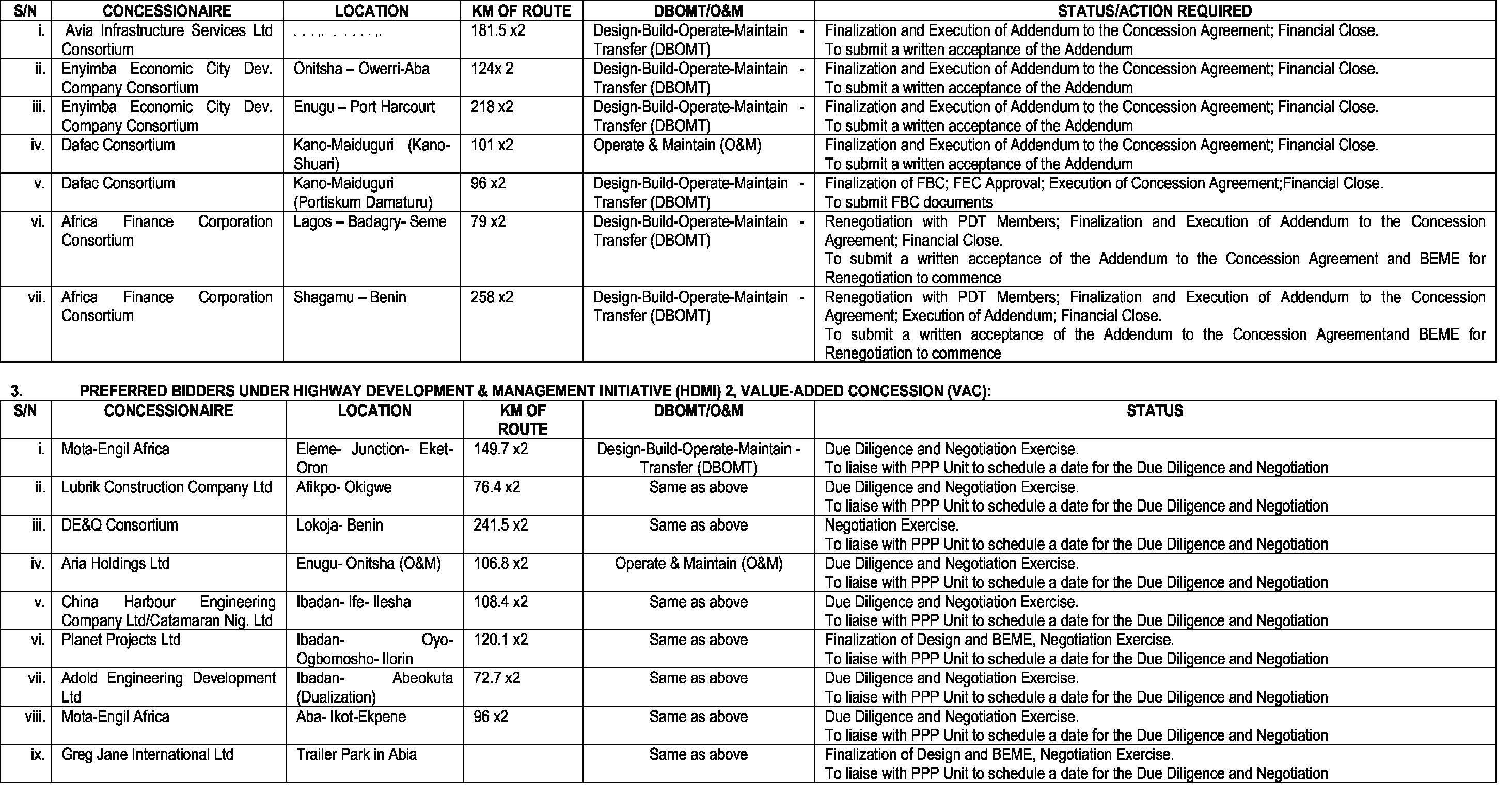

6. The Federal Ministry of Works reaffirms its commitment to the PPP model as a strategic instrument for sustainable infrastructure delivery nationwide. The Ministry continues to ensure transparency, efficiency, and mutual value in all PPP engagements
Signed: Permanent Secretar y Federal Ministr y of Works

NATIONAL ASSEMBLY
FEDERAL REPUBLIC OF NIGERIA
NOTICE OF RESCHEDULING OF RESUMPTION DATE FOR PLENARY ACTIVITIES


This is to Inform Distinguished Senators,
Honourable Members of the House of Representatives and the general Public t
September 2025, has been postponed. The new date is now Tuesday 7 th October 2025.
P
continue.
All Distinguished Senators and Honourable Members are kindly requested to take note of the new date and adjust their schedules accordingly.
We sincerely regret any inconvenience this change may cause.
Signed
Kamoru Ogunlana, Esq. Clerk to the National Assembly


www.thisdaylive.com
NIGERIA’S TRAGEDY OF TITLES
It is time to celebrate capacity, not empty prestige, contends KAYODE AWOJOBI

AFRICA AND INTERNET CONNECTIVITY
The continent is still low on connectivity, writes SONNY ARAGBAAKPORE


opinion@thisdaylive.com
The people of Rivers State are paying the price in the currency of constitutional outrage, writes CHIDI ANSELM

LIKE PLATEAU, LIKE RIVERS?
“The judiciary have a wide scope for making political decisions.”
J.A.G. Griffiths, “Constitutional and Administrative Law’ in Peter Archer & Andrew Martin (Eds), More Law Reform Now, 55 (1983)
The judgment of the Supreme Court of Nigeria on 19 January 2006 concerning the state of emergency in Plateau State came down 20 months after the proclamation and 14 months after the emergency had expired. When it eventually was finally issued, the judgment was worse than an anti-climax. The most important thing about the decision was not the jurisprudence of the court but the timing of when the court chose to hear the case. Nearly two decades later, the same Court is likely to reprise a familiar script, serving as an apex enabler of power amok. The people of Rivers State are paying the price in the currency of constitutional outrage. As always, the facts matter.
By Statutory instrument No. 4 of 2004, issued on 18 May 2004, Olusegun Obasanjo, president of Nigeria and a retired four-star General, proclaimed a State of Emergency over Plateau State in north-central Nigeria. Known as the State of Emergency (Plateau State) Proclamation, S.I. No. 4 of 2004 provided that “the State shall for the duration of the emergency be administered by an Administrator who shall be appointed by me and operate on the basis of such Regulations that may, from time to time, be issued by me.” The duration of the emergency proclamation was six months.
At the time, President Obasanjo was elected on the platform of the Peoples’ Democratic Party (PDP). Beyond the federal level, the same party ruled or controlled 28 out of the 36 states in Nigeria. Joshua Dariye, the governor suspended in Plateau State by the emergency, was also elected on the platform of the party.
Having suspended the elected governor, his deputy and the Plateau State House of Assembly in exercise of powers purportedly exercised under the emergency, President Obasanjo appointed Chris Alli, a former Chief of Army Staff of the Nigerian Army, as his chosen Emergency Administrator for Plateau State. The National Assembly quickly voted to afford the president the parliamentary reinforcement required under the constitution.
In the name of Plateau State and its people, the suspended governor, Joshua Dariye, instructed legal proceedings invoking the original jurisdiction of the Supreme Court in respect of disputes between a state and the federal government. Among other things,

the case asked the Supreme Court to determine whether the relevant provisions of the Constitution and of the Emergency Powers Act of 1961, empowered the president to suspend elected officials of the state.
The Supreme Court took its merry time before scheduling the case for argument. By the time it took arguments in the last quarter of the following year, the legal issues were still substantial but the actual emergency had long become spent. In its judgment, the Court ruled that the proceedings lacked the requisite legal standing because the suspended governor did not have powers to instruct proceedings on behalf of Plateau State and the Emergency Military Administrator had not authorized nor supported the case. It also added that as the emergency was spent, there was no longer any live dispute involved.
This was diabolical judicial capitulation. If, as seemed evident, the court was clearly reluctant to get itself embroiled in the controversy, it would have struggled to find a more illogical piece of reasoning on the basis of which to justify casualizing the issue as a matter of the institutional comfort for the judiciary.
The most charitable anyone could be about the idea that the fate of the case should hang on the consent of the Military Administrator the legality of whose appointment was in question was that it was cynical jurisprudence. At the time of the judgment, in any case, the question of whether or not the president had the power to suspend elected state officials was not at all academic. Yet, through an act of commission that was deliberately made to look like routine omission, the Supreme Court enabled the Plateau State emergency proclamation, setting a precedent that ransacked the constitution but which suited the essentially military temperament of a soldier and war-time General whose tolerance for being second-
guessed by anyone was notoriously thin.
Nearly two decades later, On 17 September 2025, Bola Ahmed Tinubu, Nigeria’s incumbent president, issued an announcement lifting the six-monthold state of emergency that he had imposed on Rivers State on 18 March. The announcement coincided with the expiration of the period of six months. Reprising the precedent set by President Obasanjo in 2004, President Tinubu, in proclaiming the emergency in Rivers State, also suspended all elected state level officials, including the state governor and the members of the Rivers State House of Assembly. Unlike the situation in 2004, however, the party of the president this time is the All-Progressives Congress (APC) and the elected state officials at the receiving end were in the PDP which had been in opposition since 2015.
At the National Assembly, which the Constitution requires to ratify the emergency proclamation by a qualified (two-thirds) majority, both chambers passed it by a voice-vote. This made it impossible to compute compliance with the constitutional arithmetic for lawful emergency proclamation. Naturally, therefore, the matter was fated to end up in controversy.
President Tinubu acknowledged as much in his announcement of the end of the Rivers State emergency, confessing awareness of the fact that there were “over 40 cases in the courts in Abuja, Port Harcourt, and Yenagoa, to invalidate the declaration.” With a touch of presidential hubris, he added that “that is the way it should be in a democratic setting. Some cases are still pending in the courts as of today.”
Most of the courts that have decided did so by way of rulings designed to short-ensure that was no judgment. One of the cases pending in the courts is SC/ CV/329/2025 filed on 9 April 2025, a mere three weeks after the emergency proclamation in Rivers State, by 11 States whose governors were elected on the platform of the PDP. Their intervention ensured that the case avoided the delays inherent of navigating the lower rungs of the judicial ladder. There was good reason to believe that the court would give the matter timely consideration.
On 3 March 2023, the Supreme Court decided Suit No. SC/CV/162/2023 instituted by 10 States exactly one month earlier on 3 February to challenge the redesign of the national currency on the eve of the 2023 elections.
lawyer and a teacher, Odinkalu can be reached at chidi.odinkalu@tufts.edu

It is time to celebrate capacity, not empty prestige, contends KAYODE
AWOJOBI
NIGERIA’S TRAGEDY OF TITLES
Across the world, the most transformative innovations that humanity depends on today were not necessarily birthed in university lecture halls. They were pioneered by men and women who, in many cases, had little or no tertiary education, yet their vision, courage, and practical genius reshaped industries and societies. Unfortunately, Nigeria stands on the opposite side of this reality. Here, academic titles are celebrated far above capacity. Professors and PhD holders are decorated endlessly, but their work rarely translates into innovations that solve pressing national problems.
Nigeria prides itself on having thousands of professors and PhD graduates across diverse fields. Yet, how many of them can point to one ground-breaking innovation after decades of academic life? What most showcase are long lists of journal publications, many of which neither influence policy nor drive industry. These papers often end up gathering dust in university libraries or being recycled as wrappers for street snacks. For a nation that aspires to compete in the global knowledge economy, this is nothing short of embarrassing.
Our tertiary institutions have become factories of research titles rather than engines of innovation. Academic promotion has been reduced to a rat race of publishing papers that contribute little to real-world change. Students write projects that are forgotten the moment they graduate, dissertations that solve no problems, and research that is disconnected from Nigeria’s every day realities. This obsession with paper qualifications over practical capacity has left the nation trailing in science, technology, and innovation.
It was not always this way. In the 1970s, Nigeria had a shining example in Professor Ayodele Awojobi, a mechanical engineer of global repute. He built the Autonov 1, a car innovation that could run forward and backward with equal efficiency, fitted with dual steering wheels and a revolving driver’s seat. His invention was far ahead of its time. Yet, decades after his death, it lies abandoned, with no meaningful advancement from our tertiary institutions or research bodies. His story reflects Nigeria’s tragedy: we allow brilliance to die with individuals while we glorify hollow titles.
Contrast this with Nigerians who have excelled globally because they operated in environments where innovation is nurtured. Dr. Samuel Achilefu, a Nigerian-born scientist, invented cancer-vision goggles, which allow surgeons to see cancer cells during operations. This life-saving technology is now deployed in hospitals abroad. Dr. Osato Osemwengie, another Nigerian, works with NASA, contributing to cutting-edge drone technology. Silas Adekunle, a robotics engineer, created MekaMon, the world’s first gaming robot, which was commercialised in partnership with Apple. Dr. Bennet Omalu, the forensic pathologist who discovered chronic traumatic encephalopathy (CTE) in American footballers, changed

sports medicine globally.
These are Nigerians whose innovations shook the world, yet their breakthroughs were not incubated in Nigeria’s academic system. They had to leave the country or operate outside its suffocating obsession with paper titles. The question is: why can’t Nigeria’s institutions replicate these successes within its own borders?
If Nigeria is serious about national development, then our academic culture must change. Tertiary institutions should not only award degrees but also serve as hubs of innovation. Research must be tied directly to industry, agriculture, health, and technology. Projects should not end in the library shelves but in patents, startups, and solutions that address national problems. Titles should not be conferred merely for publications but for tangible contributions that lead to commercial products, global deployments, and real socio-economic value.
The government, too, must rise to the challenge. It is not enough to fund tertiary institutions for salaries and buildings. Strategic investments in innovation hubs, research grants tied to practical outcomes, and partnerships with industries are urgently needed. The private sector must also play its role by collaborating with academia to scale up inventions into commercial ventures.
At this point, Nigeria must ask itself hard questions. What is the worth of a professor whose knowledge never leaves the classroom? Of what value is a doctorate that cannot improve lives or drive national progress? If our tertiary institutions continue to produce graduates without solutions, then we are breeding intellectual emptiness in ceremonial gowns.
The world is moving at the speed of innovation. Countries that were once on par with Nigeria have raced ahead because they invested in creativity, science, and problem-solving. We cannot afford to remain stuck in the vanity of titles. It is time to celebrate capacity, not empty prestige. Our nation must decide whether it will remain a land of decorated academics or rise as a hub of inventors, innovators, and builders.
The future of Nigeria depends on this choice.
Awojobi, a multiple award-winning Broadcast Journalist, Social and Political Commentator, writes from Ago-Iwoye, Ogun State.
The continent is still low on connectivity, writes SONNY ARAGBA-AKPORE

AFRICA AND INTERNET CONNECTIVITY
Despite the rise in global internet connectivity, African countries still wobble on the outskirts of globalization. Paucity of investments, high costs of devices and political will may have been some of the reasons for the slow growth.
TheInternationalTelecommunications Union (ITU) released its 2024 Facts and Figures in Geneva, Switzerland last week with Africa almost occupying the bottom line in connectivity.
The ITU admits however that universal coverage is still elusive even though the growth in developed economies is high. In 2024 , 5.5 billion people were online representing 68 per cent of the world population, compared with 65 per cent just a year earlier.
The year-on-year growth rate is itself increased from 2.7 just one year ago to 3.4 per cent this year. In high-income countries 93 per cent of the population uses the Internet. This contrasts starkly with the situation in low-income countries, where only 27 per cent of the population is online.
While the yearly growth rate in these economies averages 8.5 per cent in 2024, higher than in any of the other groups or regions, this is not sufficient to close the gap anytime soon.
The average monthly mobile broadband traffic per subscription in high-income countries 16.2 gigabytes (GB) is roughly eight times that in lowincome countries with 2GB.
Put differently, an average user in a high-income country generates more traffic in just four days than a user in a low-income country does in a whole month.
Though smaller than across income groups, regional disparities are still striking. The average monthly traffic in Africa is 3.1 GB per subscription, less than a quarter of the world average of 13.9 GB or one-sixth that seen in the Commonwealth Independent of States (CIS) with 19.1 GB.
The ITU Facts and Figures show that “in 2024 the two connectivity benchmarks, namely the data-only mobile broadband basket and the fixed broadband basket, have become more affordable in all regions of the world and for all income groups.
Globally the median price of the mobile broadband basket, expressed as a percentage of gross national income (GNI) per capita, dropped from 1.3 to 1.1 per cent, while that of the fixed broadband basket dropped from 2.8 to 2.5 per cent.
“Nonetheless, lack of affordability continues to be a key barrier to Internet access, particularly in low-income economies. A wide gap persists between high-income economies and the rest of the world, despite small improvements. Compared with the average mobile broadband subscriber in a high-income

economy, subscribers in a lower-middleincome economy pay around six times as much of their income for such a basket, while subscribers in a low-income economy pay 19 times as much. A fixed broadband subscription, where one is available, costs the equivalent of nearly a third of the average person’s income in a low-income country.”
The United Nations Broadband Commission for Sustainable Development set an ambitious goal of making broadband in developing countries affordable by 2025.
Affordability is defined as the availability of broadband access at a price that is less than two per cent of monthly GNI per capita.
Since commercial deployment of fifth generation (5G) began in 2019, its coverage has increased to reach 51 per cent of the world population in 2024 ITU figures for 2024 show.
GSMA puts the figure at 54 % for its 2025 reports indicating a marginal growth of three percent.
“However, the distribution is very uneven: 84 per cent of people in highincome countries are covered, but only four per cent in low-income countries.
At the regional level, Europe boasts the highest 5G coverage, at 72 per cent of the population, followed by the Americas (63 per cent) and the Asia-Pacific region (62 per cent). Coverage is much lower in the Arab States (13 per cent), the CIS (12 per cent) and Africa (11 per cent).
But where 5G is not available yet, 4G remains a very good alternative, available to 92 per cent of the world population. In low-income countries, however, 4G only reaches about half the population (52 per cent), and 3G remains an important technology for connecting to the Internet.
In reality , Urban areas are generally prioritized for infrastructure roll-out, being more densely populated and hence more profitable to network providers.
Aragba-Akpore is a member of THISDAY Editorial Board

Editor, Editorial Page PETER
ISHAKA
Email peter.ishaka@thisdaylive.com
THE 2025 NECO EXAM MALPRACTICES
The authorities should investigate the widespread misdeeds
Examination malpractices not only undermine fairness and equal opportunity, but they also distort the accuracy of educational evaluations of students. Unfortunately, misconducts of all stripes have over the years become pronounced in many of the examinations in the country. From cheating with the aid of phones or other electronic devices to collusion, leakage of questions, bribery and impersonation, these malpractices pose a significant risk to the dependability of examination results and certification of our students. We therefore hope that the National Examinations Council (NECO) will be thorough in their investigations into widespread malpractices involving 38 schools across 13 states during the conduct of the 2025 Senior School Certificate Examination.
According to the NECO Registrar, Ibrahim Wushishi, nine supervisors were also recommended for blacklisting “due to poor supervision, aiding and abetting, lateness, unruly behaviour, assault, and insubordination.”
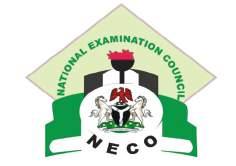
tor in the country.
Today, we have a situation in which graduates of many of our tertiary institutions are barely literate. Even the so-called literate ones among them are uncreative and unproductive. The corporate labour market shuns them. Therefore, it is only natural to do more screening to ensure that the candidates that will be presented to our tertiary institutions are fit and worthy. It is sad that, rather than reading their books and preparing adequately for exams, the first option many students at various levels look for is the opportunity to cheat. It is even more disheartening to know that some parents connive with school authorities to perpetrate this social malady.
We must precipitate a return to the days when academic excellence and hard work were rewarded just as sloth and mediocrity were punished
We commend the action of NECO as we urge their authorities to sanitise the process through which candidates are graded. But we must admit that this is a widespread institutional problem despite the Examination malpractice Act, 1999 which prescribes stringent punishment for the crime. Weak oversight and societal pressure have been identified as some of the challenges. While serious nations are seeing higher education standards as part of the heated contest for development and leading edge in every discipline, Nigerian authorities are not paying enough attention.
For years, a major proof of the downward slide in the education sector in Nigeria is the growing cases of examination malpractices. What the NECO report reveals is that the vexatious issue, rather than abate, has been on a steady rise. This has become a cause of grave concern considering the destructive effects on the education sec-
T H I S D AY
EDITOR SHAKA MOMODU
DEPUTY EDITOR WALE OLALEYE
MANAGING DIRECTOR ENIOLA BELLO
DEPUTY MANAGING DIRECTOR ISRAEL IWEGBU
CHAIRMAN EDITORIAL BOARD OLUSEGUN ADENIYI
EDITOR NATION’S CAPITAL IYOBOSA UWUGIAREN THE OMBUDSMAN KAYODE KOMOLAFE

EDITOR-IN-CHIEF/CHAIRMAN NDUKA OBAIGBENA
GROUP EXECUTIVE DIRECTORS ENIOLA BELLO, KAYODE KOMOLAFE, ISRAEL IWEGBU
DIVISIONAL DIRECTORS SHAKA MOMODU, PETER IWEGBU, ANTHONY OGEDENGBE
DEPUTY DIVISIONAL DIRECTOR OJOGUN VICTOR DANBOYI
SNR. ASSOCIATE DIRECTOR ERIC OJEH
ASSOCIATE DIRECTOR PATRICK EIMIUHI
CONTROLLERS ABIMBOLA TAIWO, UCHENNA DIBIAGWU, NDUKA MOSERI
DIRECTOR, PRINTING PRODUCTION CHUKS ONWUDINJO TO SEND EMAIL: first name.surname@thisdaylive.com
Letters to the Editor
Since examination malpractices sometimes involve bribery, it is part of the general corruption the country is trying to uproot. But considering its danger to the quality of our human capital and by extension, our national image, there is an urgent need for a thorough overhaul of our education system to curtail this malaise. It is a national shame that requires the involvement of all stakeholders to eradicate. We must precipitate a return to the days when academic excellence and hard work were rewarded just as sloth and mediocrity were punished.
A thorough overhaul of our education system should be initiated and implemented urgently to curtail this malaise. This should include addressing the problem of inadequate funding, poor teaching quality, and related issues. In addition, anti-malpractice measures should be enforced while increased surveillance, stricter penalties should be imposed. The legislature needs to update the laws with severe sanctions to act as a deterrent to students, teachers, institutions and parents alike.
We must also admit that examination malpractices are just symptoms of the general decay in the educational sector that must be addressed by all stakeholders. The re-introduction of reading and library classes as compulsory components in primary and secondary schools will help to stimulate and inculcate the reading culture in students.
Letters in response to specific publications in THISDAY should be brief (150-300 words) and straight to the point. Interested readers may send such letters along with their contact details to opinion@thisdaylive.com. We also welcome comments and opinions on topical local, national and international issues provided they are well-written and should also not be longer than (750- 1000 words). They should be sent to opinion@thisdaylive. com along with photograph, email address and phone numbers of the writer.
ICPC AND THE WAR AGAINST CORRUPTION
Corruption in Nigeria is not merely a challenge; it is an institution. It infiltrates politics, administration, business, and even every day transactions, weakening the moral and structural foundation of society. To tackle this menace, Nigeria has created several anti-graft agencies, among which the Independent Corrupt Practices and Other Related Offences Commission (ICPC) stands out. Established in 2000, ICPC was designed to prevent, investigate, and prosecute corruption-related offences. Yet, more than two decades later, the jury is still out on whether ICPC has been effective in dismantling corruption or has simply become another cog in Nigeria’s underperforming governance machinery.
Unlike the EFCC, which primarily focuses on financial crimes, ICPC’s mandate is broader. It is tasked with investigating bribery, abuse of office, and all manners of corrupt practices in public institutions. In addition, the commission is mandated to educate Nigerians on corruption’s dangers and to promote integrity in public life. In principle, this dual focus on enforcement and prevention should have made ICPC a game-changer. But in reality, the commission has often been overshadowed by EFCC, struggling to assert its relevance in the crowded anti-corruption landscape. One of the commission’s major strengths lies in its preventive approach. Through systems studies and public en-
lightenment campaigns, ICPC has attempted to identify loopholes in ministries, departments, and agencies (MDAs) that enable corruption. For example, its annual reports often highlight how poor record-keeping, weak procurement processes, and opaque recruitment practices fuel corrupt behavior. By addressing these systemic issues, ICPC recognizes that corruption is not only about individuals but about flawed institutions. Unfortunately, the preventive approach does not grab headlines like dramatic arrests, which explains why ICPC remains less visible to the public.
Still, ICPC faces serious limitations. A fundamental challenge is the lack of polit-
ical will to support its work. Corruption in Nigeria is deeply entrenched at the highest levels of government, and anti-graft agencies are often pressured not to touch politically exposed persons. While ICPC has recorded convictions, most involved low- to mid-level officials. Rarely do we see powerful politicians or high-ranking bureaucrats face the full weight of ICPC prosecutions. This selective enforcement fuels the perception that Nigeria’s anti-corruption war is toothless, and worse still, designed only to target the powerless.
Rachael Emmanuel Durkwa, Dept of Mass Communication, University of Maiduguri
Acting Group Politics Editor DEJI ELUMOYE
Email: deji.elumoye@thisdaylive.com
08033025611 sms only
Ladoja: From Active Politicking to Royal Stool of Ibadanland
Kemi olaitan chronicles the controversies and eventual triumph of a former Senator and former governor of Oyo State, Rasidi adewolu Ladoja as he wears the crown as 44th Olubadan of Ibadanland on Friday.
As a former governor of Oyo State and former Senator representing Oyo South Senatorial district during the short-lived third republic, Oba Rasidi Ladoja, will on Friday, September 26, 2025 make history in Ibadan, the state capital, when he will be crowned the 44th Olubadan of Ibadanland, fulfilling what he has often described as his lifelong desire.
A man of many parts, the coronation of the politician, businessman and statesman which is expected to be attended by prominent Nigerians within and outside the country to be led by President Bola Tinubu, will mark the culmination of a traditional journey that has spanned over three decades.
The stool of Olubadan which is the supreme leadership position in Ibadan is founded in the 19th century and characterized by a unique merit-based rotational succession system rather than hereditary rule, which alternates between the civil (Otun) and military (Balogun) chieftaincy lines.
This system ensures experienced, seasoned leaders from any social class ascend through the chieftaincy ladder to the Olubadan title, symbolizing Ibadan’s cultural unity, continuity, and rich traditions as the paramount ruler.
What is important however is that when an Olubadan dies, a vacancy is filled by the most senior chief from the next line in the rotational order and by tradition Ladoja being the most senior chief in the Otun line is naturally expected to succeed the late Olubadan, Oba Owolabi Akinloye Olakulehin, who died on July 7, 2025 at age 90.
Thus after the statutory 21-day mourning of the departed Olubadan, the Olubadan-inCouncil (the Kingmakers) sat at the Olubadan Palace, and without much ado on August 4, nominated the former governor as the Olubadan-designate for appointment by Governor Seyi Makinde.
Ladoja who can be described as a proverbial cat with nine lives considering the trajectory of his political and traditional experiences has weathered many storms in his journey of life. On the traditional space, the first controversy he faced reared its head during the administration of late Governor Abiola Ajimobi who elevated members of the Olubadan-in-Council to monarchs with crown an action which was kicked against by the then Olubadan, Oba Saliu Adetunji and the Olubadan-designate who was then as Osi Olubadan of Ibadanland who took the late governor to court.
However, the controversy was to continue under the administration of the incumbent Governor Seyi Makinde, who despite serving as trouble-shooter during the imbroglio with Ajimobi reinvented the same law and re-crowned the monarchs. Ladoja, now a lone voice with the death of Oba Adetunji, stood away again.
While speaking on the controversy, the former governor said, “I only want to adorn one crown and that is the Olubadan crown. My journey on the Olubadan line is not about politics. It is a matter of tradition, identity, and service.”
Ladoja maintained that the chieftaincy system of the ancient city must not be politicised or commercialised. “Ibadan does not need multiple kings,” he noted, insisting that the hierarchical order that allows a Mogaji to one day become Olubadan is one of the city’s most democratic and egalitarian legacies.
Makinde was to re-crown the monarchs on July 7, 2023, claiming that the then Olubadanin-Council headed by Oba Lekan Balogun had recommended the crowning and that his only duty was to present them with certificates as the governor.
The state government at the coronation of the late 43rd Olubadan, Oba Owolabi Olakulehin on July 12, 2024, was to publish a gazette of the new law, mandating it for all Ibadan High Chiefs to accept Obaship before their eventual
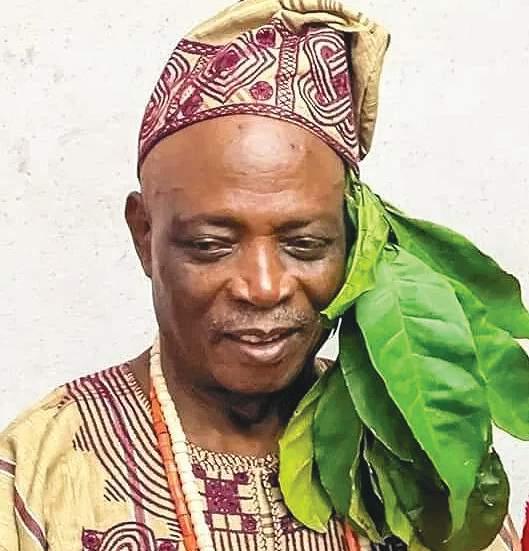
promotion.
Indeed, Section 4 of the amendment, titled “New Olubadan Chieftaincy Declaration,” replaced “the most Senior (High) Chief in that Line” with “the most Senior Beaded Crown Oba in that Line.”
But sensing the danger ahead, Ibadan elders rose to the occasion by meeting with Ladoja and prevailed on him to take the beaded crown. Oba Ladoja while announcing his readiness to accept the beaded crown at a radio programme in Ibadan in August 2024, said various Ibadan indigenes and non-indigenes had pressured him to accept the beaded crown to facilitate his ascension to the throne when the time comes.
He said, “By the grace of God, I will become Olubadan. God has been merciful to me. My blood pressure has been stable. Anyone God destined to become Olubadan will become Olubadan. No matter the obstacles placed in their way. I’m ready to accept Ibadan’s ceremonial beaded crown if it’s the wish of God and the good people of Ibadanland. Only God knows who
becomes Olubadan. I know by the special grace of God, I will become Olubadan.”
The late Oba Olakulehin on August 12, 2024, in his first official duty after his coronation, crowned Senator Ladoja as an Ibadan Oba thus paving the way for him to be nominated as the next Olubadan of Ibadanland.
On the political landscape, Ladoja was elected to the Nigerian Senate in 1993 on the platform of the Social Democratic Party (SDP) during the short-lived third republic. However in the present political dispensation, he was elected governor of Oyo State in April 2003 on the platform of the Peoples Democratic Party (PDP), defeating incumbent Governor Lam Adesina and took office on May 29, 2003, with the backing of a PDP power broker in the state and an Ibadan High Chief, Alhaji Lamidi Adedibu.
However by August 2004, Ladoja and the strongman of Ibadan politics were locked in a fierce struggle over the political control of Oyo State and on January 12, 2006, Ladoja was impeached by the state House of Assembly and forced out of office.
His deputy, Adebayo Alao-Akala (now late), was sworn in as the new governor. But on November 1, 2006, the Appeal Court in Ibadan declared the impeachment null and illegal, and the Supreme Court upheld the
Although ladoja who is ascending the throne of his forefathers is expected to be apolitical, political observers however believe the former governor and former senator representing oyo south senatorial district in the aborted third republic would still command a great influence in the political firmament of the state given his past roles in shaping the political direction of the state.
decision on December 11, 2006.
With his reinstatement, Ladoja officially resumed office on December 12, 2006. but however, failed to win the PDP nomination for a second term and backed the candidate of the All Nigeria Peoples Party in the 2007 election, Senator Abiola Ajimobi, who eventually lost to Alao-Akala.
After the 2007 election, his attempts to return to the Agodi Government House, Ibadan were unsuccessful as he was the governorship candidate for Accord party in the 2011 and 2015 elections. In 2017, Oba Ladoja merged Accord into the PDP and later moved to the new coalition party, the African Democratic Congress (ADC) in 2018 and again left for the Zenith Labour Party (ZLP) in December 2018.
Immediately after the Presidential and National Assembly elections in 2019, Ladoja led the coalition that collapsed the structure of Sharafadeen Alli, and Femi Lanlehin, among others, for eventual winner, Governor Seyi Makinde of the PDP who is presently serving his second term.
Although Ladoja who is ascending the throne of his forefathers is expected to be apolitical, political observers however believe the former governor and former Senator representing Oyo South Senatorial district in the aborted third republic would still command a great influence in the political firmament of the state given his past roles in shaping the political direction of the state.
Governor Makinde speaking at the 80th birthday celebration of Ladoja last year, could not but acknowledged him as a political leader in the state.
His words, “My political trajectory cannot be complete without mentioning his name. Daddy was the one who midwifed the process that led to my emergence as governor in 2019. He played critical roles. Today is a special day for one of the leading lights in Ibadanland. So, we thank God. A lot of people may not know this, but I feel that whenever I have the opportunity, I will say it openly. You still have a lot of roles to play, Sir. So, we will continue to look forward to your leadership.”
Indeed, what is not in doubt is that Ibadanland is expected to enjoy greater prominence and development in all spheres of life as the former governor now monarch combines his political and cultural acumen to bear on the traditional administration of the city by bringing innovations into royal governance.
This could be evidenced in his first public pre-coronation statement, where he charged his lieutenants (Baales and Mogajis) to prioritize attention to security in their domain as he is ready to attract investors to the ancient city and other parts of the state, warning that he would not allow any form of security breaches that could discourage investors.
According to him: “You’ll be held responsible for security breaches. You are the Chief Security Officers in your domains, and as such, you will be held responsible for any security lapse in your areas. You should have the knowledge of the happenings in your environment, and if you have any security challenge beyond your control, contact us; we will rise to the occasion and assist you immediately.
“A Mogaji or Chief in Ibadan is not just a title but a responsibility. We are looking at a situation where Mogajis and chiefs would not abandon their ancestral homes. By doing so, you can positively impact the younger generation seeking mentorship. You lived in this same society and became what God wanted you to be. Please, let us encourage the people at the grassroots by staying with them and sharing with them.”
However time would tell how Ladoja will prove his mettle as a first class monarch presiding over the largest city South of the Sahara as the expectations of him by the people of the city are enormous.







FEaturEs
Katsina’s Bold Step Using Edtech to Bridge Learning Gaps
Dr. Kabir Magaji Gafiya
When Governor Dikko Umaru Radda took the oath of office in May 2023, he made education one of the major pillars of his administration. At his swearing-in and at subsequent public events, including the 9th to 13th combined convocation of Umaru Musa Yar’adua University Katsina, he reaffirmed that his government is committed to restoring the state’s glorious days as both an education vanguard and an agricultural hub. For him, education is not just another sectoral priority; it is the bedrock of Katsina’s future prosperity.
As we say in the North, “Ilimi ginshikin rayuwa ne” — education is the pillar of life. This saying captures the vision of the present administration: to build a solid foundation for the future by strengthening basic education today. Since assuming office, the government has rolled out a series of initiatives designed to modernise and expand access to quality learning. Recently, the state procured 20,000 tablets preloaded with curriculum centric teaching materials, with training scheduled for 18,000 teachers to ensure they can deliver lessons more effectively. Thousands of pupils have also benefited from the distribution of instructional materials, while teacher recruitment, promotion, and training programmes have been scaled up to raise standards across classrooms. School infrastructure is also being improved through new buildings and renovations, creating a more conducive environment for learning. These steps reflect a deliberate strategy to give both teachers and learners the tools they need to succeed.
It is against this backdrop that Katsina entered into a partnership with EIDU, a global EdTech organisation whose work aligns perfectly with the governor’s vision to improve literacy and numeracy among our children.
EIDU’s platform is specifically designed to strengthen literacy and numeracy, which are the foundations of lifelong learning. Teachers are given smartphones preloaded with curriculum-aligned lesson guides, freeing them from the burden of writing lesson notes by hand. Pupils use the same devices to access play-based, interactive learning tasks that adapt to their pace and ability.
What makes EIDU unique is its data-driven approach. The system uses AI to track every child’s progress in real time, giving teachers insight into learning gaps, while headteachers and quality assurance officers can monitor performance across schools.
But apart from the digital strength of the programme, teaching aids
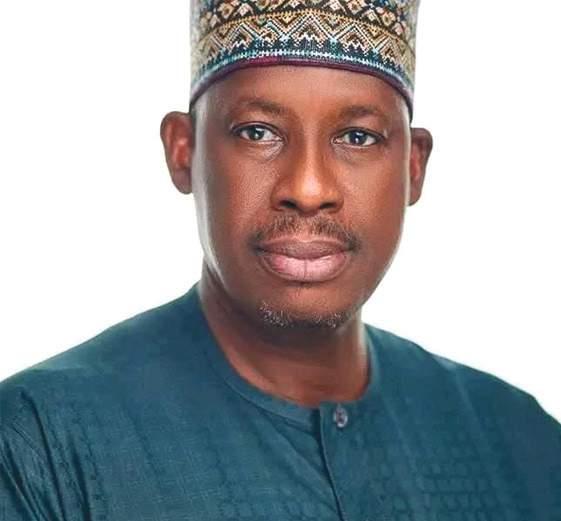
are provided in classrooms as the new pedagogy is used to improve literacy and numeracy one child at a time. For the first time, administrators have access to accurate, immediate data to guide interventions, ensuring that solutions are not only well intentioned but also evidence based.
So far, the results have been striking. In EIDU-supported schools, children are more engaged, arriving early to class and participating actively in lessons. For many, it is their first exposure to smartphones, which makes learning both exciting and empowering.
Parents, too, are noticing the change. School-Based Management Committees, especially mothers’ associations,
have approached SUBEB to request that EIDU be expanded to neighbouring schools, convinced by their children’s enthusiasm and progress.
EIDU complements the state’s wider digital education agenda. While the platform is currently active in selected schools across two local governments, its focus on foundational skills makes it an essential part of Katsina’s strategy. Scaling it up to reach more teachers and pupils will only strengthen the gains already made. If expanded to more teachers, the impact would be transformative.
Already, learning outcomes in EIDU-supported schools are stronger than in traditional classrooms, offering hope that learning poverty — which affects
As we look ahead, we are reminded that by embracing technology to bridge learning gaps, the state is showing that quality education can be delivered consistently and at scale. For us, tackling learning poverty is not just about policy; it is about fulfilling a duty to our children and laying the foundation for a prosperous future
more than 70 percent of children in basic education nationwide, can be reversed.
What stands out most in this story is the role of leadership. When the idea of EIDU was presented to Governor Radda, he approved it without hesitation, driven by his passion for education and his determination to secure the future of Katsina’s children. Others can learn from this example: when political will meets evidence-based solutions, real progress follows.
As we look ahead, we are reminded that by embracing technology to bridge learning gaps, the state is showing that quality education can be delivered consistently and at scale. For us, tackling learning poverty is not just about policy; it is about fulfilling a duty to our children and laying the foundation for a prosperous future.
And at the heart of it all is the commitment of Governor Dikko Radda, whose vision is ensuring that the light of education shines brighter in every classroom across Katsina State.
•Dr. Magaji Gafiya is the Executive Chairman, Katsina State Universal Basic Education Board
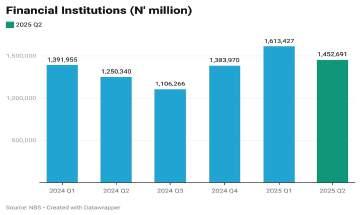
Kayode Tokede
Following the monetary tightening measures by the Central Bank of Nigeria (CBN), the financial sector contribution to real Gross Domestic Product (GDP) declined to N1.65 trillion closed in the second quarter (Q2) of 2025, about 7.1 per cent quarter-on-quarter (QoQ) decline from N1.78 trillion reported in first quarter of 2025.
Analysts attribute the slowdown primarily to the CBN’s intensification
of monetary tightening measures, which slowed banks’ creation of risky assets.
The financial institutions have embarked recapitalisation exercises in line with the CBN mandate for fresh capital injections to support in real sector developments and advancement in digitalisation of payment services.
Specifically, the CBN recapitalisation program aims to strengthen the financial system, enabling
banks to support long-term projects and economic growth. `The exercise has attracted more foreign investors and inflows that have enhanced banks’ capital base.
Also, the CBN initiative aims to position Nigerian banks to finance largescale infrastructure and industrial development, contributing to the country’s $1 trillion economy goal by 2031.
The apex bank has continued to tighten liquidity in its request
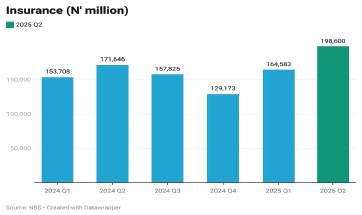
to strengthen Naira at the foreign exchange market and tackle inflation.
The National Bureau of Statistics (NBS) in a report, “Nigerian Gross Domestic Product Report,” revealed that both the financial institution and insurance sectors contribution stood at N1.42 trillion in Q2 2024, about 16.13 per cent Year-on-Year (YoY) increase when compared to N1.65 trillion in Q2 2025.
A breakdown revealed that financial institutions in Q2 2025 recorded N1.45
trillion GDP contribution by value, representing a 9.96 per cent QoQ from 1.61 trillion in Q1 2025, while the insurance sector recorded N198.66 billion in Q2 2025, up by 20.7 per cent QoQ when compared to N164.58 billion in Q1 2025.
The report by NBS stated the finance and insurance sector consists of the two subsectors, financial institutions, and Insurance, in which the former accounted for 87.97 per cent and the
latter 12.03 per cent of the sector respectively in real terms in Q2 2025. “The sector grew at 63.66per cent in nominal terms (year-on-year), with the growth rate of Financial Institutions at 65.24per cent and 53.00per cent growth rate recorded for Insurance. The overall rate was higher than Q2 2024 by 30.96percentage points, and higher by 42.6percentage points than the preceding quarter.
Nume Ekeghe
Nigeria’s external reserves rose to $42.03 billion on September 19, 2025, the highest level in six years, according to latest figures from the Central Bank of Nigeria (CBN).
The last time reserves touched this level was in September 22, 2019, when they stood at $42.05 billion.
The latest balance
represents a steady accretion of $610.8 million or 1.47 per cent from the start of September. It also reflects 13 consecutive daily gains across 14 reporting days, underscoring one of the most consistent upward streaks in recent years.
Compared to December 2024, reserves are stronger by $1.15 billion or 2.83 per cent. The recovery is more pronounced against the
July 3 low of $37.18 billion, with the stock rebounding by $4.85 billion within just over two months.
Earlier this month, reserves crossed $41.66 billion as of September 11, their highest level in almost four years at the time, following a six-week rally of uninterrupted daily accretions. On a year-on-year basis, the balance then stood 13 per cent higher than the
$36.81 billion recorded on September 11, 2024. At the start of the year, reserves opened at $40.88 billion on January 2, setting a cautious tone amid sustained foreign exchange demand and modest oil inflows. By early July, reserves had slipped to $37.18 billion, their lowest level this year, reflecting pressure from outflows and the lag effect of soft oil receipts.
The first half of the year was thus characterised by depletion, as the Central Bank of Nigeria (CBN) struggled to balance liquidity management with stabilising the naira. However, from July onward, the trajectory shifted decisively.
Between July 3 and mid-September, reserves surged by almost $4.85 billion, a recovery of more than 13 per cent
from the year’s trough. By September 19, reserves had reached $42.03 billion, the highest in six years and surpassing all earlier readings in 2025. This rebound was driven by improved oil receipts, stronger portfolio inflows, and tighter monetary conditions that curbed speculative activity in the FX market.
Wema Bank Surpasses CBN Recapitalisation: Testament to Resilience, Impact, Innovation
Kayode Tokede narrates how Wema Bank met the N200 billion capital requirement for national banks ahead of the March 2026 deadline
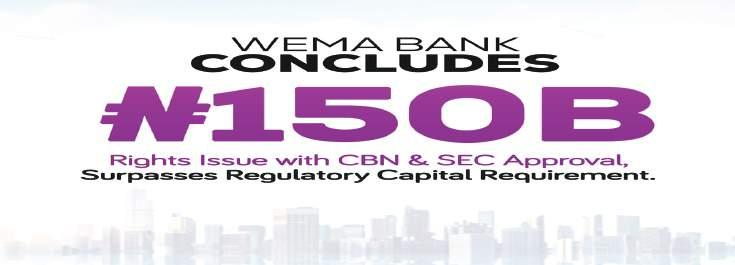
The Central Bank of Nigeria (CBN) recapitalisation announcement marked yet another significant moment in the journey of banking in Nigeria. For some banks, it meant the beginning of the end. For others, it meant a fresh start. For a select few, recapitalisation came as a welcome challenge, an opportunity to yet again demonstrate resilience and pull their weight in strengthening the Nigerian banking industry.
While some banks looked into mergers and acquisitions, others took to the stock market in a quest to expand their shareholder base and by extension, capital. One commercial bank with national authorisation pulled a bold move, proceeding to raise the needed capital from its existing shareholders--a move that not only reflected its confidence in its shareholders but more importantly, the trust that these shareholders have in the Bank’s capacity for long term financial and non-financial success. This bank was Wema Bank, reputed to be Nigeria’s oldest indigenous bank, most innovative and pioneer of Africa’s first fully digital bank, ALAT.
Wema Bank’s story is no news in the scope of resilient institutions, an 80-yearold bank that started off under colonial Nigeria and rose to the top of Africa’s banking landscape at a moment where it seemed almost impossible. 3 major things defined Wema Bank’s journey: resilience, impact and innovation. Through every challenge over 8 decades, Wema Bank emerged victorious, continuing to impact Nigerian lives and businesses positively. By the 2000s, the Bank reinvented itself with a renewed drive for innovation and customer centricity, and thus began its rise to the top.
Today, Wema Bank has grown beyond banking into a systematically important institution whose legacy extends deeply across the lives and businesses of millions. The more the Bank has innovated, the better its service has gotten and the deeper the trust it has earned from its various
stakeholders; customers, shareholders, employees, partners and regulators alike. It is not surprising that the Bank continues to do remarkable numbers year in year out.
Anyone with particular interest in the stock market would easily attest to Wema Bank’s stocks being one of the best performing and highly sought after stocks in the market, a feat that could easily be attributed to the Bank’s steady and exponential growth over the years. Just recently, Nigerian financial media and data intelligence company, Nairametrics, reported that Wema Bank’s shares have soared 139.56% year-to-date as of September 12, 2025, outperforming both the NGX All-Share Index (+36.55%) and the NGX Banking Index (+40%)—a rally that builds on a 171% jump in 2024 and a 47% gain in 2023, cementing the Bank’s reputation as the banking sector’s star performer.
It goes without saying, a public offer would have proven tremendously successful. However, the Bank took the unconventional route with the 2024 CBN recapitalisation exercise, raising its actual qualifying capital through a series of two Rights Issues—the first with a target of N40 billion Naira and the second with a target of N150 billion; both of which proved successful, unsurprisingly yet admirably. So how did Wema Bank meet the N200 billion capital requirement for national banks way ahead of the March 2026 deadline?
Let’s take a deep dive.
Wema Bank, in its true nature as a reputed forward-thinking institution, had executed a N40 billion Rights Issue in December 2023, at least 3 months ahead of March 2024 when the Central Bank of Nigeria (CBN) announced the new recapitalisation requirement for banks. Banks with international authorisation were to raise a minimum of N500 billion in fresh capital by March 2026, national banks like Wema were given a N200 billion target and regional banks, a
N50 billion target. Wema Bank marked its first step towards N200 billion in the same year, 2024, when its N40 billion Rights Issue received approvals from both the Central Bank of Nigeria (CBN) and the Securities and Exchange Commission (SEC). With N27 billion already in the bag, Wema Bank’s capital base stood at N67 billion following the approval of the first tranche of its capital raise plans.
The Bank’s capital raise efforts evidently did not stop it from pursuing other financial goals within the year 2024, as the Bank closed out the year with an all-time-high performance marked by exceptional numbers across key financial metrics including the achievement of N102.51 billion Profit Before Tax (PBT), an astounding 135.16% increase from 2023’s N43.59 billion. The Bank’s Gross Earnings grew by 91.51% from N225.75 billion in FY 2023 to N432.34 billion in FY 2024, Profit After Tax (PAT) by 140.13% to N86.29 billion from N35.93 billion reported in FY 2023 and Total Deposits by 35.65% to N2,523.82 billion in FY 2024 from N1,860.57 billion in FY 2023.
Total Assets hit the N3 trillion mark, standing at N3,585.05 billion in FY 2024, a 60.04% increase from 2023’s N2,240.06billion—a remarkable feat considering the Bank surpassed the N1 trillion mark barely 5 years ago, in Q3 2021.
With numbers skyrocketing and shareholder confidence unparalleled, Wema Bank announced the second tranche of its capital raise efforts, set to be executed in two legs: an estimated N150 billion Rights Issue and a N50 billion Private Placement. On April 1st 2025, Wema Bank opened the N150 billion Rights Issue, closing out in May 2025. This Rights Issue was met with eager acceptance by the Bank’s teeming shareholder base, resulting in the Rights Issue being oversubscribed. With the capital raise now approved by both the CBN and the SEC, Wema Bank’s total qualifying
capital currently stands at N217 billion naira, well above the N200 billion target stipulated for national banks. Ergo, Wema Bank successfully surpassed the N200 billion target roughly 6 months ahead of the March 31st, 2026 deadline. Surprisingly? Many would say not.
Wema Bank’s growth rate has been unrivalled, especially within the past decade. The Bank’s refocus on innovation and bullish drive for unmatched excellence has ensured that every target remains not only attained but surpassed, and this recapitalisation exercise was no different. In 2023, the Bank set its PBT target at N30 billion and attained N43.59 billion, over 45% above target. In 2024, the Bank did the unthinkable raising the stakes by placing its PBT target at N100 billion, almost three times the 2023 target. The Bank yet again met this unbelievable target, exceeding it by N2.51 billion. Now, the Bank has yet again reinforced its reputation for surpassing targets and exceeding expectations by surpassing the CBN’s N200 billion target way ahead of the deadline—a move that not only reinforces shareholder confidence but more so, cements Wema Bank’s position as a force to be reckoned with in the African financial services industry.
The story of an 80-year-old indigenous Nigerian institution changing the narrative and proving that Nigerian-owned businesses can stand the test of time, continues to reverberate across the globe, putting Nigeria on the map as the world continues to evolve rapidly. The 80th anniversary celebration of Wema Bank brought to light the Bank’s tremendous legacy of impact on lives, businesses, institutions and industries, and brought to the spotlight the Bank’s positive outlook, extreme profitability and capacity for continued success.
Just this year 2025, three of the world’s most reputable ratings agencies upgraded Wema Bank’s ratings in light of its exceptional performance and growth trends.
Okwuosa: Community Devt Responsibility of Govt and Public-spirited Personalities
Oilserv Group, the company, handling the construction of the $2.8billion Ajaokuta-Kaduna-Kano gas pipeline project, is the promoter of Sir Emeka Okwuosa Foundation (SEOF). In this interview, the Chairperson of SEOF, Chibundu Okwuosa-Nwadei, unveils the impact of this nonprofit organisation that began philanthropic activities across Nigeria in the 1990s. Excerpts:
What inspired the creation of SEOF, and what fundamental needs was it designed to address?
The Sir Emeka Okwuosa Foundation (SEOF) was founded with a vision of creating an Africa where every citizen has access to the resources needed to effect positive change globally. The motivation behind its establishment stemmed from the founder’s deep commitment to addressing systemic challenges in Nigerian communities, particularly in healthcare, education, and socio-economic empowerment.
Initially inspired by charitable acts dating back to the 1990s, the foundation was formally established in 2011 to create sustainable, community-driven development. It aims to build self-sustaining communities, equip individuals for self-actualization, and foster collaborative relationships for transformative impact.
Could you highlight the key humanitarian services the Foundation has delivered since its inception?
Since its inception, SEOF has made monumental strides in uplifting lives through multi-sectoral interventions. The Foundation’s initiatives have grown steadily, touching countless lives across Nigeria. In 2021, we established a state-of-the-art hospital, Dame Irene Okwuosa Memorial Hospital (DIOMH), with advanced cardiothoracic facilities. Over the past three years, in partnership with Vincent Obioma Ohaju Memorial Foundation (VOOM), we conducted seven biannual open-heart surgery missions. Launched in May 2022 with just eight beneficiaries, the Foundation’s medical missions have flourished.
A total of 145 life-saving surgeries has been performed, including 90 Adult OpenHeart Surgeries, 53 Pediatric Open-Heart Surgeries, 22 Pediatric Interventional Catheterizations, 39 Adult Interventional Catheterisations; and a Vascular Surgery mission in October 2024. These surgeries were conducted either at a subsidized cost or free of charge. Also initiated in May 2022, starting with 258 participants, our biannual community health fair expanded to benefit 4,545 individuals by May 2025. The services include: Free treatment for tropical ailments, infections, allergies, and vitamin deficiencies; Screening and management of malaria, TB, HIV/AIDS, hypertension, and diabetes; Optometry services, visual tests, and medications for eye-related disorders
The SEOF has donated N45 million worth of medications to over 15 health facilities and teaching hospitals across Delta, Anambra, Imo, and Enugu States, strengthening medical response and public health infrastructure. The SEOF recognizes education as a catalyst for progress and personal empowerment. The Dame Irene Okwuosa Memorial Convent (DIOMeCO) was established in 2019 in Oraifite, Anambra State and handed over to the Anglican Diocese of Nnewi. This state-of-the-art all-girls secondary school offers modern
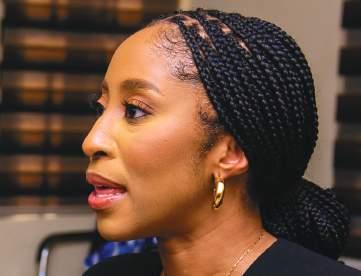
facilities and can accommodate up to 600 students. It continues to empower young girls through quality education and values-based learning. Over the last 10 years, the Foundation has awarded scholarships to over 1,500 students. In 2023, SEOF launched the Fabian and Patricia Okonkwo Scholarship Scheme (FAPO) and has awarded scholarships worth ₦12 million to 36 exceptional students under the scheme.
The SEOF organizes awareness events that introduce young girls to cutting-edge career paths in technology, engineering, and innovation, expanding their horizons and aspirations. The SEOF drives financial independence and fosters community growth. Through entrepreneurship support, SEOF provides mini-grants and equipment—including Hilux trucks and motorcycles—to individuals and community organizations. For over a decade, the Foundation has distributed over 10,000 bags of rice and groundnut oil annually to families across Anambra State, providing nutritional support during festive and challenging periods.
Can you provide insight into the healthcare interventions driven by the Foundation?
The Foundation delivers critical healthcare services through DIOMH. The hospital provides affordable, high-quality care in cardiothoracic and cardiovascular surgery, interventional cardiology and vascular surgery; diagnostics (CT, X-ray, 4D ultrasound, lab services); urology, orthopaedics, neurology, nephrology, OB-GYN, paediatrics; and Intensive Care Unit (ICU) and 24-hour ambulance services.
Patients of all ages, particularly from underserved communities, benefit from these services, which now extend to all six geopolitical zones of Nigeria through outreach programmes, medical
missions, and health fairs. In 2023, SEOF launched a primary health centre built from repurposed shipping containers.
It was designed by Texas A&M University students, donated by VOOM Foundation and adapted by our Nigerian engineers for rural healthcare delivery. Our ongoing partnership with the VOOM Foundation has provided free and subsidised treatment to over 5,000 Nigerians.
DIOMH is equipped with Cath Lab; 128-slice CT scanner; state-of-the-art, 10-bed ICU with cardiovascular and ventilatory support; medical gas plant; blood fractionation machines and other laboratory equipment; and a 24-hour critical care ambulance service that is integrated with the Anambra State emergency response service.
It is common for humanitarian foundations to partner with international organisations to deepen their impact. Does SEOF currently maintain any such foreign or local partnerships?
Yes, the SEOF actively fosters both international and local partnerships to expand its humanitarian reach and deepen impact across Nigeria. SEOF’s flagship partnership is with the VOOM Foundation, a Texas-based nonprofit organization that is renowned for global medical missions. Through this alliance, volunteer cardiac surgeons and specialised support teams are deployed to Nigeria. The partnership has facilitated dozens of life-saving heart surgeries and interventional procedures. VOOM
contributes to knowledge transfer, training local healthcare personnel in advanced cardiac techniques. The Foundation has received vital backing from United Nigeria Airlines, which has funded transportation for medical teams and high-tech equipment, provided logistical support that enhances the efficiency and reach of SEOF’s medical missions.
In partnership with Child Aid Nigeria, SEOF sponsored a child’s open-heart surgery during its May 2025 medical mission, exemplifying the Foundation’s commitment to vulnerable populations. SEOF partners with Pure Bond Insurance to provide life insurance coverage for staff, Promote long-term security, motivation, and organisational well-being. Foreign partnerships have been instrumental in scaling up and elevating the quality of the SEOF programmes—especially in the areas of healthcare. Through VOOM Foundation, over 100 open-heart surgeries were successfully performed. These efforts also led to the historic launch of interventional cardiology and vascular surgery in South-east Nigeria. How has SEOF performed in the education sector, and what key initiatives have been implemented to support the growth and development of education in the communities you serve?
Well, education remains a core pillar of the SEOF mission. Over the years, SEOF has directly supported the educational development of more than 1,500 students at the secondary school level through its scholarship program, annual prize-giving ceremonies, and the provision of high-quality learning materials. Hundreds more at the primary and university levels have also benefited. DIOMECO provides girls from across Nigeria with access to quality education in a safe, inspiring environment. Facilities include an ICT lab, library, science lab, learning hub, art studio, sports area, and a medical bay. To promote gender equality and inspire future leaders, SEOF also organises career workshops and symposiums, introducing female students to STEM-related fields and professional development opportunities.
PUBLIC NOTICE
CONfIrmaTION Of rELaTIONshIP: I, sUNday ChIdIOgO asIEgBU born on the 23/10/1976, hereby confirm that I am the biological brother of ChINEdU sTEPhEN asIEgBU (male) born on the 16/06/1972, OkwUChUkwU davId asIEgBU (male) born on the 22/12/1979, ONyINyE vICTOrIa asIEgBU (female) born on the 27/08/1984 and ChIsOm gOOdNEss asIEgBU (female) born on the 27/11/1986 That mr davId asIEgBU and mrs. EsThEr NEBEChI asIEgBU are our parents.
General public should please take note of this information. sIgNEd: SUNDAY CHIDIOGO ASIEGBU
At UNGA, Dantsoho Pledges Globally Competitive, Digitally Driven Port System for Nigeria
Eromosele Abiodun
The Managing Director of the Nigerian Ports Authority (NPA), Dr Abubakar Dantsoho, has said the authority is working to build a globally competitive port system that will enhance trade facilitation, attract Foreign Direct Investment (FDI), and boost investor confidence in Nigeria’s economic future.
Dantsoho disclosed this while delivering a paper titled, “Optimising Nigeria’s Port Infrastructure, Enhancing Trade Facilitation and Global Competitiveness,” at the ongoing United Nations GeneralAssembly (UNGA). Dantsoho disclosed to the global audience that the authority would launch the Port Community System (PCS) by the first quarter of 2026.
According to him, “We are building a globally competitive port system that will strengthen trade facilitation, attract Foreign Direct Investment, and boost investor confidence in Nigeria’s economic future. We look forward to continued collaboration to achieve these goals.
“NPA is also implementing a digital, collaborative, and allencompassing platform connecting stakeholders, data, transactions, and initiatives to improve NPA’s digital footprint. This platform (Port Community System) was seen as viable in the first quarter of 2026.”
The NPA boss further stated that all the nation’s seaports’ digital platforms allowed for paperless transactions, which
minimises waste.
He stated that the nation’s seaports efficiency have contributed to a 19.6% growth in non-oil exports in the first half of 2025.
“The NPA is using smart digitalisation to achieve lean and green operations. We’ve deployed a new electronic barrier system at all Lagos Port Complex terminals to improve traffic and control access. This system is integrated with the “Eto Electronic Call-Up System’ (a call-up truck system developed in collaboration with several truck parks) manages truck entry and eases congestion.”
“We are optimising cargo processes by introducing e-Tag verification, Joint boarding apps, electronic send systems, and others to reduce cargo dwell time and turnaround time in our ports. Our digital platforms allow for paperless transactions, which minimise waste.
“The NPA is infusing sustainability into its operations to boost efficiency and long-term viability. We are improving intermodal connectivity to reduce reliance on road transport and lower emissions. We are currently working on automating our Barge, Truck, and Railway applications,” he disclosed.
Speaking on reducing emission, the NPA helmsman, said the authority is spearheading the shore-to-ship emission reduction, starting with the Lekki Port.
“We are improving
intermodal connectivity to reduce reliance on road transport and lower emissions. We are currently working on automating our Barge, Truck, and Railway applications.
“TheAuthority is spearheading the shore-to-ship emission reduction, starting with the Lekki Port. NPA is spearheading the collaborative one-stop shop (OSS) ref hed oil export/local crude payment to enhance seamless approvals and revenue generation for the government,” he added.
He stated further that the authority is dedicated to modernising the nation’s seaport infrastructure and streamlining their services.
“This multi-purpose port in the Lekki Free Zone is a key collaboration between the NPA and other partners. The port’s capability to handle super postPanamax vessels is essential for achieving economies of scale and enhancing the competitiveness of Nigerian exports.
“We have commissioned and dedicated a state-of-the-art fleet of tugboatsandalliedMarineCraftsto service the ever growing operations at the Lekki Deep Seaport, the Dangote Refinery, which is the largest single-train refinery in the world and the Dangote Fertilizer Plant,whichisthelargestgranulated urea fertiliser plant in Africa.”
“The Nigerian Ports Authority is dedicated to modernising our port infrastructure and streamlining our services. We look forward to continued collaboration to achieve these goals,” he stated.
Chioke Calls for Stronger Insurance, Pension Framework
Chairman of Rex Insurance Limited, Mr. Ike Chioke, has called for stronger frameworks for the insurance and pension industries to boost economic growth.
Rex ins.
Chioke, who is also the Group Managing Director of Afrinvest Limited, made the call at the 10th Anniversary Conference of the Nigerian Association of Insurance and Pension Editors in Lagos.
In his paper titled, ‘Strengthening Insurance and Pension Frameworks for a Better Economy’, Chioke emphasised the need to strengthen the frameworks to ensure longterm economic stability and financial inclusion.
Speaking at the event, Chioke, who was represented by Group Deputy Managing Director, Afrinvest Limited, Mr. Victor Ndukauba, said, “Insurance and pensions are twin pillars of financial
that not only protect against risks but also mobilise long-term capital and foster sustainable growth. They are not mere financial products; they are the backbones for a resilient economy.”
“To transform these sectors into engines of economic growth, we must strengthen their frameworks at all levels. Note that immense progress has been made by the insurance and pension sectors of the economy,” he said.
African Stories Take Centre Stage at Omolayole Management Lecture
The AIESEC Alumni Nigeria is set to host the 41st edition of its prestigious Omolayole Management Lecture (OML Series), featuring the internationally acclaimed Kenyan author and cultural strategist, Yvonne Adhiambo Owuor.
The lecture, themed, “Plotlines of Prosperity: African Stories, African Rights & African Returns,” will hold in Victoria Island, Lagos.
This year’s event, which builds on a 40-year legacy of provoking thought leadership
and business discourse in Nigeria, will explore the powerful intersection of narrative, economics, and identity in shaping Africa’s future. Owuor is expected to draw from her profound literary works and strategic advisory role in African creative economies to challenge and inspire business leaders, policymakers, and professionals.
Ahead of the main event, a press briefing was held at the Lagos Chamber of
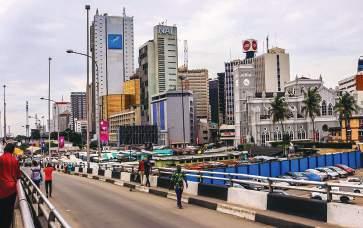
Commerce and Industry (LCCI). Key figures from the organising committee and partner institutions addressed the press, outlining the lecture’s agenda and its significance for fostering a new mindset for transformational leadership in a complex global economy.
“We are thrilled to have Yvonne Adhiambo Owuor, a voice of immense intellectual and cultural significance, headline this year’s lecture,” said Mr. Marcel Mba, President of AIESEC Alumni Nigeria.
GTCO Reports Profit Before Tax of N600.9bn in H1 2025
Kayode Tokede
Guaranty Trust Holding Company Plc (GTCO) has released its audited consolidated and separate financial statements for the half year (H1) period ended June 30, 2025, to the Nigerian Exchange Group (NGX) and
London Stock Exchange (LSE) with a profit before tax of N600.9billion on the back of strong performance on core earning lines of interest income and fee income, which grew y-o-y by 31.5per cent and 33per cent respectively.
The strong core-earning performance doused the impact of the N493.01biillion
fair value gains recognised in H1-2024 which did not recur in H1 2025, thereby narrowing y-o-y dip in PBT to 40per cent.
The Group recorded growth across all its asset lines and continues to maintain a well-structured, de-risked, and diversified balance sheet in all the
jurisdictions wherein it operates a Banking franchise, as well as across its Payments, Pension and Funds Management business verticals. Total assets and shareholders’ funds closed at N16.7trillion and N3.0trillion, respectively.
Capital Adequacy Ratio (CAR) remained very robust
and strong, closing at 36.2per cent. Asset quality also improved as evidenced by IFRS 9 Stage 3 Loans which closed at 3.2per cent at Bank level and 4.5per cent at Group in H1 2025 (Bank -3.5per cent (Group- 5.2per cent in December 2024) and Cost of Risk (COR) improved to 1.7per cent from 4.9per cent
in December 2024. In specific term, the Group’s loan book (net) grew by 20.5per cent from N2.79trillion position in December 2024 to N3.36trillion in June 2025. Similarly, deposit liabilities grew by 16.6per cent from N10.40trillion to N12.13trillion during the same period.
PRICES FOR SECURITIES TRADED ASOF SEPTEMBER/22/25
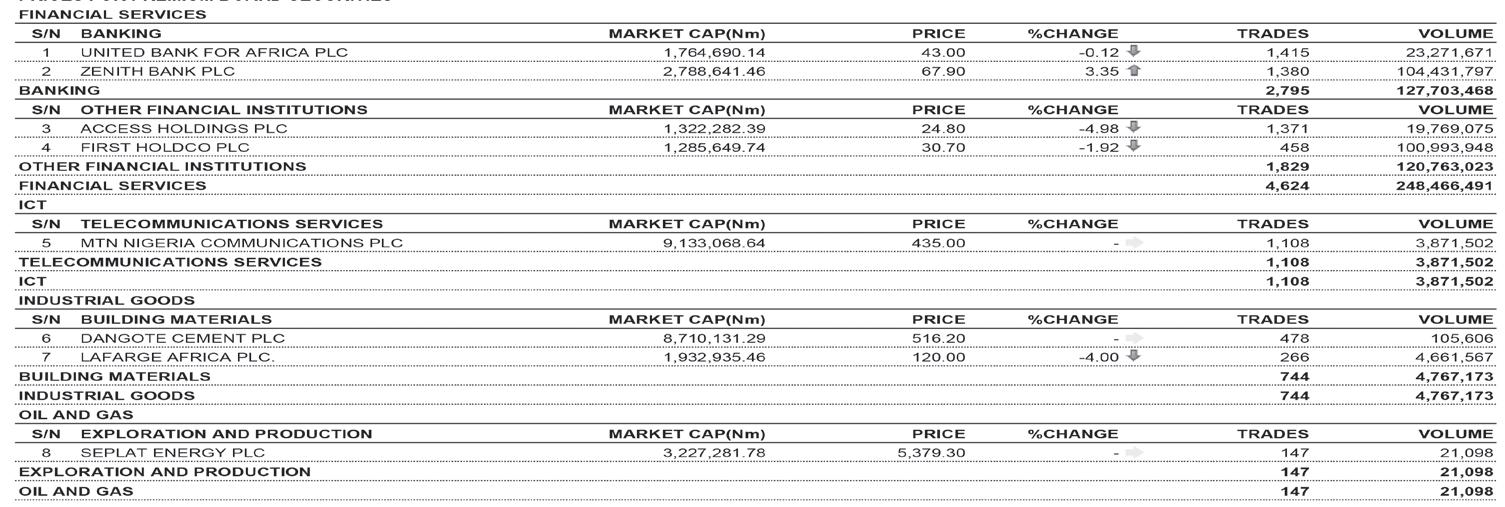
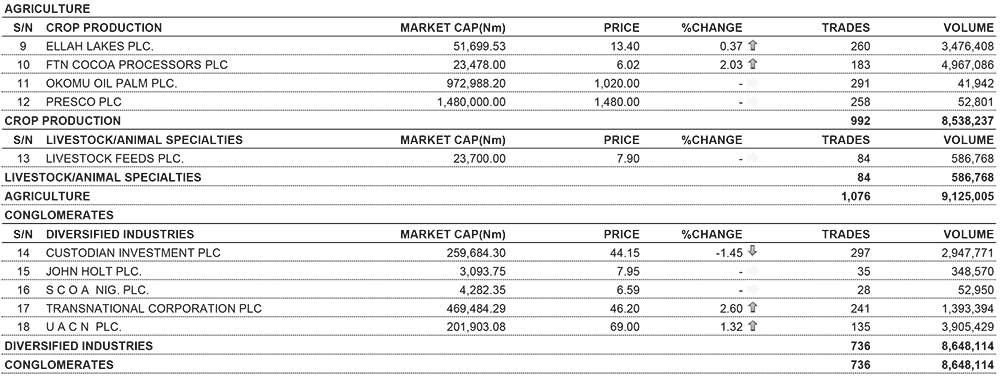

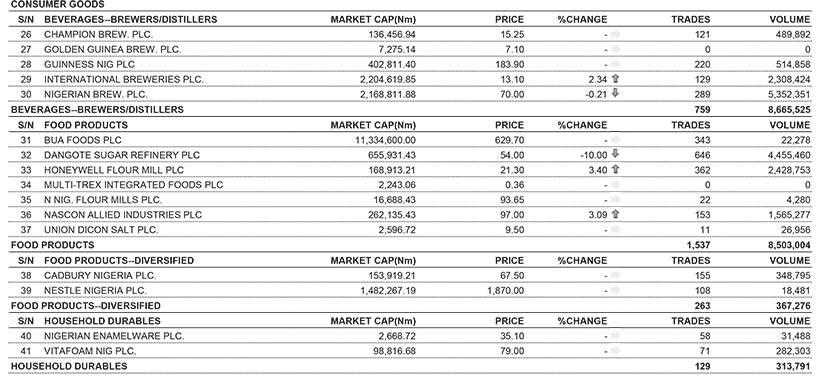

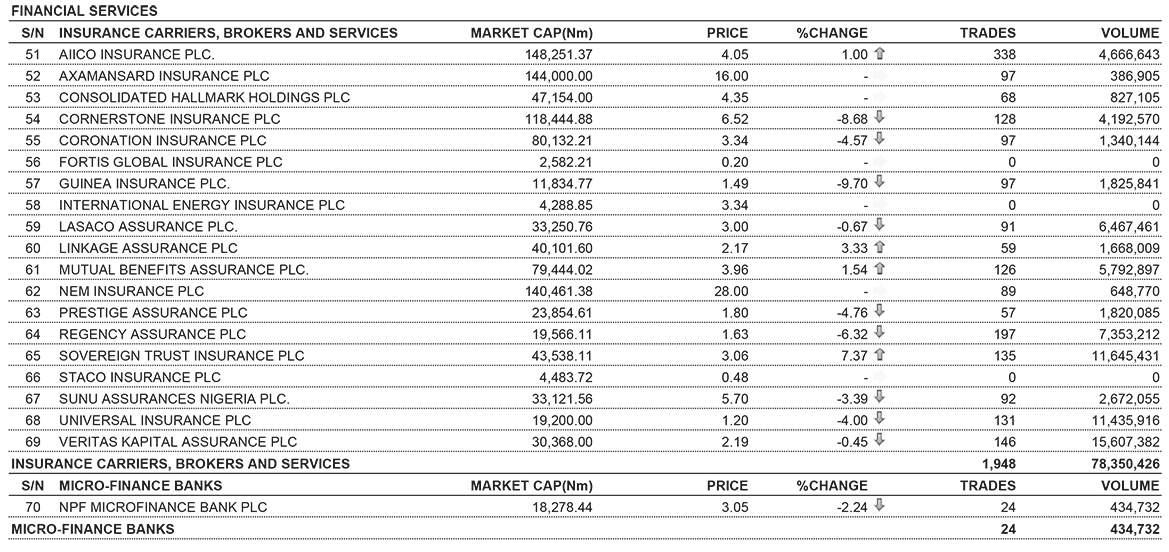

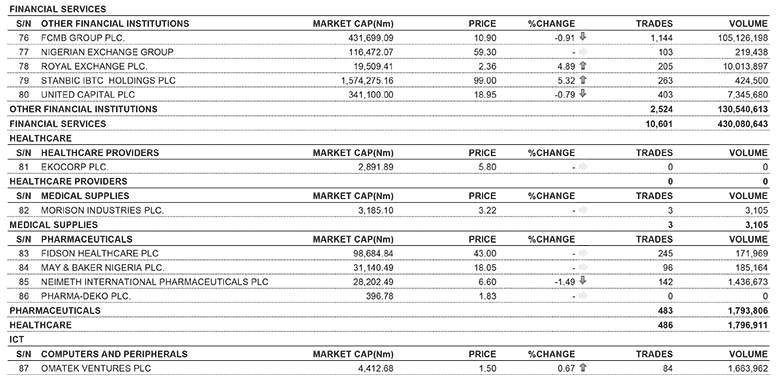


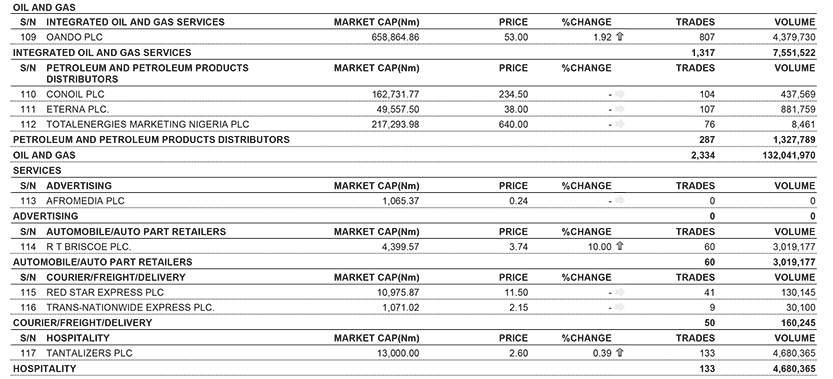
SOStainabilityWeekly
Edited by Oke Epia | E-mail
Spotlight

Enugu coal: Between an energy gambit and climate cash bait
Last week, the Governor of Enugu State, Peter Mbah, made a bold statement that has rekindled the debate on the energy transition around coal. For context, Enugu is literally Nigeria’s coal capital, and the resource was a crucial part of the nation’s economy until the discovery of black gold changed the game for Africa’s most populous black nation. So, by deliberate or unwitting design, but definitely unwise in any case, Nigeria abandoned coal in the ground while other countries continued extracting until climate change pulled the plug in many places.
“We cannot treat our coal as a stranded asset,” Governor Mbah told an audience convened by the Nigeria British Chamber of Commerce in Lagos. He then made what seems like a brilliant pitch: “Our target is to see how we can use our coal to generate at least 1000 megawatts of power.” But as if to pre-empt a clapback from environmentalists and climate campaigners, he quickly added: “We do have technology today that makes coal utilisation less adverse to the environment. Coal deposits in Enugu have less than 0.5 per cent sulphur content. For a lot of coal, if you have 1.0 per cent, you are still okay. But we have 0.5 per cent. Our coal is also very good for fire power plants due to its high calorific value.”
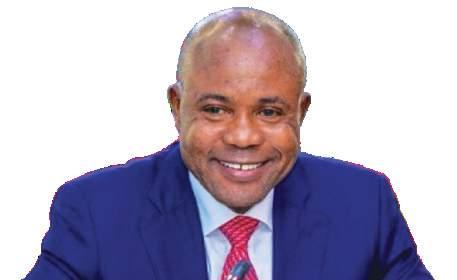
and governance support. Listening to the governor talk of returning to coal mining would certainly have struck an awkward chord that must have ripped
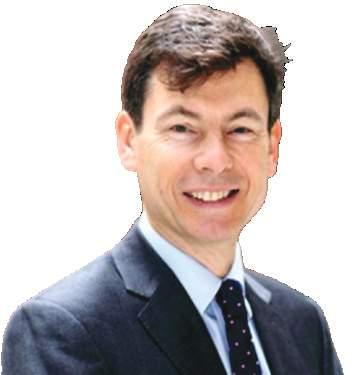
through diplomatic cables to Whitehall. The current Labour Government in London is committed to the transition away from fossil fuels. It has resisted
The governor’s caveat, nonetheless, climate advocates and enthusiasts will criticise this move, while sceptics and cynics will welcome it, even if to promote disinformation agendas. Depending on how the debate develops and the decisive support or opposition he receives from key stakeholders, including federal authorities, regulatory agencies in Abuja, and development partners, Governor Mbah may have just rolled the dice in the direction of climate finance. By warning that “if we have to warehouse or treat coal as a stranded asset, then there has to be a conversation on compensation,” he purports an understanding of the current dynamics of the energy transition and climate justice advocacy for the Global South.
The governor’s ‘drill baby drill’ rhetoric could not have gone unnoticed by the British Deputy High Commissioner, Mr Jonny Baxter, who spoke highly of the United Kingdom’s economic relationship with Nigeria at the event. The UK has invested millions of pounds in climate change initiatives through direct development finance

pressures, including from Washington, to drill for oil in the North Sea. It overturned an approval for coal mining in West Cumbria granted by the previous government, although not without dissent from those who believe the country should also extract its own coal rather than import dirty energy from abroad. The contentious West Cumbria coal mine was approved to produce coking coal for the steel industry, much to the dismay of environmental campaigners who quickly launched a legal challenge, arguing that the approval failed to account for the significant carbon emissions resulting from burning the coal.
Governor Mbah is stirring a fire that can burn in different directions. For good and for ill. For people, communities and the planet. He will have to answer many questions, including: how does a return to coal impact Nigeria’s climate ambitions and attainment of Nationally Determined Contributions (NDCs)? What is the technology to mitigate the environmental effects of coal mining, and where will it come from? How will he address the social costs to communities and livelihoods? What about concerns on power generation infrastructure, grid capacity, storage and distribution? Hopefully, Governor Mbah can provide convincing answers to these and other hard questions. Otherwise, he can be said to be on a red herring in chase of other agendas.
SOStainabilityWeekly
Edited by Oke Epia | E-mail
sostainability01@gmail.com
Trends and Threads

Sustainability Reporting: ISSA 5000 as a game-changer
The International Standard on Sustainability Assurance (ISSA) 5000, developed by the International Auditing and Assurance Standards Board (IAASB), is regarded as a game-changer for sustainability reporting.
With ESG (Environmental, Social, and Governance) commitments gaining momentum, ISSA 5000 offers businesses
a consistent, flexible framework to substantiate their sustainability claims with reliable, verified data. With increasing demands from investors, stakeholders, and the public for transparency, this framework ensures ESG claims are accurate, free from material misstatements, and backed by robust assurance.
What distinguishes ISSA 5000 is its framework-neutral approach. Companies that use standards such as the Global Reporting Initiative

Washing and hushing
The climate crisis, local innovations, and the Nigerian albatross
For millions of Nigerians, climate change isn’t a distant threat; it’s a daily struggle. And it matters little whether they accept the science or not. From unpredictable rainfall crippling farmers to energy shortages that leave entire communities in darkness, the impacts are real and unyielding. Yet, amidst this turmoil, a question arises: Can home-grown technologies offer a sustainable solution, or are they merely a flicker of hope in a system that is profoundly broken?
As the world swiftly transitions to clean energy, local innovators are stepping forward with bold ideas. Public agencies like the National Agency for Science and Engineering Infrastructure (NASENI) are actively developing solutions in solar power, electric vehicles, Compressed Natural Gas (CNG), and other fields. However, a vital question remains: without the proper infrastructure, policies, political commitment, and funding, can these innovations provide sustainable solutions for Nigeria?
Consider the $325.8m solar cell plant project in Nasarawa state, for example. While developing solar technology locally is an important initial step, it must be part of a broader plan that addresses the deficiencies of Nigeria’s energy grid and distribution networks. Without this, solar panels risk becoming a niche solution rather than the transformative infrastructure Nigeria requires. By the way, not much has been heard of that project after the much-hyped public launch in 2023.
When we talk about clean energy in Nigeria, we’re not just talking about technology; we’re talking about an entire ecosystem. The challenge isn’t only about making the technology affordable; it’s about creating a system that ensures it can be accessed, maintained, and scaled across the country. Infrastructure development, policy alignment, and technical training are all equally critical. And it’s here, in the challenge of integrating these innovations into the broader policy and market system, that NASENI’s work, while commendable, needs to evolve beyond isolated innovations.
(GRI) or local guidelines can depend on ISSA 5000 for ESG data validation. Furthermore, it adapts to different industries and organisational sizes, enabling assurance practitioners to exercise professional judgment while delivering high-quality results.
As sustainability is no longer confined to environmental concerns, ISSA 5000 adopts a holistic view, encompassing environmental, social, economic, and cultural aspects of a company’s impact. From climate change mitigation to labour practices and community relations, it assesses how businesses affect and are affected by the world. This comprehensive approach aligns with the growing emphasis on double materiality, a concept that examines both financial materiality and impact materiality—a company’s bottom line and how its operations influence external stakeholders, as well as environmental and social ecosystems. By addressing these dimensions, ISSA 5000 ensures that sustainability reporting goes beyond compliance to offer meaningful insights for stakeholders.
ISSA 5000 introduces a structured framework that ensures sustainability reporting is both credible and actionable. Its processes are designed to offer flexibility while maintaining a high standard of rigour. By addressing the
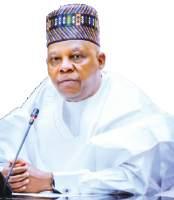
complexities of ESG reporting, ISSA 5000 aims to provide clarity, consistency, and trust in sustainability assurance.
At its core, ISSA 5000 establishes two distinct levels of assurance to meet different needs and depths of scrutiny: limited assurance, which offers a moderate review validating ESG data without detailed examination; and reasonable assurance, which involves a more thorough process requiring substantial evidence to support claims, providing a deeper level of validation. These assurance levels offer companies flexibility while ensuring the credibility of their ESG disclosures.
The ISSA 5000 framework emphasises accountability and transparency to ensure that stakeholders can trust the findings and understand the credibility of the information provided. This promotes alignment with both continental and global regulatory standards, such as the Corporate Sustainability Reporting Directive (CSRD), which mandates companies to submit sustainability statements verified by independent auditors. By enhancing credibility, transparency, and consistency, ISSA 5000 empowers businesses to align with global sustainability expectations while improving operational efficiency. It’s time for companies to embrace ISSA 5000—because the future of business depends on credible, accountable, and transparent sustainability reporting.

green initiatives but also to Nigeria’s future in clean
•Khalil Halilu, CEO of NASENI
Take the electric Keke Napep tricycle as another example. While the innovation is commendable, how will these vehicles compete with the hundreds of thousands of
President Kashim Shettima
Nigeria’s policy environment remains disjointed, with a lack of coherent, long-term strategies that align with the green initiatives. Electric vehicles, for instance, will not take off without policies that provide incentives for both manufacturers and consumers. The same goes for solar energy, where a lack of regulatory clarity and consistency on subsidies or tax incentives, for instance, could deter businesses from making the leap into renewables. What is the handshake between NASENI and the NOTAP (National Office for Technology Acquisition and Promotion), for example? A fragmented and inconsistent policy environment is not only a barrier to the scale of
gasoline-powered tricycles that have already been integrated into Nigeria’s transport infrastructure? And even more critically, how does NASENI plan to bring these vehicles to market at a price point that appeals to a population already struggling with inflation and poverty? These and other questions must be answered to ensure that local innovations don’t just alleviate the symptoms of climate change but also address the underlying issues of inequality that exacerbate its impact.
Last week’s decision of the National Economic Council (NEC), chaired by Vice President Kashim Shettima, to adopt the agency’s solar irrigation pumps for nationwide rollout ahead of the 2025 dry season farming is a step in the right direction. But given the dynamics and perennial pitfalls of Nigeria’s policy ecosystem, will this initiative gain traction beyond the short term?
Education
Faborode: Education Must Become Nigeria’s Priority for Real Transformation
Prof Michael Faborode is a former Vice-Chancellor, Obafemi awolowo University, Ile-Ife, and secretary General of the Committee of Vice-Chancellors. In this interview with Funmi Ogundare, he speaks on the decades-long decline of nigerian higher education, the neglect of academics, and the brain drain crippling the system. He also outlines reforms needed to restore universities as engines of national development. excerpts:
From your experience as a former Vice-Chancellor of OAU, how would you assess the current state of Nigerian higher education compared to two or three decades ago?
There is no doubt that our higher education institutions (HIEs), comprising universities, polytechnics and colleges of education are facing serious crisis of very depressing dimensions. The greatest tragedy is that the nation goes on and on as if there is no problem or crisis. A nation that neglects quality higher education cannot realistically hope for sustainable development, because as lawyers often say, “you cannot put something on nothing”, also that you reap what you sow. You cannot despise the academia and hope to have quality education, and outcomes in terms of highly innovative and fit-for-purpose graduates, impactive/transformative research outputs and their profitable uptake to create wealth for the institutions and the nation.
Universities for example, have become undisputable drivers of national and global human development. So, countries who fail to realise and genuinely capitalise on this fact and harness the huge potential of their universities will continue to grope in the wilderness of underdevelopment, as we are doing in Nigeria. Inexplicably, we take few uncoordinated steps forward but several backwards, moving perpetually aimlessly without tangible transformation or progress.
You asked of the comparison with two or three decades ago, we better say 40 – 50 years ago. Yes, a time it was when our universities (we had few manageable ones by then) were highly revered globally. Then we had several international academics and students, not only from other African countries but from all over the world. Our problems actually started not yesterday or 10 years ago, but as far back as the early 80s when we abandoned more progressive policies and governance models and our political leaders yielded our space to corruption and extravagance.
When the university staff tried to stop the nonsense that was creeping in, they were repressed, crushed and denied of necessary funding since they would not keep quiet and allow those in government to plunder the resources as they freely wanted. That marked the downward spiral of the universities which continued till the early 21st century, promoted by the World Bank that wrongly advised our governments not to invest in higher education, but face basic education and funding of UBEC fitted the appetite of the politicians and civil servants for sleaze and plundering.
There was some reprieve, with the setting up of the Education Tax Fund, following a protest by ASUU in 1992 when Prof. Attahiru Jega was its president, and President Obasanjo then reviewed the salaries of staff in the HEIs, enabling them to smile briefly. Additionally, some philanthropic foundations (Carnegie, Ford, McArthur, etc) came in 2001-2004 and worked with some of our universities to turn things around, and restored the culture of research and serious learning aided with ICT provisions.
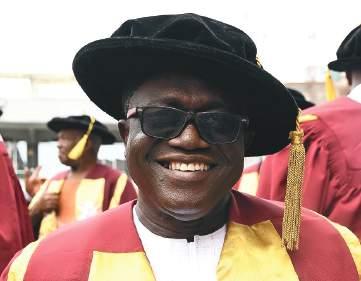
However, by 2009, things started faltering again causing the strike by the Academic Staff Union that eventually led to the 2009 FGN-ASUU agreement that had not been faithfully implemented till today. The culture of strikes to call government attention to the plight of the system and the larger society became a cankerworm of the nation’s education sector. How can there be serious development in such a system? Now the system has become thoroughly pathetic and a global laughing stock, just as Nigerians lament the serious ineptitude of their universities and other HEIs.
What do you think are the root causes of the decline in quality and global ranking of Nigerian universities?
I guess my preceding answer has subtly implicated the lack of appreciation of the transformative power of higher education. There is an apparent national despondency that has now totally relegated the academics to societal scums, no longer regarded or revered by the society, parents and students, many of who are now far richer than their lecturers, and even boast of buying tyres for their lecturer’s ram-shackled cars (if you can really call them cars). My late father, even as a primary school standard III teacher in those days, had more honour and reverence than most professors today, including me, a former vice-chancellor; the society and of course pupils and children no longer have any
regard for teachers.
The values and virtues of the society have been turned upside down, as we now worship money and other inconsequential intangibles in place of honour, integrity and dedicated service. Otherwise, how can our law makers in the national and state assemblies pretend as if all is well when lecturers are suffering with so much ignominy? Worse still some of them were once teachers or lecturers, but now enjoy the largess of their new positions with reckless abandon.
Many lecturers are forced to jump from one university to another, ‘teaching’ with no time for research, empathy or positive civic engagement, just to make ends meet. Tell me how you can maintain quality and standards in such a rat-race situation.
At the same time government has consistently underfunded the universities for capital infrastructure and daily running of services such that laboratories are without requisite reagents, chemicals and other consumables; workshops and theatres are bare of essential facilities; while classrooms are inadequate and ill-equipped for modern tuition and learning. Furthermore, postgraduate studentship is totally discouraged, as today’s youngsters do not want to suffer the fate of their seniors and fathers.
The result is fewer lecturers for the system, leading to overpopulated classes and unrealistic FTE ratios beyond global standards. Don’t forget that many universities have also lost critical staff to brain drain that has now caused the ‘japa’ syndrome in the academia and medical establishments. So why will quality not decline, and how can we compete with nations who value education and invest wisely in their HEIs.
Yet we continue to delude ourselves and
ICOBA Elects Badejo-Okunsanya
Oluchi Chibuzor
The Igbobi College Old Boys Association (ICOBA) has elected Yomi Badejo-Okusanya as its 12th President, after serving as the immediate first Vice-President.
Speaking shortly after his election in Lagos, Badejo-Okusanya pledged to engage in six key pillars that would set the path for its leadership over the next two years.
Among the key pillars of his vision
are building a formidable ICOBA endowment fund that delivers real and lasting impact; drive significant improvements in the college’s infrastructure and assets; facilitate the construction of a new hostel for Parker House. Others are to significantly enhance students’ welfare and school experience, project the Igbobi College brand more effectively, locally and glob-
remain in self-denial and stupidly expect the academics to remain their ‘mumu’ selves as always. You have a National Assembly whose members are largely pre-occupied with further raising their humungous salaries and allowances. As some commentators have observed, they do not send their children to our universities because they have enough sleaze money to seed them abroad and expensive private universities.
Of course, some of the private universities that are well-funded by their proprietors are doing well and even beating some federal universities that had enviable track records but have now become derelict due to collateral poor funding and inexplicable poor policies. So, to put it sternly, the problems of our universities are self-inflicted by a nation that does not know the value of its universities and other HEIs.
A former VC of the same university as yours once compared Nigerian professors’ salaries to what a gardener earns in a few hours in the US. How accurate is this comparison in reflecting the plight of academics in Nigeria?
I must praise the courage of Prof. Wande Abimbola to have spoken out forthrightly the way he did, and I am encouraged to join him in speaking likewise. The situation is simply pathetic and demeaning. For a long time, I could not let people know how much I earn as a professor of 30 years in the academia. Mind you I have taught for over 45 years in the higher education system, so the shame is indeed on the nation and not me. My supervisor for my master’s degree, who invented the iconic yam pounding machine, and a national merit award winner (NNOM), not the bastardised chieftaincy-type national honours, the National Order of Merit (the highest academic honour; our own national Nobel Prize), lives in penury today after sacrificing his entire life for the nation.
How can academics continue to give their best with such a terrible example? So, Prof. Wande Abimbola was right to have hit the nail on the head, though I also blame the leadership of ASUU who have not correctly presented the plight of academics to the public, and tend to be unreasonably combative and abusive, sometimes personalising the issues, instead of being tactful and realistic at negotiations. That is why academics are today at the bottom of the take-home remuneration structure.
Also, unlike they have in other services, it is only in the academia that former office holders, specifically vice-chancellors, revert to their basic grades after service and for pension purposes, thereby shooting themselves in the leg. They want to be more catholic than the pope or more communist than China, whereas China had to be more pragmatic and realistic to attain its present global status in technology and economic strength. While we say the plight of academics is pitiable and demeaning, that of former vice-chancellors is more ridiculous and unprintable.
NOTE: Interested readers should continue in the online edition on www.thisdaylive.com
as 12th President
ally and foster a cohesive, inclusive, and purpose-driven ICOBA for the benefit of all members.
“In summary, I have only one assignment as the 12th President of ICOBA: To leave this association better than it was handed to me,” stated Badejo-Okusanya.
He charged the owners of the college to reciprocate the old boys’ efforts “by massively re-investing in Igbobi College.
“The future of this great institution cannot
and must not be left to ICOBA alone. Only through this shared responsibility can we rebuild the Igbobi College of our dreams and restore its full glory.
“To the staff and especially the students of our great alma mater: You will continue to feel the tangible impact of ICOBA’s contributions. We owe you that - because without students, there is no college; and without a college, there is no ICOBA,” added Badejo-Okusanya.
Photo e ditor Abiodun Ajala e mail abiodun.ajala@thisdaylive.com

A cross-section of the graduands of the Chartered Institute of Management Accountants (CIMA) during their 2025 convocation ceremony held in Lagos…recently

The Director-General of the National Youth Service Commission (NYSC), Brigadier General Olakunle Nafiu (right), presenting souvenirs to the Managing Director of Nigerian Airforce Investment Limited (NAFIL), Air Commodore Idris Suleiman, during a courtesy visit to the NYSC office in Maitama, Abuja…recently
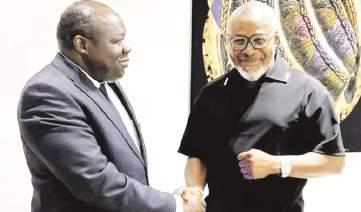
Rwanda High Commissioner to Nigeria, Ambassador Bazivamo Christophe (left), and Managing Director, Safron Hotels, Bayo Fatusin, during Christophe’s courtesy visits to the Fatusins in Lagos…recently

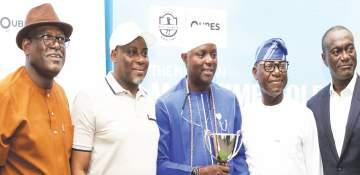
L-R: Director, Administration and Human Resources, NIMASA, Mr. Isichie Osamgbi; HRH Felix BoB-Nabena Ayinma II, Amadaowei of Aduku Kabowei Kingdom, Bayelsa State; HRM Oba Ademola Makinde, Owa of Igbajo, the overall Best Gross Winner; past Chairman, Ikoyi Club 1938, Alhaji Tafa Zibiri-Aliu; and Vice-Captain, Ikoyi Club Golf Section, Mr. Afolabi Balogun, during the presentation of the trophy to the winner of the 2025 Nigerian Maritime Golf Challenge, held in Lagos...recently

International Breweries PLC (IBPLC) retailer and Aj Bar Manager, Adeyemi Aisha; Director, Special Duties, Manufacturers Association of Nigeria (MAN), Kanayo Iwuchukwu; Castle Lite Nigeria Marketing Manager, Oluwatoyin Ogunjimi; IBPLC retailer and Mac 10 Bar Manager, Omotoyosi Somefun; Communications and Sustainability Manager, IBPLC, Damian Igwe; and Director, Membership Services, Manufacturers Association of Nigeria (MAN), Joseph Emoleke, at the International Breweries ‘Cheers to Bars X Castle Lite Nite’ activation in Lagos…recently

AUDITIONS FOR MTN NEXT AFROBEATS STAR...
L-R: Regional Marketing Manager, MTN Nigeria, Mr. Joseph Ogbuka; Chief Executive Officer, Ultima Studios, Mr. Femi Abidoye Ayeni; General Manager, Regional Operations, Northwest Region, MTN Nigeria, Mr. ThankGod Otorkpa; Senior Manager, Sales Operations, MTN Nigeria, Mr. Fasa Obazenu; and Sponsorship Alliances Lead, MTN Nigeria, Mr. Peter Kajovo, during the second day of the Abuja auditions for MTN Next Afrobeats Star held at the Soul Lounge, Jahi, Abuja… recently
UN Insists Peace, Dialogue, Reconciliation
Keys to Sustainable Growth
Global peace: stakeholders, experts offer local solutions to conflicts, preach peace
Michael Olugbode and Linus Aleke in Abuja
United Nations Resident and Humanitarian Coordinator, Mr. Mohamed Fall, has reiterated the need for global commitment to peace, dialogue and reconciliation to bolster sustainable growth. Fall said this in an address on Monday night in Abuja, during the commemoration of the International Day of Peace, observed annually on September 21.
The event, convened under the theme, “Actions for peace: Our ambition for the #GlobalGoals,” at the Embassy of Germany in Abuja, was established by the UN General Assembly in 1981.
In a related development, peace-building stakeholders and security experts proposed locally driven solutions to con- flicts threatening global peace, stating that peace advocacy and sustained dialogue among warring factions are essential to counter terrorism, address emerging security threats, and
promote global harmony.
The stakeholders, including Search for Common Ground (SCG) and Nigeria Security and Civil Defence Corps (NSCDC), offered the home-grown solutions during a peace walk to mark World Peace Day 2025 in Abuja. Fall stated that the commemoration was to strengthen the ideals of peace among nations and peoples, and stress collective action, trust and solidarity in tackling global challenges.
He said, “We are meeting not only as a day of a calendar of peace, this is for us a renewed promise of peace, dignity and the future.
“Where every woman, every man, every child, every person with disability can live far from fear. It is a message that speaks to “ItNigeria.speaks to the nation of a great diversity and resilience, but also a nation still facing challenges that test its peace- building process.”
He added, “Conflict which Nigeria faces and across its
border, have also forced millions from their home, and they are called displaced people or refugees.
“This is why today we are celebrating more than a date. We are celebrating the journey that take us on to improve the well-being of the people we serve here in Nigeria, but also beyond the border of Nigeria.”
German Ambassador to Ni-
geria, Annett Gunther, lamented gaps in efforts to prevent conflict and sustain peace, and stated that it was for this reason that the Peacebuilding Commission, Peacebuilding Fund and the Peacebuilding Support Office were established.
According to her, such have become pillars of a more integrated, inclusive and forward-looking approach
to peacebuilding, describing the anniversary as symbolic milestone.
She said, “It is an opportunity to renew our shared commitment to the principles that underpin sustainable peace - national part- nership, inclusive governance, long-term partnerships, and a focus on Director-General,prevention.”Institute for Peace and Conflict Resolution
(IPCR), Joseph Ochogwu, said the day coincided with the 25th anniversary since the establish- ment of the IPCR. Ochogwu said, “We are work- ing bilaterally and multilaterally with the respective institutions from ECOWAS, the African Union, the UN system and other respective multilateral institutions about pursuit of peace.”
EU Urges Nigeria to Focus on Provision of Livelihood Opportunities to Cage Sources of Terrorist Recruitment
European Union Delegation to Nigeria and Economic Community of West African States (ECOWAS) have urged Nigeria to focus on the provision of livelihood opportunities for youths to cut off sources of terrorist recruitment in the country. EU also revealed that
Withheld LG Funds: Court Hears
Jurisdiction Issue September 29
As Osun insists on transfer to Osogbo Division
Alex Enumah in Abuja
A Federal High Court in Abuja, on Monday, fixed September 29, for hearing in a motion challenging its jurisdiction to hear a suit against withheld Osun State Local Governments’ funds.
Justice Emeka Nwite adjourned to the above date for hearing following insistence of the Osun State Government that the vacation court lacked jurisdiction beyond September 16, and hence the case be transferred
back to Osogbo Division for appropriate hearing and determination.
According to the plaintiff, the fiat granted the Attorney General of the Federation for the matter to be heard during vacation in Abuja, had been overtaken on the ground that the vacation has come to an end.
The motion filed by its lead counsel, Musibau Adetumbi, SAN, also challenged the validity of a purported letter from the office of the Chief Judge
of the court mandating Justice Emeka Nwite to substantively determine the suit in Abuja.
The grouse of Adetumbi against the letter was that it was signed by a person who claimed to be Personal Assistant to the Personal Assistant of the Chief Judge.
Adetumbi contended that the Personal Assistant to the Personal Assistant of the Chief Judge is a busy body and a person unknown to law to sign such a sensitive document.
insurgents had become increasingly adept at exploiting breaches of fundamental rights by authorities to persuade vulnerable citizens—particularly young people—that they represented justice and righteousness, while portraying the government as the enemy.
Speaking at the validation of the revised policy framework and National Action Plan for Preventing and Countering Violent Extremism (PCVE) in Nigeria, yesterday, in Abuja, EU
Ambassador to Nigeria and ECOWAS, Gautier Mignot, stated that winning the hearts and minds of the population and civil society required special care in protecting and respecting the fundamental rights of all citizens.
Mignot also called for the domestication of the national strategy and action plan at the state level.
He stated, “The terrorist threat is a particularly complex one, requiring a ‘whole-of-government’ and even a ‘whole-of-society’
approach. This is why the overall counter-terrorism strategy and the revised framework on PCVE are essential tools, along with the Violent Extremism Action Plan, which outlines specific actions aimed at reducing and preventing radicalisation. “It is also extremely important to domesticate the national strategy and action plan at the state level, particularly by working to improve government pres- ence in rural areas to avoid marginalisation.
Otti Expands Cabinet, Splits Lands Ministry, Adds New Commissioners, Special Adviser
Emmanuel Ugwu-Nwogo in Umuahia
Governor Alex Otti of Abia State has slightly expanded his cabinet by splitting the Ministry of Lands and Housing into two to improve efficiency in his administration. He also brought in two new Commissioners and a Special Adviser into his cabinet, charging them to bring fresh energy, commitment, and integrity to the service of Abia.
Otti gave the charge Tuesday at the Government House, Umuahia, during the swearing-in ceremony of the new cabinet members that include Dr. Salome Obiukwu, Arc. Chiemela Uzoije, and Prince Christian Enweremadu.
Obiukwu was assigned the portfolio of Commissioner for Trade and Commerce, Uzoije was made the Commissioner for Housing, while Enweremadu assumed duty as the Special Adviser to the Governor on
Agriculture. With the splitting of Housing from his Ministry, Mr. Chaka Chukwumerije now heads only the Ministry of Lands as Commissioner.
Governor Otti also effected a slight adjustment in his cabinet by moving the hitherto Commis- sioner for Trade and Commerce, Mr. Kingsley Nwokocha, to occupy the vacant portfolio of the Commissioner for Labour and Productivity.

PRESS CONFERENCE ON THE EVN EXPO 1...
L-R: Director, Off-Grid Transaction Advisory, Green Max Capital Group, Koye Alaba; Program Associate, NoMAP, Jennifer Anya; Convener, EVN EXPO, Adekoyejo Abiola; Associate, RMI, Ridwan Zubair; and Principal Advisor, Advisory and Investment Readiness, The Bopfa Company, Boluwasope Ogboye during a press conference organised on the premier EVN EXPO held in Lagos on Monday
Oil Sector Workers Reject FG’s
Plan to Sell Stake in Oil, Gas Assets
Say
Onyebuchi Ezigbo in Abuja Oil Workers under the auspices of the Nigeria Union of Petroleum and Natural Gas Workers (NUPENG) and Petroleum and Natural Gas Senior Staff Association of Nigeria (PENGASSAN) yesterday said they remain opposed to the federal government’s new policy of divestment of the country’s assets in Joint Venture (JV)
oil and gas companies.
govt taking planned PIA amendment through back door NUPENG denies extortion charge federation. Today, the gov- ernment wants to reduce its stake in these assets. Principally, they want to sell some huge percentages in these assets.
Amid the continued face-off between Dangote Refinery Group and NUPENG, the union also pushed back on an allegation that its officials are extorting money from petrol tanker drivers at the depots.
Addressing a joint press conference in Abuja, the lead- ership of PENGASSAN and NUPENG accused the federal government of planning to move controlling powers
over the JV interests from the Nigerian National Petroleum Company (NNPC) through the Ministry of Petroleum Resources to that of Finance.
Instead of thinking of sell- ing JV assets, the workers urged the government to push for further development of these assets and to add more value to the assets.
The workers explained that the stake of the government in the JV companies today
is being managed by NNPC Limited on behalf of the Nigerian Federation and not for the federal government alone.
According to the oil work- ers, every crude oil asset in Nigeria, every oil well in Nigeria, is not just owned by the federal government, but owned by the federation, including states.
“So it is not the federal government, but the entire
2027: Gbenga Hashim Stands Out as Only National Candidate, Says PDP Chieftain
Prominent Peoples Democratic Party (PDP) chieftain in the North West, Hon. Aminu Bala Wudilawa, has declared that former presidential candidate, Dr. Gbenga Olawepo-Hashim, is the only contender with the competence, credibility, and national spread to win votes across the North and South in 2027.
Wudilawa, who doubles as the North West Coordina-
tor of the Gbenga Hashim Vanguard, made the assertion during a political engagement in Kano, stressing that Nigeria needs a unifier with the capacity to transcend ethnic and regional divides.
“Nigeria desperately needs a political leader who is competent, credible, and capable of breaking the political divide between North and South in the present context. Among all the presidential hopefuls being touted today, Dr. Gbenga Hashim clearly
stands out,” he said.
The PDP stalwart described Hashim as a natural bridgebuilder, noting that with both Hausa and Yoruba heritage, he represents the face of national unity.
He added that beyond politics, Hashim is a successful entrepreneur, a tested crusader for democracy, and an advocate of good governance.
Wudilawa also dismissed zoning as “a backward and unconstitutional arrangement,” warning that it must
ICONS Nomination: Masari, Enang, Goje, Madori Celebrate Prestigious Recognition
Formal acceptance messages have continued to pour in from nominees for the ICONS of the Fourth Republic, with former Speaker of the House of Repre- sentatives and ex-Governor of Katsina State, Rt. Hon. Aminu Bello Masari, among the latest to express delight over his selection.
The Initiative for Celebrating Outstanding National Statespersons (ICONS) of the Fourth
Republic is a legacy-driven programme conceived to honour exceptional Nigerians whose service in both the legislature and the executive has shaped the nation’s governance and democratic trajectory.
Anchored on the Facility for Legislative Executive Exchange (FLEX), an OrderPaper Nigeria research project, the programme spotlights public service delivery across both arms of government.
Central to the initiative is a prestigious legacy publication, The Book of Records, and an accompanying digital repository. Together, they provide datadriven profiles of public officials’ legislative contributions and executive footprints, documenting decades of impact on Nigeria’s democracy.
In his acceptance letter, Masari described the honour as deeply humbling:
not deprive Nigerians of the chance to elect a leader with the pedigree to deliver genuine transformation.
He called on Nigerians across party and regional lines to rally behind Hashim, insisting he is the bridge between regions, religions, and generations that the country urgently needs.
“In some places, they want to sell up to 35 per cent, in some places they sell up to 30 per cent, so that they will have some cash to spend in other areas. That is the excuse that they are giving. But as an association, as PENGASSAN and NUPENG, we say no to this,” the unions stated.
Aside from oil unions, political voices had also joined the opposition. Former Vice President Atiku Abubakar has cautioned against what he described as hasty amend- ments to the Petroleum Industry Act (PIA) in order to fast-track the equity sale.
He and others insisted that such a move could erode Nigeria’s sovereign control over its most strategic asset, compromise long-term revenue streams in exchange for short-term cash, and tilt advantage toward politically
connected firms or foreign entities.
Besides, civil society groups have echoed these concerns, describing the proposal as a step that undermines transparency, accountabil- ity, and economic stability. Some advocacy groups have gone further to accuse the government of planning to sell national assets into the hands of cronies, urging President Bola Tinubu to shelve the idea.
President of PENGASSAN, Festus Osifo, said that some amendments that the federal government is trying to bring into the PIA were being mooted by the Ministry of Finance.
Osifo, who was flanked by NUPENG President, Williams Akporeha, as well as other union leaders, during the press conference said: “Today, NNPC Ltd is owned by the Ministry of Finance Incorporated and the Ministry of Petroleum Incorporated. But they want to go through the back door.
NHIA Expands Maternal Health Initiative to Neonatal Care in Kano
Kuni Tyessi in Abuja
The National Health Insurance Authority, NHIA, has taken a decisive step in advancing Nigeria’s progress toward Universal Health Coverage (UHC) with the launch of the pilot of the neonatal component of the Comprehensive Emergency Obstetric and Neonatal Care (CEmONC) in Kano State.
In a statement released on Tuesday and signed by the NHIA Director General, Dr. Kelechi Ohiri, the initiative which builds on the suc-
cesses already recorded in maternal programme was formally inaugurated during a high-level delegation visit to Aminu Kano Teaching Hospital (AKTH) and the Kano State Ministry of Health (KSMOH).
Commending the expansion, Kano State Commissioner for Health, Dr. Abubakar Labaran Yusuf, stated that additional facilities suitable for neonatal care had been identified for possible inclusion, and charged participating hospitals to target a 95 percent survival rate for
admitted neonates.
The statement also revealed that a tripartite Memorandum of Understanding (MoU) was also signed between NHIA, AKTH, and Reliance HMO, the designated third-party administrator, to formalize workflows for enrollment, claims processing, and data reporting.
The visit culminated in the commissioning of the hospital’s Special Care Baby Unit (SCBU), a dedicated facility for newborns requiring intensive care.
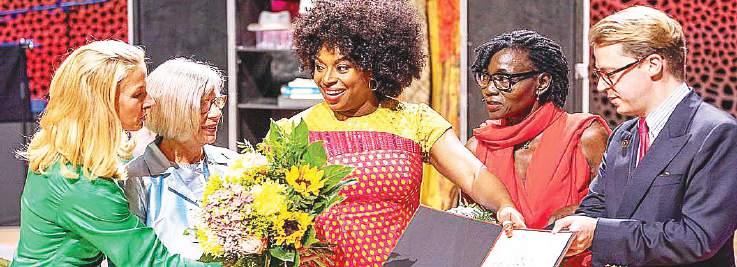
Bill Gates Pledges $912 Million to Global Disease Fight
Says kids born in Northern Nigeria have 15% chance of dying before 5
Emmanuel Addeh in Abuja
The Gates Foundation will give $912 million to the Global Fund to Fight AIDS, Tuberculosis and Malaria, philanthropist Bill Gates, has announced, urging governments to reverse global health funding cuts.
Speaking at a Reuters Newsmaker event in New York, Gates said the world was at a crossroads, with millions of children at risk of dying if funding drops too steeply.
The Gates Foundation’s pledge matches its donation in 2022. That was the last time the
litically motivated, citing her rising influence, activism, and confrontations with powerful interests.
Akpoti-Uduaghan had filed a suit at the Federal High Court challenging the legality of her suspension.
In a landmark ruling delivered last month, the court declared the suspension excessive, unlawful, and unconstitutional. It stated that no legislative chamber had the power to unilaterally deny an elected representative the right to perform their constitutional duties without due process.
Despite the ruling, the senate leadership had remained defiant, maintaining that the lawmaker could not resume without a fresh resolution from the floor or a further directive from the judiciary.
With the reopening of her office, it appeared the senate might be making a quiet retreat from its earlier hard-line stance, even though there had been no official statement on whether Akpoti-Uduaghan would be permitted to resume full plenary duties when the chamber reconvenes.
Global Fund, a Geneva-based independent nonprofit, raised money on its three-year budget cycle. The announcement follows deep aid cuts from governments around the world, led by the United States.
“A kid born in northern Nigeria has a 15 per cent chance of dying before the age of five. You can either be part of improving that or act like that doesn’t matter,” Gates said in an interview before the foundation’s annual Goalkeepers event in New York on Monday.
The event celebrates and seeks to accelerate progress on United
Compounding the intrigue surrounding the senator’s case was the unexpected postponement of the senate’s plenary activities, originally scheduled to resume on Tuesday, September 23.
According to separate memos issued by Clerk of the National Assembly, Mr. Kamoru Ogun- lana, and Chief of Staff to the Senate President, Mr. Chinedu Akubueze, plenary sessions have been deferred by two weeks and would now resume on Tuesday, October 7.
“Any inconvenience this short notice may cause is deeply regretted,” the notices read, while informing lawmakers that committee activities would continue during the recess period.
No specific reason was provided for the rescheduling, fuelling speculation about internal tensions or strategic manoeuvring within the senate leadership.
Natasha: I Owe No One Any Apology
Senator Natasha Akpoti-
Nations global development goals set for 2030, including improving health and ending poverty, a Reuters report said.
“I am not capable of making up what the government cuts, and I don’t want to create an illusion of that,” he said about hisThepledge.Gates Foundation, the philanthropy started by the Microsoft co-founder and his then-wife in 2000, is one of the world’s biggest funders of global health initiatives, with a particular focus on ending preventable deaths of mothers and babies, tackling infectious
Uduaghan, yesterday, returned to the National Assembly with a declaration that she owed no apology to anyone.
Her return came days after a court nullified her suspension and the National Assembly quietly reopened her previously sealed office.
Addressing journalists in her office, she decried the entire process leading to her suspension as “fraudulent” and politically motivated.
She said, “If reopening my office was done with the expectation of an apology, then the battle has just begun.
“I have no apology to tender to anyone for the injustice I suffered. None whatsoever.”
Describing her suspension as a dangerous precedent, the lawmaker warned that Nigeria’s democracy risked erosion if elected officials could be removed arbitrarily for expressing dissent.
Akpoti-Uduaghan said, “Sena- tor Akpabio is not more of a senator than I am. He is not a governor here. He cannot treat me as if I’m his domestic staff.”
diseases and lifting millions out of poverty.
Earlier this year, Gates pledged to give away almost his entire $200 billion fortune by 2045, more quickly than planned
because of the urgent need worldwide.
According to the U.S-based Institute for Health Metrics and Evaluation, global development assistance fell by 21 per cent
between 2024 and 2025 and is now at a 15-year low. That could still change, said Gates, with organisations like the Global Fund trying to raise money before the end of the year.
Afenifere Raises Concern over Unabated Killings, Seeks Quicker Economic Reforms
Fidelis david in Akure
Afenifere, yesterday, expressed concern over the increasing rate of insecurity in parts of Kwara, Kogi, Ogun, Ondo and Oyo
She added, “From Atiku Abubakar to Mama Oby Eze- kwesili, Aisha Yesufu, Femi Falana, and of course, my beloved family and the people of Kogi Central, I thank you all. We survived blackmail, road blockades, and attempts to silence us.”
HURIWA Seeks End to Her Trial
Human Rights Writers Association of Nigeria (HURIWA) welcomed the unsealing of the office of Senator Natasha Akpoti-Uduaghan, just as it sought end to her trial.
In a statement by its na- tional coordinator, Emmanuel Onwubiko, the group stated, “We in HURIWA welcome this beautiful news of the unsealing of the legislative office of Senator Natasha Akpoti-Uduaghan.
“If this report is anything to go by, it would mean that at last, reason has overcome emotions and pride.
“HURIWA thinks that the six-month suspension was unnecessary and disastrous because it gave the current senate
states, as well as the growing genocide in Benue, Plateau, Niger and Katsina states.
The group urged the federal government to work harder on its economic reform policies and
a very bad image both locally and abroad as a legislature that fails to investigate allegations of sexual intimidation of the females.”
HURIWA also charged the Attorney-General of the Federation and Minister of Justice, Lateef Fagbemi, to immediately withdraw the ongoing prosecution of the senator at the Federal High Court, Abuja Division, for alleged cybercrime and related offences.
It said, “The prosecution is political persecution, pure and simple, and is absolutely despicable and disgraceful. Imagine how a country that claims to be a democracy, actually deploying the resources of government to wage political war of vendetta on behalf of prominent members of the ruling party in the persons of the senate president and the immediate past Kogi State governor against their perceived political adversary, Senator Natasha Akpoti-Uduaghan. This doesn’t make any logical or rational sense.”
accelerate its efforts to tackle the increasing insecurity in the country.
A communique issued at the end of Afenifere’s caucus meeting held in Akure, the Ondo State capital, signed by Comrade Jare Ajayi, its National Publicity Secretary, called for urgent take-off of state police, saying local communities should be encouraged and funded to defend themselves.
The meeting presided by Afenifere’s Executive Committee Chairman, Oba Olu Falae, equally resolved that the federal government should work harder on its economic reform policies to ensure that the country’s economy bounced back and became stronger.
The communique read, “We feel that while both kinetic and non-kinetic strategies are employed to combat banditry and terrorism, community leaders, politicians and the locals should identify and check internal saboteurs and those who are collaborating with criminals.
“In the same vein, there is the need for strong policies on justice, fairness and a determination to ensure that no group of people constitute danger or threat to other people, especially in their ancestral homes.”
Afenifere recommended that modern technology, such as drones and close-circuit cameras, be procured and deployed to address the security situation.

LAUNCH OF ABIS LIVESTOCK ACADEMY & NATIONAL LIVESTOCK TRANSFORMATION
L-R: Managing Director/Chief Executive Officer, NIRSAL, Sa’ad Hamidu; Founder/Chairman, ABIS Group, Emmanuel Nelson Usman; Minister of Livestock Development, Mukhtar Idi Maiha; Senior Special Assistant to the President on Livestock Development, Idris Abiola-Ajimobi; and Director General, Abuja Chamber of Commerce and Industry, Agabaidu Jideani, during the Launch of ABIS Livestock Academy & National Livestock Transformation Dialogue in Abuja, yesterday
We Will Not Tolerate Unprovoked Attacks on Our Men Anymore, IGP Reads Riot Act
Linus Aleke in Abuja
Inspector General of Police (IGP), Kayode Egbetokun, has said the Nigeria Police, under his leadership, will no longer tolerate unprovoked attacks on police officers by agents of destabilisation in the country. Egbetokun made this known during a conference
with senior strategic officers in Abuja, yesterday. On September 19, three police officers were killed during an attack by suspected armed herdsmen and local militias at Agu Centre, Katsina Ala.
Three days after, on Septem- ber 22, authorities recovered eight more bodies of police personnel from the Agu Centre
We are building resilience. We are building the buffers. We are looking at the situation, and we are reacting where we have to react and at the time we need to do so.
ambush, bringing the total confirmed dead police officers from that attack to 11.
Reacting to the develop- ment, the IGP said, “On several occasions, I have issued warnings against attacks on police officers carrying out their lawful duties.
“Attacks on our personnel are unacceptable. We do not
percent in July, according to the National Bureau of Statistics.
condone any form of assault on police officers performing their legitimate functions.
“Repeatedly, I have appealed to the public: if you disagree with the conduct of any police officer, kindly report the matter to the appropriate authorities.
“Every state has a Commissioner of Police, every division has a Divisional Police Officer
(DPO), and every area has an Area Commander.”
Egbetokun added, “We also have a Complaint Response Unit in all police formations across the Federation, and their contact details have been publicised several times.
“If you disagree with the behaviour of any police officer, do not attack them — report
their conduct to their superior. I can assure you that such reports will not be ignored. All necessary disciplinary actions will be taken against the offending officer.” He stated that disciplinary measures taken against erring officers were made public to encourage citizens to report misconduct.
Reacting to concerns over a potential spike in inflation in a pre-election year, Cardoso said the CBN remained committed to achieving single-digit inflation.
He said, “Yes, we are pleased that we are seeing consecutive disinflation. We are pleased. This is the fifth consecutive month.
“But I want to say something for the avoidance of doubt: our goal is for single-digit inflation. That’s our goal, and that is something that we are very resolute on, and we will not stop until we get there. I want to make that abundantly clear and that is where we are headed too.”
“Let me be clear in saying that one of the major objectives of an MPC is to be proactive. We see data, we analyse data, we see things that many don’t see.”
He added, “We look at risks, not just internal, but also external. We project those risks into the future, and we base our decisions on that. That is why we continue to emphasise that for the MPC, it is critical, and has been critical, to be data-driven.
“We are not oblivious to potential shocks. We are ready.
“So, please rest assured that as the Central Bank of Nigeria, we will not disappoint in taking the action that needs to be taken to ensure that the hard-earned stability in the system continues, as we have seen it. That is key to economic growth.”
The CBN governor also expressed concerns over the negative impact of monthly FAAC allocations to monetary stability.
He said, “We are a bit concerned about excess liquidity and, in particular, the negative effects of FAAC releases at certain times of the month or the year, and it is something that we are watching very closely and will continue to deploy tools that are required to ensure that the stability we have attained stays with us into the future.”
Meanwhile, the DirectorGeneral of NECA, Mr. Adewale-Smatt Oyerinde, commended the decision of the Central Bank of Nigeria’s Monetary Policy Committee (MPC) at its 302nd meeting to reduce the Monetary Policy Rate (MPR) by 50 basis points to 27.00 Oyerindepercent.noted that the deci- sion followed a steady decline in inflation, with headline inflation moderating to 20.12 percent in August 2025, from 21.88
He said that “for over five months, inflationary pressures have eased. This provides criti- cal space for policymakers to balance the pursuit of price stability with the urgent need to stimulate growth.”
According to him, the modest reduction in the MPR, is commendable but its benefits would depend on effective transmission into the real economy.
He said: “If credit costs are lowered, businesses can access affordable financing, expand investments, and create jobs.
“However, the persistently high CRR and other liquid- ity restrictions risk limiting these intended outcomes,” he cautioned.
Oyerinde, also pointed out that food inflation has remained high at 21.87 per cent, placing enormous strain on households and eroding disposable incomes.
“Macroeconomic stability will only have meaning when Nigerians experience tangible relief through lower food and living costs,” he stressed.
He explained that high operating costs driven by raw materials, energy, and logistics would continue to threaten
“Withoutsustainability. affordable credit and structural reforms, enterprises will struggle to expand,” he said.
The director general called on government to complement the MPC’s decision with broader
interventions, including stabiliz- ing the exchange rate to curb imported inflation, improving security in farming communi- ties, expanding mechanisation to drive agricultural productivity, and tackling bottlenecks in en- ergy, transport, and regulation.
Equally, the CPPE com- mended the CBN and its MPC for their decision to ease credit conditions in the Nigerian economy.
CEO of CPPE, Dr. Muda Yusuf, said the move marked a significant policy shift towards supporting growth and invest- ment, following an extended period of aggressive monetary tightening to rein in inflation.
Yusuf added: “The MPC’s decision represents a strategic and well-timed policy shift from a phase of stabilisation to a phase of growth accelerator.
“If sustained and comple- mented by appropriate fiscal and structural reforms, these measures will stimulate economic growth and job creation; improve private sector performance and output; boost government revenues through an expanded tax base, and moderate inflation sustainably in the medium to long term.
“The CPPE regards this as a step in the right direction to- ward building a more resilient, inclusive, and growth-oriented Nigerian economy.”
“The policy easing comes at a time when the Nigerian economy has recorded five consecutive months of declining inflation, signaling that previous
tightening measures are yielding results.
“Having restored a measure of macroeconomic stability and slowed inflationary pressures, the MPC’s pivot toward growth is both logical and timely.”
Mone TA r Y eASI ng Beg I n S AS CB n Cu TS MP r T o 27%, C IT e S g DP g row TH , FA ll I ng In F l ATI on 11, 2025, compared with $40.51 billion at end-July 2025 with an import cover of 8.28 months. Similarly, he disclosed that the Q2 2025 current account balance recorded a significant surplus of $5.28 billion compared with $2.85 billion in Q1 2025.
He noted that high interest rates in recent quarters have significantly constrained private sector credit, increased the cost of funds, and weighed on business expansion.
“By lowering the MPR and CRR, the CBN is deliberately working to improve liquidity conditions, reduce borrowing costs, and unlock capital for productive sectors of the economy,” he said.
Yusuf described the introduction of a 75 percent CRR on non-TSA public sector deposits in order to contain excess liquid- ity risks that could arise from fiscal operations as a notable new measure.
According to him, “this action is designed to prevent volatil- ity in money supply growth that could undermine recent progress in price stability.”
He said that the Implications of the latest MPC’s decisions included improved credit condition and strengthened financial intermediatiin.
“The combination of lower MPR and reduced CRR should expand banks’ capacity to create credit, lowering lending rates and making financing more ac- cessible for businesses, especially Small and Medium Enterprises (SMEs),” he said, adding that “lower cost of funds will
encourage new investments, support business expansion, and enhance capacity utilisation in the real sector.
“This will ultimately stimu- late output growth and job creation.”
According to him, a more accommodative monetary environment “will enable banks to fulfill their core function of mobilizing sav- ings and channeling them into productive investments, reinforcing financial deepening and economic growth.”
Yusuf also described the decision to impose a 75 per- cent CRR on non-TSA public sector deposits as a prudent measure to prevent excessive fiscal-driven liquidity injections from destabilising the financial system.
The CPPE, however , emphasised that fiscal policy must play a complementary role to fully unlock growth potential.
It advised the fiscal authorities to sustain fiscal consolidation to ensure macroeconomic stability and maintain investor confidence.
It said the government should prioritise critical infrastructure investment to reduce production and logistics costs, improve competitiveness, and enhance productivity while strengthening the regulatory and institutional framework to foster a more business-friendly environment that attracts domestic and foreign investment.

21ST AKWAABA TRAVEL EXPO...
L-R: Chief
FG Reiterates Commitment to Building Effective, Responsive Justice System
Transfer of correctional services to Concurrent legislative list
Attorney-General of the Federation (AGF) and Minister of Justice, Lateef Fagbemi SAN, has reiterated the commitment of the federal government to building an effective and responsive criminal justice system.Fagbemi disclosed that the government recently brought together key stakeholders to reflect, realign, and synergise efforts towards enhancing justice administration in Nigeria.
He spoke at a stakeholders’ meeting on the final review and validation of the Draft Administration of Criminal Justice (Amendment) Bill.
The meeting was organised by Federal Ministry of Justice, in collaboration with Centre for Socio-Legal Studies (CSLS), and Rule of Law and Anti-Coŕruption Programme (RoLAC).
In a keynote address, the AGF observed that the meeting could not have come at a better time than now, when
the country had to take stock of the progress recorded so far since 2015, when ACJA was enacted to close the wide gaps evident in the criminal procedural laws.
He stated, “A decade after the enactment of ACJA 2015, gaps and challenges still remain though in a lesser proportion. The review of the ACJA, therefore presents an opportunity not only to reflect on successes but also to refine provisions, reappraise, address shortcomings, and deliver a justice system that is truly responsive to the realities of our time.
“Under the Renewed Hope Agenda of President Bola Ahmed Tinubu, GCFR, this administration is committed to building a criminal justice system that is fast, fair, efficient, effective and responsive. The review of the ACJA 2015 is a vital step towards fulfilling that commitment.”
Fagbemi urged the gathering to consider certain issues he saw as pressing, including
persistent delays in trials, which he said had continued to undermine justice delivery; the need for enhanced access to justice through digital plat- forms; congestion in custodial centres, highlighting the need for wider use of non-custodial sentences, probation, and restorative justice.
He also called for constitutional changes, particularly the transfer of Correctional Services
to the Concurrent Legislative List, which required deeper collaboration between the federal government and the states.
According to Fagbemi, “The Federal Ministry of Justice, in collaboration with the FCT judiciary, is set to review the FCT Custodial and Non-Custodial Sentencing Practice Direction, 2020. In addition, we will continue to
strengthen capacity-building initiatives on the effective use of non-custodial measures as part of our collective effort to reduce congestion in cor- rectional facilities.
“This initiative is in line with Section 470(2)(c) of the Administration of Criminal Justice Act, 2015, and Section 2(1)(b) of the Nigerian Correctional Service Act, 2019, and underscores our commitment to expanding the
use of non-custodial options across the country.
“For us to respond adequately to the above-mentioned new challenges, the review of the ACJA must therefore be practical and forward-looking. It should reflect the lessons learned from implementation over the past decade, while anticipating the needs to meet other evolving future challenges as we progress.”
Olu Akinkugbe, Nigeria’s Corporate Boardroom Czar, Dies at 97
Chief Oludolapo Ibukun Akinkugbe, one of Nigeria’s boardroom greats, who took over from the colonial business enclave establishment during Nigeria’s formative years, has died at the age of 97.
Described as the ‘Chairman of Chairmen’, Akinkugbe, who was either director, chair or member
of council of over 40 companies and organisations, passed on peacefully in the early hours of Monday, September 22, 2025, marking the end of an era.
A pioneer indigenous boardroom player, Akinkugbe distinguished himself early in his career in terms of competence, diligence and integrity, having served alongside Felix Bankole Cardoso, father of the current
Central Bank of Nigeria (CBN) Governor, Yemi, on the Board of Barclays Bank Nigeria, before its nationalisation.
Akinkugbe was a family man and was married to his wife, Janet for 70 years. Janet also passed away recently on September 11, 2025 at the age of 97.
Chartered Bank Plc.
NYCN Congress: Diri, IGP Seek Youth Empowerment,
Olusegun Samuel in Yenagoa
The Bayelsa State Governor, Senator Douye Diri and the Inspector General of Police, Kayode Egbetokun have harped on strategic youth empowerment, enlightenment and education as a means to combating social vices
They both spoke at the National Unity Elective Congress of the National Youth Council of Nigeria (NYCN), held between Monday and Tuesday in Yenagoa, the Bayelsa State capital.
Egbetokun, who was
Sukubo Re-elected President
represented by DSP Musa Mohammed, called on Nigerian youths to avoid crime and violence, stating that youths are critical.stakeholders in the development of the nation. He stated: “First and importantly, the youths are critical stakeholders in the development of the state. The National Youth Council, as a very big body, holds this responsibility especially with stable leadership.
“I think what they need is the full backup and support of the entire council and federal government to ensure that Nigerian youths
are empowered, enlightened, and educated, especially in combating social vices. All these will create further opportunities for good education, sustenance, and job creation.
“Nigerian youths should always embrace positive change and should shun crime and violence. Youth involvement in crime and violence often causes more regret than any form of gain. They should engage in good thinking and meaningful pursuits.”
In his remarks, the Bayelsa State Governor, represented by the Commissioner for
Youth Development, Alfred Kemepado, while congratulating the Sara-Igbe Sukubo-led NYCN executive, emphasised the need to address youth unemployment and introducing focused educational programmes which are key measures in reducing res- tiveness and related social challenges.
The governor highlighted that the Bayelsa State Government has prioritised these areas, recognising the pivotal role they play in fostering a more stable and prosperous society for young people in the State.
Some of the organisations Akinkugbe held sway as direc- tor, THISDAY learnt, included: Barclays Bank of Nigeria Ltd (now Union Bank of Nigeria Plc); R.T. Briscoe (Nigeria) Plc; Nigerian Tobacco Company Ltd; SCOA Nigeria Ltd; Academy Press Plc; Print-On Company Ltd (formerly McCorquordale West Africa Ltd) and Triplex Safety Glass (Nigeria) Ltd.
Others were: Sanitas (Nigeria) Ltd; African Prudential Insurance Co. Ltd; Cogemat (Nigeria); Investment Banking & Trust Company Ltd; Prudent Finance Ltd; Nigerian Industrial Development Bank; Leyland Nigeria Ltd; Smithkline Beecham Nigeria Plc and Fan Milk Ltd. Director
He was also director at African Milk Company Ltd; Link-Up Investments Vitalink Pharma, Spectrum Publishing, Thomas Furniture; Palm Chemists Ltd; Alma Stores Ltd and IBTC
Besides, Akinkugbe chaired West African Portland Cement Company Ltd; West African Batteries Ltd; Blue Straps Ltd as well as Procter & Gamble Nigeria Ltd. In the same vein, he was a member of the Ondo State Economic Advisory Council; Chairman, Public Accounts Committee, Western State; President, Ibadan Chamber of Commerce; Vice President of NACCIMA; Member, National Economic Advisory Council; Council Member, University of Ife (now OAU) and Advisory Council Member, Lagos Business School (LBS).
He was also on the Board of Managers, All-Saints Church School; Member, St. John’s Council of Nigeria (Western Zone); Pioneer General Secretary, Nigeria Union of Pharmacists; President, Pharmaceutical Society of Nigeria (PSN); Council & Executive Committee Member, Commonwealth Pharmaceutical Association (CPA), Council Member, Federation of Commonwealth Chambers of Commerce and Member, Morgan National Wages Review Commission, among others.
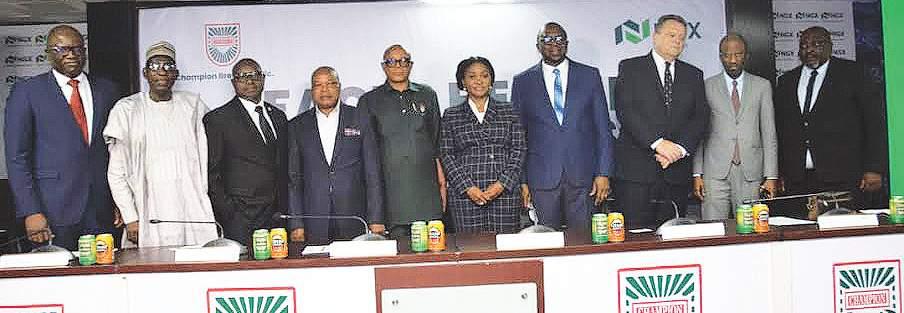
FaCTs BEHiNd THE FiGUREs PREsENTaTiON…
L–R: Finance Director, Champion Breweries Plc, Mr. Rasheed Adebiyi; Independent Non-Executive Directors, Mr Samson Aigbedo, Alhaji Shuaibu Ottan; Mr Thompson Owoka; Board Chairman, Mr Imo-Abasi Jacob; Non-Executive Director, Mrs. Mary Akpobome; Managing Director, Dr Inalegwu Adoga; Non-Executive Directors, David Butler; Eric Idiahi, and Company Secretary / Legal Adviser, Chief Tosan Aiboni, during the company’s Facts Behind the Figures presentation at the Nigerian Exchange in Lagos…recently
Community Seeks Oborevwori’s Intervention in Alleged Incursions by Ogbe-Ijoh Monarch
sylvester idowuinwarri
The people of Okere Community in Warri South Local Government Area of Delta State, have called on the State Governor, Sheriff Oborevwori, to halt what they described as illegal incursion of the Amakosu of Ogbe-Ijoh
and some of his subjects, into Okere land in Warri South.
The people, under the auspices of Indigenous People of Okere (IPO) said anything less than upholding the rule of law ‘is complicity in the erosion of justice and peace.”
Spokesman of Okere Community and member,
Kano Gov Announces Minor Cabinet Reshuffle
Kano State Governor, Alhaji Abba Kabir Yusuf, has approved a minor cabinet reshuffle and senior staff posting in the state civil service.
In a statement issued by the Governor’s spokesperson, Sanusi Bature Dawakin-Tofa, the move is part of ongoing efforts to strengthen governance and enhance service delivery across key ministries.
According to the governor’s directive, the Attorney General and Commissioner for Justice, Haruna Isa Dederi, has been redeployed to the Ministry of Transport, while the Solicitor-
General and Permanent Secretary of the ministry, Mustapha Nuruddeen Muhammad, has been moved to the Ministry of Environment to serve as the permanent secretary.
The Commissioner for Humanitarian Affairs, who has been serving in an acting capacity at the Ministry of Transport, is to return to his substantive position at the Ministry of Humanitarian Affairs. The governor directed that all officials affected by the reassignments formally hand over the affairs of their offices to the most senior official of the ministry.
PUBLIC NOTICE
CONfIrmaTION Of rELaTIONshIP: I, OkwUChUkwU DavID asIEGBU born on the 22/12/1979, hereby confirm that I am the biological brother of ChINEDU sTEPhEN asIEGBU (male) born on the 16/06/1972, sUNDay ChIDIOGO asIEGBU (male) born on the 23/10/1976, ONyINyE vICTOrIa asIEGBU (female) born on the 27/08/1984 and ChIsOm GOODNEss asIEGBU (female) born on the 27/11/1986.
That mr DavID asIEGBU and mrs. EsThEr NEBEChI asIEGBU are our parents.
General public should please take note of this information.
sIGNED: OKWUCHUKWU DAVID ASIEGBU
Okere Elders’ Council, Hon. David Eyitemi Oki, at a press conference yesterday said the alleged incursion by the Ogbe-Ijoh monarch and his subjects into their community was becoming
a threat to the prevailing peace in their community. He therefore, called the governor and all other relevant authorities to act fast with courage, integrity and impartiality in the brewing
crisis.
According to him, the incursion of the Ijaws of Ogbe-Ijoh, Warri South-West Local Government Area, “into the territories of Warri South Local Government
Area, particularly Okere community,” is a brazen development that “threatens peaceful coexistence, the safety of lives and property and the territorial integrity of the Itsekiri people.”
ECOWAS Parliament Warn against Hasty Adoption of
Blessing ibunge in port Harcourt
The Economic Community of West African States (ECOWAS) parliament has cautioned African countries against hasty adoption the trending Artificial Intelligence (AI) in parliamentary business.
This is as experts have urged the ECOWAS parliament to emphasise the need for a unified and structured framework for AI integration, supported by ethical guidelines, to maximise benefits, while reducing risks.
These were stated yesterday at the second 2025
ECOWAS Parliamentary Seminar/Extraordinary Session in Port Harcourt, Rivers State.
While reacting to some of the presentations made at the plenary, Guy Marius Sagna (Francophone) and Laadi Ayamba (Anglophone), among other lawmakers, noted that the legislators
AI
lack in depth knowledge of technology and need gradual sensitisation of the new trend.
They stressed that there should be extensive advocacy on AI and the need for lawmakers in Africa, particularly ECOWAS subregion, to embrace the new development.
Youths Assembly Commends Bauchi Gov for Devt Strides
segun awofadeji in bauchi
The Bauchi State chapter of the Youths Assembly of Nigeria (YAN) has passed a vote of confidence in the state Governor, Senator Bala Mohammed, for the infrastructural development of his administration in the past six years.
YAN passed the vote
of confidence on Tuesday during the fourth Assembly’s inaugural sitting held at the Conference Hall of the Sir Abubakar Tafawa Balewa Tomb in Bauchi, under the leadership of the Speaker, Sani Danaudi Mohammed.
While moving the motion for the vote of confidence, the member representing Jama’are LGA, Youths
Assembly of Nigeria (YAN), and Deputy Speaker of the Assembly, Rt Hon Usman Abubakar Mansur, explained that the motion became necessary considering the giant strides made since 2019 when Bala Mohammed was elected the governor of the state. “This Assembly notes with great appreciation, the exemplary leadership
and developmental strides of His Excellency, Senator Bala Mohammed, in various areas,” he said He noted that the administration has made significant progress in road construction and rehabilitation, improving infrastructure and facilitating economic growth in Bauchi State.
Otu Receives Holcim Group, Assures Investors of Favourable Investment Climate
Bassey inyang in Calabar
Governor of Cross River State, Bassey Out, has assured Holcim Cement, which has taken over ownership of Lafarge Africa Plc, of his administration’s unwavering support in providing an enabling
environment for investment growth in the state.
The governor gave the assurance while receiving a high-powered delegation of the cement giants in Calabar, where he welcomed the company’s expanded global capacity and renewed commitment to the state.
Otu, expressing delight over the visit, said the longstanding relationship between Cross River and Lafarge had strengthened confidence and must be built upon. He commended the company for its corporate social responsibility interventions, noting that such efforts had
benefitted host communities and improved livelihoods. “We have come a long way together. What excites me most is that beyond cement, you are now bringing additional investments in areas such as waste management and infrastructure.”
PAP Deploys 161 for Foreign Post-graduate Scholarship
According to Otuaro, PAP had, as at the last count, sent 161 post-graduate scholarship beneficiaries to universities in the United Kingdom for the 2025/2026 academic year.
The Administrator of the Presidential Amnesty Programme (PAP), Dr Dennis Otuaro, has expressed deep appreciation to President Bola Tinubu for strongly supporting the agency’s recent deployment of its foreign post-graduate scholarship beneficiaries.
He also expressed gratitude to the National Security Adviser, Mallam Nuhu Ribadu, for his invaluable input and guidance in the exercise.
He attributed the huge number of beneficiaries so far deployed abroad for studies in various industryrelevant programmes to the backing and generosity of the president. He urged stakeholders of the Niger Delta to stand with President Tinubu and support his reelection bid in 2027.
and the birth of the National Association of Nigerian Students (NANS).
The military regime of General Olusegun Obasanjo had banned the National Union of Nigerian in the Students (NUNS) in the wake of the nationwide protest against the prohibitive cost of students’ meal ticket.
Yet, students’ unionism did not remain unfettered for long because the military regime of President Ibrahim Babangida moved against “undue radicalism” for ideological reasons. According to a panel set up by the regime and headed by Major-General Emmanuel Abisoye (rtd), “lecturers are not teaching what they are paid to teach.” In fact, the provenance of cultism on campuses could be traced to the vacuum created by the official hostility to progressive ideas of social justice and genuine democracy. When progressive ideas would not be permitted to flourish, anachronistic ones took over and campuses were turned to breeding grounds for cultists.
At the period, Chima had emerged as a leader from Nsukka. In May 1986, four students of the Ahmadu Bello University were killed by the police invited by the Vice Chancellor Professor Ango Abdulahi. The brutal killings triggered a nationwide wide anger on campuses and beyond. The Nigeria Labour Congress (NLC) and the Academic Staff Union of Universities (ASUU) rose in solidarity with the students. Chima and his comrades led students in Nsukka to participate in the protest. The students’ leaders
Those capacities later show up as lower violence, stronger communities, and a public square that can tolerate disagreement without tearing itself apart. The school, then, is not just a service; it is a commons where the human village renews itself.
When children combine skill with culture through science, story, maths, music, creativity, connection, and play - they join the head, the heart, and the hand and become a wholesome integrated being. With this interdisciplinary ferment they become agile and respond to the needs of the age. We need artists who can develop a business, engineers who can think creatively, farmers with tech skills. Coupled with a strong sense of trust, purpose and civic identity, the result of this experiential learning model becomes our own social glue. And Trust, as we are beginning to see, in our beloved state, is the hidden infrastructure on which our democracy, economy, and neighbourhoods quietly run.
Over time, this is how a society stays well. A culture that protects childhood, that teaches discernment and ambition without cynicism, spends less on rescuing from neglect and more on compounding what our care can grow.
In that sense, the journey of the child is not a private path but a public accord. As we midwife the spirit’s arrival – through surroundings that are beautiful and well designed – we cultivate the very capacities a healthy society needs to endure, to adapt, and to flourish.
The Smart Green Schools are the most personal and transformative project of my leadership to date. They are not only schools – they are my promise of a new society; my covenant with the Enugu child.
In them, Tomorrow Is Here finds its truest form.
So, what do these Smart Green schools look like? And why “Smart?” Why “Green”? Each of the 260 Schools is designed as a complete ecosystem for learning. “Smart” means integrating technology, critical thinking and problem-solving into every subject. Each has about 25 digitally-connected modern classrooms, ICT centres, robotics and AI labs, e-libraries, and spaces for experiential learning. They are “green” because they have renewable energy sources and smart farms where children plant, grow, and harvest, learning agriculture not as theory but as practice.
And they are inclusive. Every child is provided with free uniforms, books, meals, and tablets. Each school has its own medical clinic, reliable water systems, and community halls that anchor the school in village life. Housing for teachers is on site so that the best educators live within
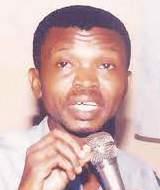
were arraigned and sentenced to death. They were later freed. On return to campus, Chima and others were expelled by the university authorities. Professor Chimere Ikoku was the vice chancellor at the time. What happened to Chima in the cause of his trial was highly instructive about his ideological orientation.
The Babangida regime set up a panel chaired by the highly revered Justice Mustapha Akanbi to probe the background to the tragic events. Senior Advocate of Nigeria Femi Falana was on the team of lawyers led by a former president of the Nigerian Bar Association, Alao Aka-Bashorun,
to defend the students earlier in court and later at the Herepanel. is how Falana recalled the events recently: “The man who led the protest was Chima Ubani. The state did not like the idea that there was a national protest against the killings of the students. The police did not arrest protesters in the north; neither did they detain demonstrators in the west… This story is important because a Hausa Vice Chancellor invited the police that killed four young Hausa people in ABU. Nigerian students protested and an Igbo young man led that protest in the east against injustice. There were lawyers in the east, but a Yoruba lawyer went to defend the students in Enugu.”
In a generic sense, this tribute to Chima’s revolutionary memory is also a reminder of the roles gallantly played by his generation in history especially in their youth. In particular, this is an attempt is to honour to the memories of members of the generation who have painfully passed on as unsung heroes in the making of Nigeria. For example, among Chima’s comrades in Nsukka alone who have also passed on were the Emma Ezeazus, Innocent Chukwumas and Jonas Awodis.
Much later in life, Chima became the General Secretary of the Democratic Alternative founded with the aim that it would develop into a viable leftist platform for electoral politics. He was also the Joint General Secretary of the United Action for Democracy (UAD). His activities in the organisation of the Civil Liberties Organisation (CLO) were indeed inspiring to others.
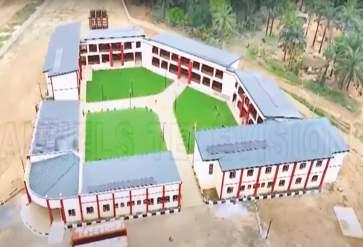
the communities they serve, ensuring continuity of care, and commitment.
Smart Green Schools are not just an investment in classrooms, but in the soul of our people. The habits a child rehearses, of curiosity and collaboration, become the civic habits of the culture. A generation raised in schools of in- novation will build an economy of innovation. A generation raised in classrooms of fairness will create a politic of justice.
Those buildings are beyond mere bricks; we see in them children eagerly looking forward to the future. What makes the Smart Green Schools distinctly different from the classrooms of the past is not only the architecture but the philosophy of learning. In the old system, a child could pass through six years of schooling and still be limited to memorizing theories on a chalkboard. In the new model, the classroom is a creativity hub; learning becomes experi- ential; theory meets practice, and knowledge is translated into tangible skills. Children are able to put into practice what they have learnt. This is the future we’re building.
Already, Tomorrow Is Here is attracting attention far beyond Enugu. Across Nigeria and across Africa, people are asking: what does it look like when a government invests 33 percent in the skills and soul of its children? What does it mean when a state re-imagines education not as rote memorization, but as preparation for sovereignty in a digital world?
It looks like a graduate opening a laptop in Enugu and working with clients in London or
Chima was one those comrades whose full involvement in liberal democratic agitation could not eclipse their core Marxist identities. He was dialectical enough to see at once the limitation of liberalism while being fully immersed in the historically compelling activities of civil society organisations.
Chima was a dynamo in the historic efforts of the Campaign for Democracy (CD) in the struggle against military dictatorship and for the validation of the victory of MKO Abiola in the June 12, 1993 election. He suffered detentions and brutality in the hands of the goons of the maximum ruler, General Sani Abacha. Yet his courage shone brightly through the darkness of the period. History would record Chima’s name as one of the leading strategists of the struggle who were also present on the streets.
His life was imbued with virtues which are teachable to the future generations. He understood early in life the structural basis of the crisis of the political economy; he was also versed in the fundamental resolution of the crisis. His conviction remained unwavering until he fell at his prime. Significantly, he remained a Nigerian patriot to his grave.
Chima’s children should be proud of the fact that their father made an impact as a fighter for social justice. He left behind a great name. The family surely deserves all the solidarity the society can offer.
May the tribe of Comrade Chima Ubani increase.
Tomorrow Is Here is not only about Enugu. It is about Nigeria. It is about Africa. True sovereignty will not be handed to us; it will be built by us. And it begins with how we educate our children today. When we equip them with the skills to innovate, the courage to lead, and a reason to hope, we reclaim our destiny. We are no longer a state waiting to be saved - we are a state shaping the future on our own terms.
If we can raise children whose minds are sharp, whose hands are skilled, and whose hearts are strong, we will no longer seek relevance on the world stage. Once we create the environment for them to thrive – and we are indeed doing so – we will set our own agenda.
Lagos without ever leaving home. It looks like a young woman walking from her classroom robotics lab to her family’s small business and applying her skills. It looks like parents no longer saying goodbye at airports, but saying welcome home to children who can build careers where they are born. It looks like streets alive with small enterprises, cafés filled with start-ups, and farms connected to global markets. It looks like Nigeria becoming the place others dream of coming to, because the opportunities are no longer out there – they are right here. Our tomorrow is here.
This journey has not been easy. We know that every Smart Green School is not yet complete. There have been setbacks, delays, and challenges to overcome. While some schools will open today, some will open next week, and yet some more in a fortnight.
We do not claim perfection. What we do claim is resolve. We set out with a bold vision, and boldness sometimes requires a little more time. But by all means, every school shall be open this term. No schools academic calendar will be interrupted. We have planned for every contingency.
Make no mistake: we will deliver. Because attending a Smart Green School – even if it means waiting a few more weeks – is worth it. It is the transformation of a lifetime for our children, and we ask for your patience as we finish the work. We’re doubling down on our commitment.
And perhaps this is only the beginning.
Ndi Enugu, protect these schools as if they were your own children. These schools are a once-in-a-lifetime opportunity to bring world- class education home to Enugu. Cherish them. Defend them. Guard them as a community. Give our young people the time and space to grow, to discover, to become. Instil in them the importance of the work we do within these walls. Take shared responsibility for our future, which is walking in on two small feet every time a child enters these gates.
Support the teachers - the custodians and guardians of our future farmers, entrepreneurs, nurses, artists, engineers, lawyers and leaders. They are the cornerstone of this transformation. Equipment and buildings matter, but machines do not teach; people do. That is why alongside every new classroom, we have invested in continuous professional development, in mentorship programmes, and in the tools teachers need to deliver child-centred and competency-based learning.
It is said that the most beautiful memories are those of childhood. The memories we’re creating for our children are lifelong. Today, these little feet take a giant leap that will remain a reference point for generations.
Today represents a triumph of vision, and a bold rebuke of cynicism.
Keep faith with the vision of Tomorrow Is Here, for beyond the walls of these schools, the entire project is taking shape. The pupils we nurture in these classrooms will go out into the world we have prepared for them and, in time, will return to us the wealth of human potential – the truest capital of our society.
Thank you very much, Ndi Enugu.
God bless Enugu State.
God Bless the Federal Republic of Nigeria. •Being a state broadcast by Governor Mbah to mark the commencement of Enugu State’s transition to Smart Green Schools
Brighton Hail Chiamaka Nnadozie’s Ballon d’Or Feat
Duro Ikhazuagbe
Nigeria and Africa’s top women’s safe hands, Chiamaka Nnadozie, who on Monday evening finished fourth best goalkeeper in the 2025 Ballon d’Or Award, has received plaudits from the Head Coach of her new club, Brighton and Hove Albion, Dario Vidosic.
The WSL side had two nominees for the Women’s Awards – Nigeria’s Chiamaka Nnadozie and England’s Michelle Agyemang.
The former Paris FC goalkeeper Nnadozie was beaten to the award by England and Chelsea FC’s Hannah Hampton
who took home the Trophée Yachine (named after former Soviet goalkeeper Lev Yashin); Gotham FC’s Ann-Katrin Berger and Barcelona FC’s Cata Coll in that order.
But Vidosic was thrilled to have two of his players present at the prestigious awards ceremony in Paris on Monday night.
Brighton and England’s Michelle Agyemang, like Nnadozie, also finished fourth in the Women’s Kopa rankings.
“As a club, squad, and everyone affiliated with the women’s programme at Brighton, we are all really proud of them,” the former Australia midfielder said in a
Nigeria’s Elite Runners Storm Ile-Ife for Historic Olojo 5km Race
The ancient city of Ile Ife, revered as the cradle of civilization, will host the first ever Olojo Festival 5km Road Race on Thursday, drawing the best of Nigeria’s distance running talents.
The race is part of the iconic Olojo Festival, a celebration of creation, renewal, and the spiritual authority of Ile Ife in Yoruba cosmology.
Among the top contenders is Nyango Gyang Boyi, Nigeria’s standout distance runner of the year.
Boyi made headlines in February at the World Athletics Gold Label Lagos City Marathon, finishing eighth overall with a time of 2:25:41, one of the fastest marathon times by a Nigerian in over a decade.
His performance earned him a $4,000 prize and an additional ₦2 million as the first Nigerian to cross the finish line.
Also competing is Raymond Iliya Gyang, who boasts a lifetime best of 14:47.26 in
the 5000m and is tipped as one to watch in the race.
On the women’s side, Blessing Shambor Solomon, winner of Nigeria’s inaugural cross country race in 2023, is set to challenge for the Olojo 5km crown.
Solomon holds a 5000m best of 17:16.35 and clocked 2:55:10 in the marathon at this year’s Lagos Marathon.
She faces stiff competition from Charity Agofure, who has broken the 18 minute barrier in the 5000m, and David Abiye Joy, a multiple 10km road race champion including the Lagos Women’s Run.
Former African Games champion and Nigerian hur- dling legend, Taiwo Aladefa, emphasized the race’s broader purpose.
“We want to unearth talents that can be groomed to stardom just like we too were scouted and groomed to become African champions and Olympians and we be- lieve we have to start from somewhere,” said Aladefa.
statement posted on the club’s official website yesterday.
“It’s a fantastic achievement to be recognised for one of the most prestigious awards in the footballing world.
“They both had a tremen-
dous summer and lifting continental trophies after winning the Euros and WAFCON, it just showcases how important they were to the success of both their national teams.
“I’m sure when they were
growing up and they were in the back garden and playing football, they were probably dreaming of these moments.
For them both to fulfil that in their nomination is incredible.
“They should both be proud
of their nomination for this evening,” the 38-year-old concluded.
The duo represented their respective nations in continental competitions and emerged victorious.

....Amstel Malta Toasts to Nnadozie’s Ballon d’Or Milestone
NFF salutes Nnadozie, Madugu for their great showings in the foremost award
Amstel Malta is raising a toast to Chiamaka Nnadozie, who made history in Paris by finishing fourth in the Women’s Yashin Trophy at the 2025 Ballon d’Or Awards.
Nnadozie has been Africa’s best goalkeeper in the last two years finished fourth behind England and Chelsea FC’s Hannah Hampton who took home the Trophée Yachine (named after former Soviet goalkeeper Lev Yashin).
Nnadozie’s recognition marks a new milestone for Nigerian and African football, as she becomes the first goalkeeper from the continent to finish among the global top five.
The 24-year-old, who recently joined Brighton & Hove Albion Women in the English Women’s Super League, has already announced herself in Europe with a ‘Player of the Match’ performance on her debut and more breathtaking displays in
subsequent outings.
Amstel Malta has long been a champion of Nigerian women’s football, standing firmly with the Super Falcons as the team powered to a record-extending 10th Women’s Africa Cup of Nations (WAFCON) title in Morocco this year.
The brand has consistently celebrated excellence, resilience, and the pioneering spirit embodied by athletes like Nnadozie.
Nnadozie’s Ballon d’Or ranking adds to Nigeria’s growing reputation on the global stage, following recent strong showings by Victor Osimhen and Ademola Lookman in past editions.
For Amstel Malta, her success is further proof that Nigerian football is on a remarkable rise.
Similarly, the Nigeria Football Federation (NFF) congratulated Nnadozie and Super Falcons Head Coach, Justine Madugu for their showings in the 2025 Ballon d’Or.
Abia Set to Host Historic Para Badminton Championships, Says Sports
As Umuahia, the capital of Abia State, prepares to welcome some of the world’s top para badminton athletes, the Commissioner for Sports and Social Development, Nwaobilor Nwadinma Ananaba, has declared the state’s readiness to become Africa’s hub for the sport.
The twin events, the maiden Abia Para Badminton Inter-
national Tournament and the All-African Para Badminton Championships, are sanctioned by the Badminton World Federation (BWF) and the Badminton Confederation of Africa (BCA). They will take place from Sep- tember 30 to October 12 at the newly refurbished International Conference Centre in Umuahia.
“With the level of prepa- ration and the number of
Commissioner
countries registered, I expect these historic championships to attract hundreds of sports officials, stakeholders, and over 374 athletes from Europe, Asia, the Americas, and Africa. It will be a celebration of global friendship and inclusiveness,” Ananaba said.
He added that the International Conference Centre has been upgraded to meet
international standards, with several pre-event activities already held to test the venue and build momentum. These include the 5th Abia National Open Para Badminton Championship, which served as a test run for the facility.
To ensure smooth logistics, the commissioner highlighted arrangements for the transfer of teams and athletes from Lagos.
Speaking on the achievement, Head of Communications –Marketing at Nigerian Brewer- ies Plc, Sandra Amachree, said: “Chiamaka Nnadozie’s rise to global recognition at the Ballon d’Or is a proud moment for Nigeria and Africa. Her success reflects the resilience, talent, and passion that Amstel Malta has always celebrated in the Super Falcons. From standing with the team as they won a record 10th WAFCON title, to witnessing this global recogni- tion, we remain committed to refreshing and empowering Nigerian football every step of the way.”
“We heartily congratulate Chiamaka Nnadozie on her fourth-place finish in the race. It is a commendable feat given the calibre of goalkeepers she was up against. Finishing fourth is a big achievement and we believe in her capacity to win this trophy very soon,” NFF General Secretary, Dr Moham- med Sanusi said in a statement last night.
Sanusi also gave kudos to Madugu who also finished fourth in the Women’s Coach of the Year category.
“Coach Madugu’s feat further

BRiEFinG ThE pRESS...
L-R:
Kayode Komo LA fe

Chima Ubani, an Exemplar of Authenticity
On September 21, 2005, the revolutionary movement lost one of its best and brightest cadres, Chima Ubani. He was 42.
To paraphrase the title of Nelson Mandela’s famous book, “The Struggle is My Life” , it could also be said that the struggle was the life of Comrade Chima Ubani, a personification of genuine commitment to human progress. Simply called Chima by his comrades, he was indeed selfless. His role as an individual in history was undeniably defined by clarity, consistency and courage.Doubtless, these aspects of Chima’s political personality should be remembered 20 years after his death.
The story of Comrade Chima should be told from generation to generation because of the sheer force of example and inspiration which his remarkable life signified. The comrade made
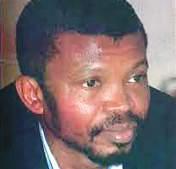
enormous sacrifices including the supreme one of his life in the pursuit of the cause of which
he was firmly convinced. Literally speaking, Chima died in action. Although he was not a professional trade unionist, he saw himself as an unrepentant partisan of the struggle of the working class. If you like, Chima was always conscious of his locus in the broad labour movement. So, he joined the campaign against the increase in fuel price during the era of President Olusegun Obasanjo. It was a struggle that captured national imagination because of the socio-economic consequences of the official policy. The agitation, led by the Nigeria Labour Congress (NLC) under the leadership Comrade Adams Oshiomhole, got a wide support of other civil society organisations and progressive individuals. Chima was part of the team that went to Borno State to mobilise support for the protest. It was on their return that Chima and a photojournalist from the Vanguard Newspapers, Mr. Tunji Oyeleru, who covered the event in
Maiduguri, were killed in a car accident.
The circumstance of Chima’s death was in itself a story of selflessness and humility.
Chima was a brilliant student at the University of Nigeria, Nsukka, from where he graduated in Crop Science. As it turned out, as a graduate Chima did more of sowing the seeds of ideas which could germinate in the struggle for a humane social order. In his worldview, such a social order should be erected on the pillars of genuine democracy, equity and freedom from ignorance, disease and hunger.
Chima belonged squarely to the generation of those comrades who had their formative years in the struggle as members of the broad progressive students’ movement in the late 1970s and 1980s. In broad terms, this was the generation which radicalised the students’ movement following the restoration of unionism at the national level

Enugu Smart Green Schools: Turning Aspiration into Reality
Ndi Enugu, I bring you very warm greetings, a day we usher in a new epoch in the history of our dear state, and in the life of our children. It is a day of celebration as much as for introspection. Africa, today, is the youngest continent in the world. More than 60% of our people are under the age of 25. By 2050, our population will reach 2.5 billion, and one in every three young people on earth will be an African. This is a stark reminder that our future will be built by young hands.
This is not just a statistic; it is a summons. It means that the destiny of African nations rests on what we nurture in the minds and hearts of our children. If we raise them well and leave them opportunity, when they inherit tomorrow; when they own it; they will shape it and defend it. If we fail them, no amount of slogans will save us.
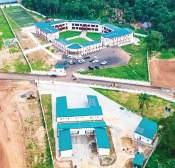
Tomorrow Is Here is not simply a catchphrase for Enugu; it is a covenant with that future. It
is the recognition that the sovereignty of our state, of Nigeria, and indeed of Africa, will be determined by the strength of our young people – their ability to think critically, to innovate, and to act with integrity. Our sovereignty begins in the classroom. It begins with how we choose to welcome the child into the world. And this takes time, care – and investment.
I was not born into comfort. I grew up in the slums of Port Harcourt, where every day was a struggle and nothing was guaranteed. But one thing was always clear to me: if I could learn, I could grow. Education was my inheritance, the one possession that could not be taken away. I leaned into it with everything I had. Books became my ladder. Study became my weapon. And in time, education and some street smarts became my passport to a life of possibility.
At 28, I had graduated with a law degree in the United Kingdom after breaking through countless walls of economic circumstance. Barring a resilient spirit, I would not be standing here now. But does it have to be that hard? Can we make it easier for our young ones? Can we level the field for them?
I have always believed quality education is not just a private benefit, but a public right. At home and at school, when a community receives and educates each child as a whole human being, it is akin to public service at the deepest level. The habits a child rehearse – attention, curiosity, patience, empathy, self-belief – become the civic habits of our culture. A school day shaped by rhythm, responsibility, and care quietly trains the nervous system for self-regulation and the social muscle for cooperation.
